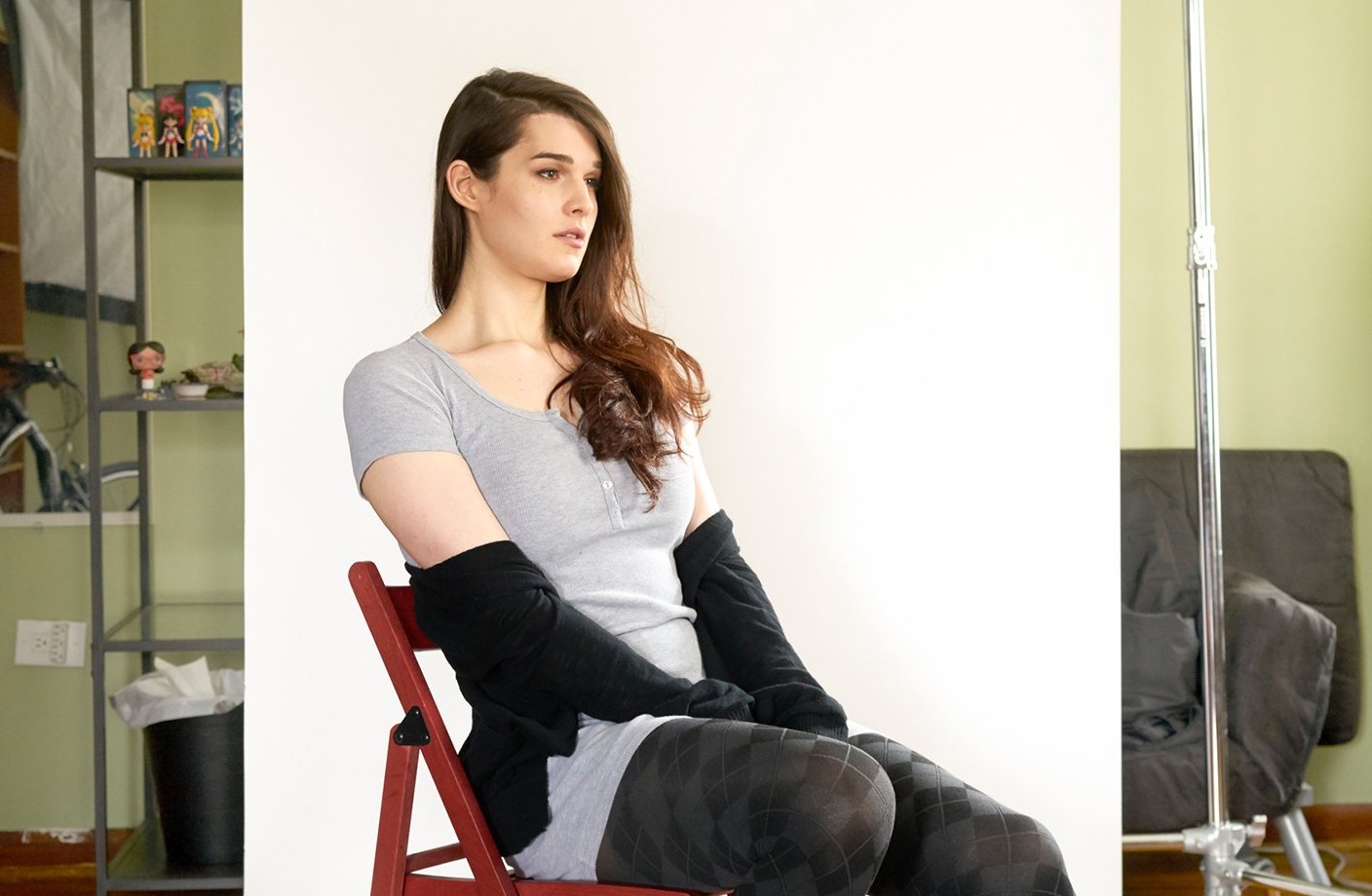Also.Also.Also: Angelica Ross, Sarah McBride on Why They Want To See More Trans People in Politics
feature image photo of Angelica Ross and Sarah McBride via Them.us
You are always welcome to recommend poetry in the comments sections of these 🍁
Queer as in F*ck You
Angelica Ross and Sarah McBride on the Future of Trans Political Power. This is the first entry in Them‘s 2023 Trans Futures series, and it’s a conversation between pals Angelica Ross and Delaware State Senator Sarah McBride. The conversation happens over video, and they cover a wide range of topics pertaining to pain, power, trans identity, representation, politics, and so much more. Ross recently announced she’s leaving Hollywood, and she has suggested she’s going to move into politics, following in the footsteps of McBride, who was the first openly transgender state senator in the country (Danica Roem of Virginia became the second earlier this month). The video definitely got me hype for the next evolution of Ross’ career.
Only 1 in 10 Asexual People in the UK Are Out at Work, New Report Finds. “A number of people who participated in a focus group for the report noted that being open about their asexuality at work led to inappropriate and invasive questions about their sexuality and sex life.”
Texas School Officials Put Trans Student at Center of Real-Life Drama Over ‘Oklahoma!’ Production.
Saw This, Thought of You
Fossil Fuel Companies Are Plowing Ahead to Profit From Israeli Gas. There really are so many individuals and institutions in this world who look at war (or, in this case, a wildly disproportionate military offensive that amounts to genocide) and think “ooo profits.”
Related: Architects Must Refuse to Profit From the Ruins of Palestine.
US Labor Has Long Been a Stalwart Backer of Israel. That’s Starting to Change.
Atlanta’s “Stop Cop City” Movement Is Youth-Led Democracy in Action.
How Abortion Bans Are Undercutting Efforts To Prevent Domestic Violence.
Sacred Space: Why Libraries Are Essential to Incarcerated Writers. Libraries forever.
I Live in Gaza. Israel’s Horrific Bombing Campaign Is Like Nothing I’ve Ever Seen Before.
Political Snacks
One of the Oldest Broken Promises to Indigenous Peoples Is for a Voice in Congress. “A treaty commitment to seat a delegate representing the Cherokee Nation in the House has gone unmet for two centuries.” TWO CENTURIES.
A Surprisingly Good Night for Democrats Was a Much Better One for Socialists.
One More Thing
A poem:
Trans Icon Angelica Ross Announces She’s “Leaving Hollywood”
Photo of Angelica Ross, who announced earlier today that she’s “leaving Hollywood,” by Arturo Holmes/Getty Images for Pride Live and Stonewall National Monument Visitor Center
I still remember the first time I saw Angelica Ross acting on screen. It would’ve been 2016, Jen Richards and Laura Zak’s groundbreaking webseries Her Story had first premiered and already it was my favorite sapphic rom-com (it still is). From the minute she entered the picture as Paige, Violet’s (Richards) best friend and NA sponsor, a trans lawyer looking for a love of her own, she was impossible to turn away from. Of course, back then, Angelica Ross and Jen Richards had yet to become household names for any fan of indie queer media. Her Story had yet to make history as the first indie web series to ever be nominated for an Emmy. Angelica Ross had yet to win, break, and mend everyone’s hearts back together as unforgettable Candy Ferocity in Janet Mock’s Pose.
I am feeling particularly nostalgic, looking back at nothing short of the mountains of queer and trans television that have been climbed in a short eight years (which is to say nothing of many mountains that are left to go) because, after nearly a week of detailing the racist, transphobic, and hostile work environments that she has been forced to endure — Angelica Ross announced on X that she is “leaving Hollywood.”
https://twitter.com/angelicaross/status/1704896890553483287
“For the folks who haven’t put it together yet, I’m ‘leaving Hollywood,’” the icon — and no, I don’t use that word lightly — wrote on X. “There are multiple articles that will be coming out detailing this. So I suggest you and your faves play nice, cuz I’ma Black trans woman with nothing to lose. Candy was born from my body. IYKYK. IYDYD.”
(This is not the point, but “Candy was born from my body” is a gorgeous piece of writing. And I know she meant every word.)
Ross has spent the last few days on social media describing incidents, primarily on Ryan Murphy’s American Horror Story sets (Murphy was also a producer on Pose), that have felt shocking — though for any queer, trans, or Black person not at all surprising — to fans. She’s discussed that Murphy strung her along with the promise of an all-Black woman led season of AHS, keeping her under a first-position contract that led to her missing opportunities to work with other production companies during a peak of her acting career post-Pose — including an opportunity to work with Marvel Studios. Ross also shared that during the production of American Horror Story: 1984 she faced mistreatment including Emma Roberts misgendering her and making fun of her voice and crew members wearing racist t-shirts.
As these stories became public earlier this week, Roberts reached out to Ross directly to apologize. Murphy has yet to comment.
It’s easy to get lost in the salacious details of social media, but critically, Ross has taken great pains to point out that these aren’t one or two gossipy incidents. It’s about the whole picture of what it takes to work in Hollywood as a Black trans woman in an industry that was not designed for you.
https://twitter.com/angelicaross/status/1704721028306669918
“The last 3 years have been a nightmare in ways you are only beginning to know about,” she shared on X. “This is about a SERIES of events that tell a different kind of horror story. People on here are being unpaid extras whose inhumanity is frightening. Just know I’m prepared to face every demon.”
To be quite honest, it feels quite nearly impossible to imagine where we’d be right now in trans and queer media at all if it were not for Angelica Ross. Ross, along with Richards, Mock, Laverne Cox, Peppermint, Trace Lysette, Alexandra Gray, Alexandra Billings, Zackery Drucker and so so many others, have been at the forefront of a reckoning in how we’re able to see ourselves and our siblings in trans storytelling on screen. Of course, we also know that those people at the forefront of breaking those ceilings and storming through those doors — it doesn’t come without pain, without a price. There are shields for bows and arrows and body blows that we will never see sitting at home on our couch, or wherever you are reading this today.
But I hope, more than anything else, that today Angelica Ross knows that we do see her. And we are so proud. Thank you for everything you’ve done — from Her Story, to Pose, as Roxie Hart on Broadway in Chicago, and of course for all of your work as the founder of TransTech Social and the TransTech Summit.
Wherever you have walked, it has been followed by greatness. And greatness is what will follow you no matter where you go.
Speaking on behalf of everyone at Autostraddle, we will always be first in line to cheer you on.
“Disclosure: Trans Lives On Screen” Is a Vital Document of Trans Cinema
Towards the beginning of Sam Feder’s new documentary Disclosure: Trans Lives on Screen Susan Stryker is talking about early filmmaking pioneer D.W. Griffith. Stryker explains that Griffith’s 1914 film Judith of Bethulia, known for inventing the dynamic montage, prominently features a gender nonconforming person. We see this person — flamboyant, androgynous — navigating a silent film aesthetic we associate with more normative images. Stryker’s eyes gleam with the confirmation that trans people have always existed and have always existed on screen. Our lives are intrinsic to the art form of cinema.
Cut to Yance Ford none too impressed. “As the Missy Elliot song would say, we just need to back it up for a minute,” he interjects. Ford brings up Griffith’s The Birth of a Nation — a film that inspired the resurgence of the KKK — before returning to the earlier work. “Not only is Griffith incredibly racist, but he understands that you can turn gender nonconforming people into the joke of your story.”
This piece of history — this gender nonconforming person captured on celluloid over a hundred years ago — is suddenly reframed. Twice. Griffith cannot be praised without context. And is the inclusion of this stereotypical character even worthy of praise?
Trans film history — like all film histories — is one filled with contradictions, and Disclosure succeeds by making these contradictions its subject. The movie doesn’t split representation into simple categories of good and bad, nor does it discuss intersections of race, gender, and class as mere asterisks. They are the entire point.
The film remains committed to the discomfort, pain, and disagreements that accompany an accurate look at our cinema. There is no attempt to sanitize or create a simplistic narrative of progress. “There are lots of ugly things about our history that feel like an assault,” Ford says. “But I think we have to know them. I think we have to learn them.”
Disclosure features a remarkable list of interview subjects that includes executive producer Laverne Cox, as well as Brian Michael Smith, Jen Richards, Lilly Wachowski, Tiq Milan, Rain Valdez, Ser Anzoategui, Candis Cayne, Angelica Ross, and many more. And almost every movie and TV show discussed for its negative and stereotypical portrayal of trans people is met with one of the people speaking its praises.
Marquise Vilsón found Jerry Springer empowering, because it showed that there were people like him. Zackary Drucker didn’t take issue with The Crying Game until years later, because simply seeing a woman with a penis changed her life. There are so many stories like this. One person’s traumatic memory is another’s powerful revelation. The documentary leaves room for all of this. It goes beyond the intellectual and emphasizes the emotional experience of representation.
One of the film’s most powerful moments finds Laverne Cox discussing Ava on Nip/Tuck. She breaks down the scene of Ava’s disclosure beat by beat. Then she takes a deep breath. “So okay, so I need to—” she begins before exhaling again. “Just even talking about this as a trans person, even like— it’s so violent. It feels so— it’s so hard to talk about. I’m like cringing and I want to cry talking about it. I want to cry talking about this narrative, because it’s just horrible.”
There’s a lot of tangible knowledge to glean from this film, but it’s moments like this that emphasize why that knowledge matters. Whether discussing the ways we’re portrayed on screen or any other facet of our lives, trans people are often expected to educate. And that’s what Laverne Cox was doing — breaking down a transphobic moment, a disclosure, objectively and in detail. But this isn’t an objective experience. Watching portrayals like the ones on Nip/Tuck hurt. They’re personal. Revisiting them hurts. Talking about them hurts. I appreciate the opportunity to witness that hurt in other trans people. We’re so often forced to perform strength and understanding.
There is a bitter comfort in moments like this and there is a euphoric comfort in their foil. We may witness the pain of describing the Nip/Tuck moment, but we also see the joy Laverne Cox experiences describing her unexpected connection to Yentl or the inspiration she found in Candis Cayne’s role on Dirty Sex Money. We have a remarkable ability to be seen, to find one another, to find ourselves, even within work intended to mock, exploit, or ignore. It’s a beautiful thing to witness.
And yet, despite all its achievements, the documentary isn’t perfect. The film does not address the lack of representation for disabled trans people. Little of the progress we’ve seen in trans representation has included disabled people — cis queer media is also severely lacking — and it would’ve been meaningful to have disabled trans interview subjects as part of this discussion. The minimal amount of footage to cut to doesn’t excuse this lack of inclusion — it highlights its importance.
The film also doesn’t cover how sexual orientation factors into trans representation. Cis men are still centered in the majority of our love stories — trans lesbians are especially rare — and it would have been nice to see that discussed with the same nuance the film embraced for other topics.
And finally I wish there was more focus on the trans creators who have made work outside of the mainstream Hollywood system. We’re shown Jen Richards on Netflix and HBO, but nothing from Her Story. There’s no mention of Tourmaline whose short films such as Atlantic is a Sea of Bones and Happy Birthday, Marsha! are incredible works of cinema and documents of history. There’s no time spent on Harry Dodge and Silas Howards’ By Hook or By Crook. So much of our best cinema was made by us in short films, webseries, and microbudget films. Highlighting these works would emphasize that improved representation will not come from assimilation — it will come from trans people enjoying a similar creative freedom on a larger scale. We need to be the ones to tell our stories — as actors and as writers and directors.
But there’s comfort in the film’s inability to be comprehensive. Not only is new work being made every year, but old work is constantly being rediscovered. There is too much out there for any one person, any one film. “Every trans person carries within themself a history of trans representation just in terms of what they’ve seen,” Jen Richards says. “What trans people really need though is a sense of a broader history of that representation, so that they can kind of find themselves in it.”
The need for that broader history isn’t something that can be fully achieved. We are all students — none experts. But Disclosure is vital whether it’s the beginning of your education or a supplement along the way. It’s a reminder of what representation can do and what representation can be. It is itself a work of trans cinema. Find yourself within.
Disclosure: Trans Lives On Screen premieres this Friday, June 19th, on Netflix.
Presenting the Winners of Autostraddle’s Second Annual Queer TV Awards!
The Autostraddle Gay Emmys began with a relatively simple goal: Despite the rapidly changing television landscape, the Television Academy itself continues to heavily favor TV that’s made for and about straight cis white men. We wanted to help change the conversation. So, we rolled up our sleeves and got to work.
As a team, our writers spent weeks arguing and voting on what we considered to be the very best in lesbian, bisexual, queer, and trans women’s storytelling. We pleaded for our favorites, we reasoned with logic, and passionately argued with each other about the depth and quality of LGBT women’s stories this year.
Then, when we were down to our top six nominees in each category, we wrote our For Your Considerations and opened up the field to you. We believe that television only works if it’s connecting to its audience, and so we wanted to make sure that our audience had their say.
Wow, did you all have a say! Over 30,000 votes worth! (That’s a new record for these awards, so thank you.)
For regular categories, the individual TV Team votes were weighted heavily alongside our reader votes. For fan favorite categories, the winner was 100% determined by reader votes.
And without any further ado, here are the winners of Autostraddle’s Second Annual Gay Emmys!
Outstanding Comedy Series
Jane the Virgin
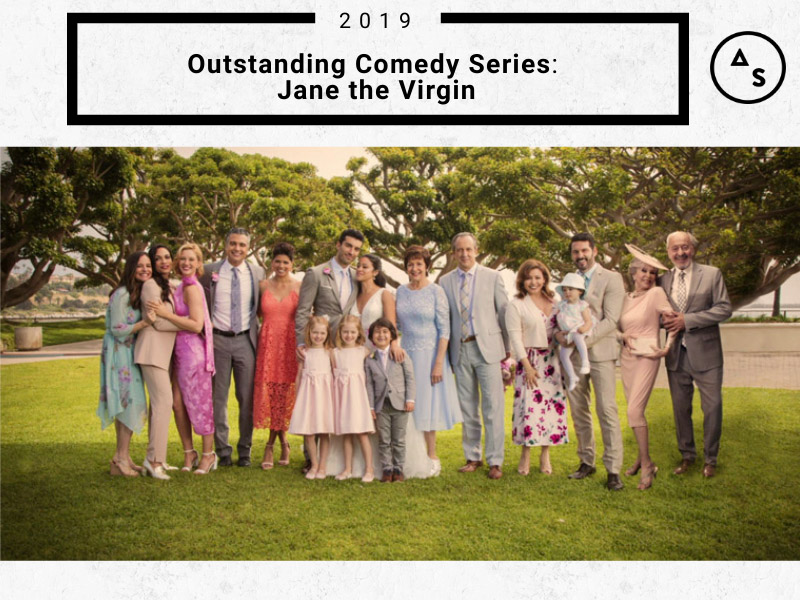
Runner Up: One Day at a Time
Other Nominees: Derry Girls // Vida // The Bisexual // The Good Place
What else is there to say about the perfection that is Jane the Virgin? As a team, we’ve laughed and cried and discussed and debated as the show wrapped up its last season this summer. There certainly hasn’t been a shortage of celebration.
But there’s something special about a show that meant so much to so many, winning this award. You may be shocked to discover that Jane the Virgin’s only “Straight Emmy” nominations were in the category of “Best Narrator”… and they lost. It’s not as if this particular award never goes to women-led work (the last two years The Marvelous Mrs. Maisel and Veep took the top prize), but there’s something unapologetic about Jane the Virgin that denied these kinds of accolades.
Staying true to its telenovela roots, Jane the Virgin was big in its romance, big in its comedy, big in its style and plotting and feelings. This is a show about three generations of Venezuelan-American women, each with their own flaws, each with the best intentions, facing the challenges of life with the help of each other. This is a show with male characters who aren’t perfect, but who listen and learn and support the women in their life. This is a show that got gayer and gayer every season until it ended with two queer love stories to rival its straight romance.
With bright colors to match its core goodness, Jane the Virgin made an argument that serious doesn’t have to equal dark, in any sense of the word. This argument may not have played with the Straight Emmys, but it sure has with the Gay Emmys. This year’s winner for Outstanding Comedy Series was a women of color-led, queer women-dominated show that took creative risks and dealt with a range of serious topics. It was never afraid to be what it was: a sweeping romance, a tribute to women, a celebration of stories. – Drew Gregory
Outstanding Drama Series
Pose
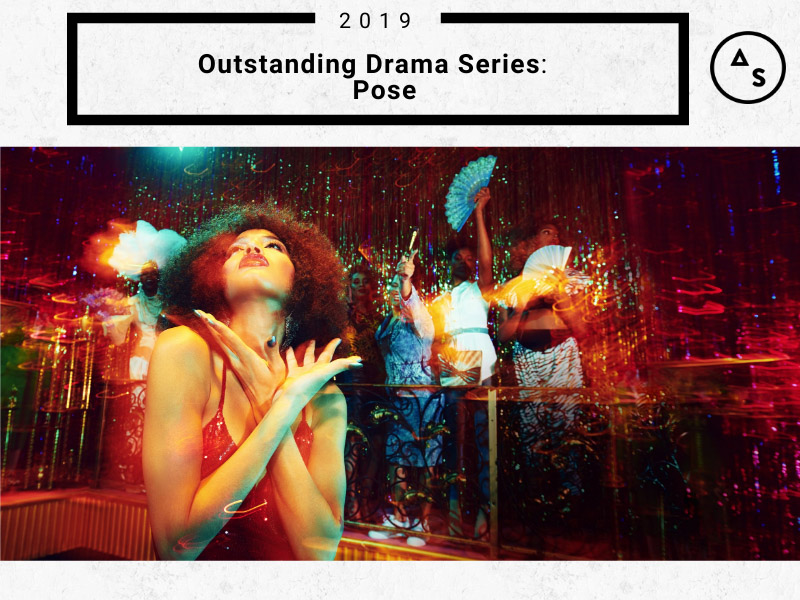
Runner Up: Gentleman Jack
Other Nominees: Killing Eve // How to Get Away With Murder // Riverdale // The Good Fight
It was enough that Pose existed in the world. A show with the largest cast of trans women — and trans women of color, most notably — in television history. The first show to have a trans woman of color in the writers’ room. The first show to have a trans woman of color serve as director and producer. If that had been it, if that had been all that Pose had done, that would’ve been historic and earned its place in the record books.
But, oh no, it had to go and be great, too. There was near unanimity among TV critics — including ours — that Pose was one of the best shows of 2018.
What separated Pose from the other nominees in this category is the unique way it balanced the darkness out with the light. They grappled with examinations of homophobia, transphobia (both from within the LGBT community and outside it), homelessness, HIV/AIDS and the seemingly omnipresent threat of violence — but none of the characters are defined by that. The characters of Pose create their own families and offer each other the tenderness, joy and love that the outside world denies them. And then there are the balls, the lavish celebrations “of a life the world does not deem worthy of celebration” that turn competition into an expression of pure joy.
As Al(aina) wrote when the show debuted: “Pose is about radical hospitality in the face of oppression, and the result is overwhelming joy.” — Natalie
Outstanding Sci-Fi/Fantasy Series
Wynonna Earp
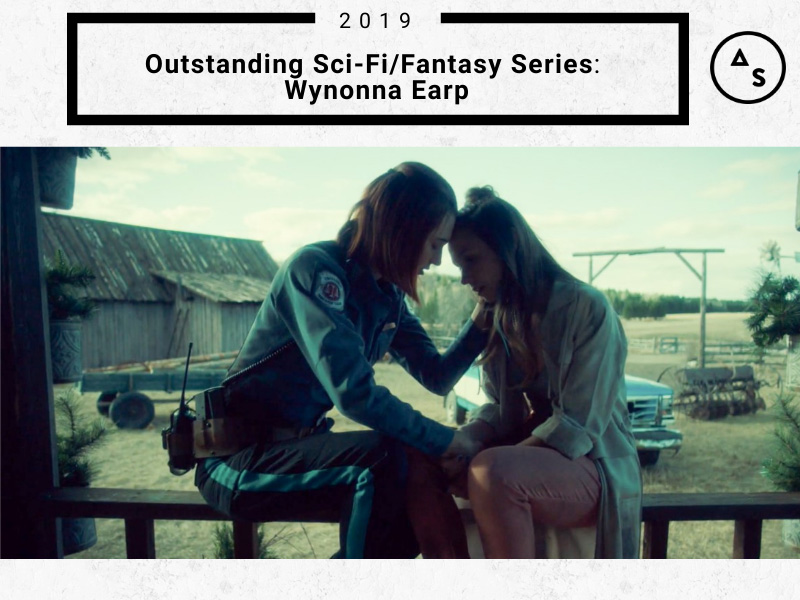
Runner Up: Sense8
Other Nominees: Supergirl // The Haunting of Hill House // Charmed // Black Lightning //
The Gay Emmys is where Sci-Fi really gets to shine, since they don’t usually get the spotlight at other industry award shows. Luckily the Autostraddle Gay Emmys are the most important awards, and sci-fi gets its place in the sun. This Wynonna Earp win feels extra special this year, since they’ve been on an unusually long hiatus for reasons outside their control, and especially right now because the fandom is in a bit of a lull since the #FightForWynonna has been won, but filming hasn’t started up again yet. But Earpers are known for their lack of chill and sticktoitiveness, so I’m not surprised at all they pulled off this win. Besides, the show speaks for itself. With so many queer people on screen and behind the scenes, it’s no wonder the queer storylines on the show feel like they’re treated with such care. – Valerie Anne
Outstanding Lead Actor Playing an LGBTQ+ Character in a Drama Series
Mj Rodriguez, Pose
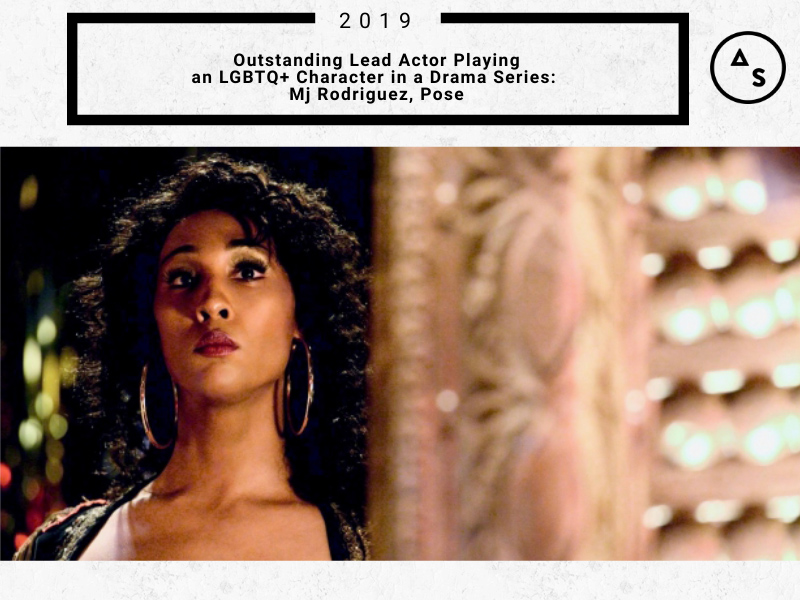
Runner Up: Suranne Jones, Gentleman Jack
Other Nominees: Indya Moore, Pose // Sandra Oh, Killing Eve // Jodie Comer, Killing Eve // Viola Davis, How to Get Away With Murder
This Sunday, when presenters take the stage and announce the nominees for Best Outstanding Lead Actress in a Drama Series, Mj Rodriguez’s name won’t be among them. It’s hard for me to fathom why that is… how Pose warranted a nomination for Outstanding Drama Series but the actor who gives the show its heart, Mj Rodriguez, did not. But what the Academy missed, the Autostraddle community recognized: Mj Rodriguez’s turn as Blanca Evangelista earned our Outstanding Lead Actor Award.
As I wrote last year, Pose asks us to see ourselves in characters who, on their face, might not be like us – to believe in our common humanity. The depth of Mj Rodriguez’s performance makes that easy: “She’s woman who, instead of being content to inherit something, someday, took a step out on a ledge, and built something of her own. She is a woman who wants to leave a legacy, to leave some proof that she was here. She is a woman who, in the face of discrimination, keeps coming back over and over again, to move us a little closer to justice. She is a woman who cares for others and works tirelessly to secure their future.” She is me, she is us.
“Do you know what the greatest pain a person can feel is, the greatest tragedy a life can experience?” Blanca asks in Pose‘s pilot episode. “That is having a truth inside of you and you not being able to share it. It is having a great beauty and no one there to see it.”
We see you, your truth and your beauty, Mj Rodriguez. Today and everyday. – Natalie
Outstanding Supporting or Guest Actor Playing an LGBTQ+ Character in a Drama Series
Angelica Ross, Pose
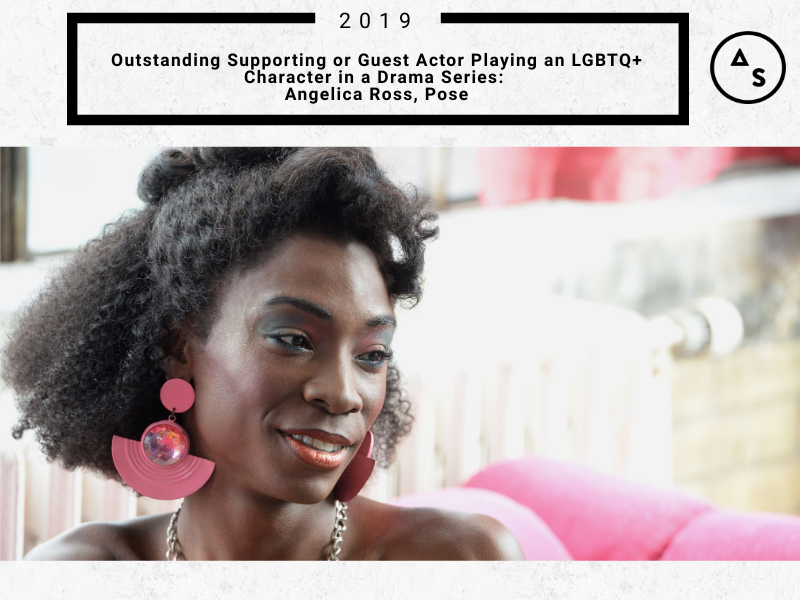
Runner Up: Judy Reyes, Claws
Other Nominees: Isis King, When They See Us // Laverne Cox, Orange is the New Black // Sophie Rundle, Gentleman Jack // Dominique Jackson, Pose
It’s been a big week for Angelica Ross. Earlier this week it was announced that she’s hosting the 2020 Presidential Candidate Forum on LGBTQ issues. And now she’s an official Autostraddle Gay Emmy Winner.
There’s a long history of actors who aren’t cis, straight, and/or white being involved in activism, using their platforms for change, and, sometimes, shifting their attention completely to social justice. But what makes someone a great activist and what makes them a great actor aren’t always separate. They certainly aren’t with Ross.
Candy was never the heart of Pose. She was sometimes a dramatic foil, sometimes the comic relief, sometimes, even, underwritten. But Angelica Ross made her real. She understands when portraying a character, or fighting for the community, one has to lead with humanity. Every joke, every big reaction, every moment of physicality, Ross found Candy’s motivation. Candy may not have been the star of the show, but she was the star of her own show and Ross allowed Candy a sort of meta-narrative where she fights not to be ignored in real life and in television life.
Episode four, “The Fever,” may be my favorite of the show, largely due to Ross’ performance. Determined to compete in the Body Category, Candy seeks out dangerous, low-cost implants and Ross plays her somewhere between desperate and determined. She wants to be seen by others as she knows herself to be – and Ross made sure, we, the audience, did just that. – Drew Gregory
Outstanding Lead Actor Playing an LGBTQ+ Character in a Comedy Series
Mishel Prada, Vida

Runner Up: Isabella Gomez, One Day at a Time
Other Nominees: Desiree Akhavan, The Bisexual // Yael Grobglas, Jane the Virgin // Phoebe Waller-Bridge, Fleabag // Stephanie Beatriz, Brooklyn 99
Mishel Prada is a Capricorn. And while actors can certainly play characters with different birth charts than their own, I don’t think it’s a stretch to read this Capricornness in Prada’s performance as Emma on my very favorite show, Vida. Emma is stubborn and determined. She’s sometimes cold but never thoughtless. She’s hesitant to share her feelings, yet underneath she has so many. And, without fail, she gets the job done.
Prada balances all of Emma’s contradictions and her complex personal history in every moment of the show. The intimate handheld cinematography captures every shift in purpose, in feeling, every decision to maintain or stretch her boundaries. It’s all visible in Prada’s deep brown eyes and her selectively cracked smiles. As the show goes on, it’s less that Prada reveals Emma’s vulnerability and more that she redefines what vulnerability means to Emma.
Since this is a comedy category I’d be remiss not to mention that within Emma’s emotional journey, Prada finds plenty of humor. Emma may be the queer sister but up against the chaotic Lyn, she’s the obvious straight man. With just a glance or an eyeroll, Prada heightens Lyn’s absurdity, aligning the audience with Emma, and making us laugh at the whole situation. She shoots off deadpan insults with shifting humor whether they’re aimed at Lyn, a lover, or anyone on her growing list of nemeses. Emma is self-destructively intelligent and with that comes an equally destructive wit.
Within Vida’s first two seasons, Prada has created a person we can relate to, get frustrated with, and lust after. She’s created a person who is ever-changing, yet remains exactly the same. She’s created a person who feels like just that, a person. It’s a remarkable, must-see performance on a remarkable, must-see show. – Drew Gregory
Outstanding Supporting or Guest Actor Playing an LGBTQ+ Character in a Comedy Series
Rosario Dawson, Jane the Virgin
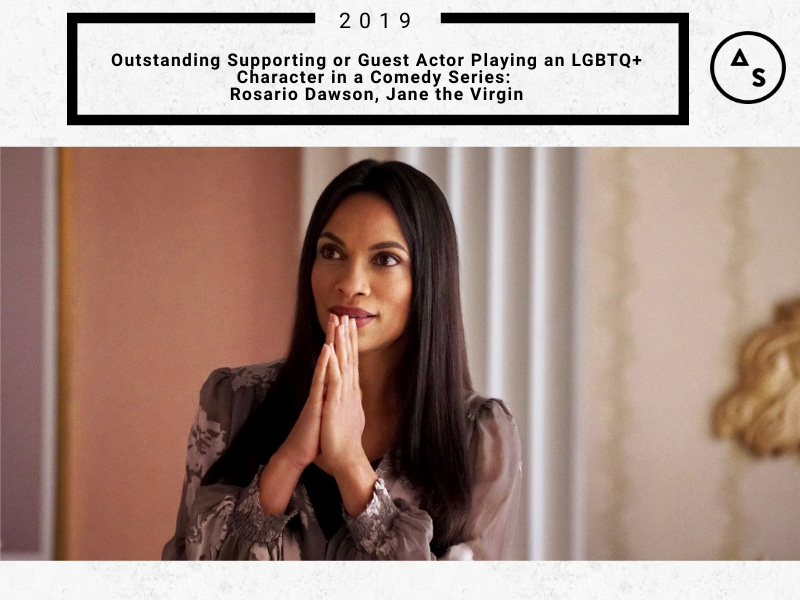
Runner Up: Roberta Colindrez, Vida
Other Nominees: Ser Anzoategui, Vida // Yara Martinez, Jane the Virgin // Sheridan Pierce, One Day at a Time // Alex Borstein, The Marvelous Mrs. Maisel
When Rosario Dawson joined Jane the Virgin it felt like the ultimate consolation prize. No, the writers weren’t going to have the titular Jane hook up with Petra, her occasional rival and sometimes friend. But they were going to introduce another character, also named Jane, and have her reveal Petra’s bisexuality. And, as if to quiet complaints that this wasn’t enough, they cast Rosario Dawson.
But what began as possible stunt casting, or a simple gift to the horny queer audience, became a reminder of Dawson’s actual talent. As Jane Ramos (a.k.a. JR) Dawson alternates between Petra’s baby gay fantasy of a dominant, experienced, and intimidating queer woman, and her own experience dating a baby gay, especially one as complicated as Petra. You can sense in Dawson’s performance the conflict between her logic and her feelings. She doesn’t want to be Petra’s experiment. She doesn’t want to trust that what they have is real only to be proven wrong. She thinks of herself as beyond that. But feelings are feelings.
Dawson is so good at making it obvious why Petra is in love with her and making it equally obvious why JR has doubts. She makes sure we understand why they might not work as a couple, all the while desperately hoping that they do. It’s a fun, sexy, deeply felt performance, and it’s a big reason why Jane the Virgin’s queer love story became more than just another subplot. – Drew Gregory
Outstanding Lead Actor Playing an LGBTQ+ Character in a Sci-Fi Series
Jamie Clayton, Sense8
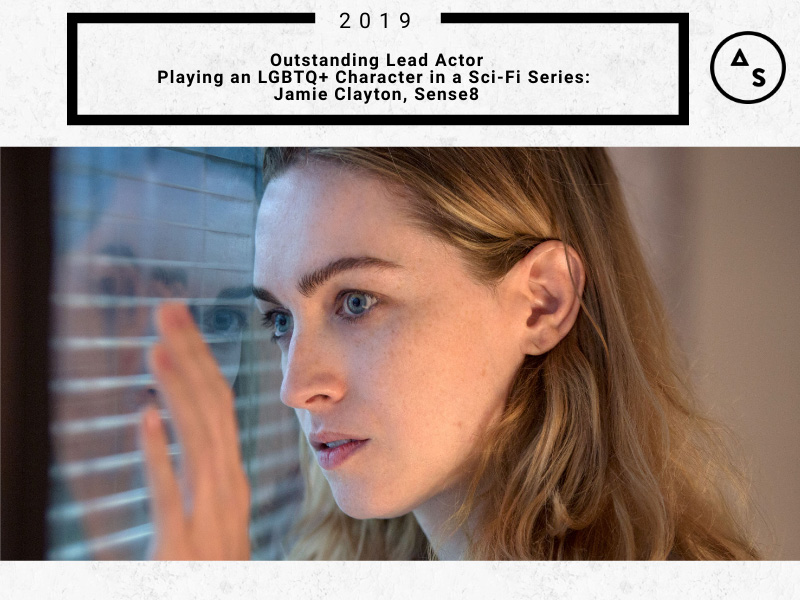
Runner Up: Chyler Leigh, Supergirl
Other Nominees: // Melonie Diaz, Charmed // Nafessa Williams, Black Lightning // Kate Siegel, The Haunting of Hill House // Lyrica Okano, Marvel’s Runaways
I love to see a show win on its way out, as a sort of parting gift for all the hard work put into it. Sense8 may be over, but Jamie Clayton’s Nomi won’t soon be forgotten. A queer trans woman dating a queer woman of color, played by a trans woman – when Sense8 started in 2015, these things were revolutionary. And maybe they still are. Sense8 was always a big jumble of labelless queerness and this final season was no exception. As Kayla mentioned in her review , it was like a love letter to the fans, and this Emmy is a love letter right back. Because in 2019, we still can’t take queer happy endings for granted. – Valerie Anne
Outstanding Supporting or Guest Actor Playing an LGBTQ+ Character in a Sci-Fi Series
Nicole Maines, Supergirl
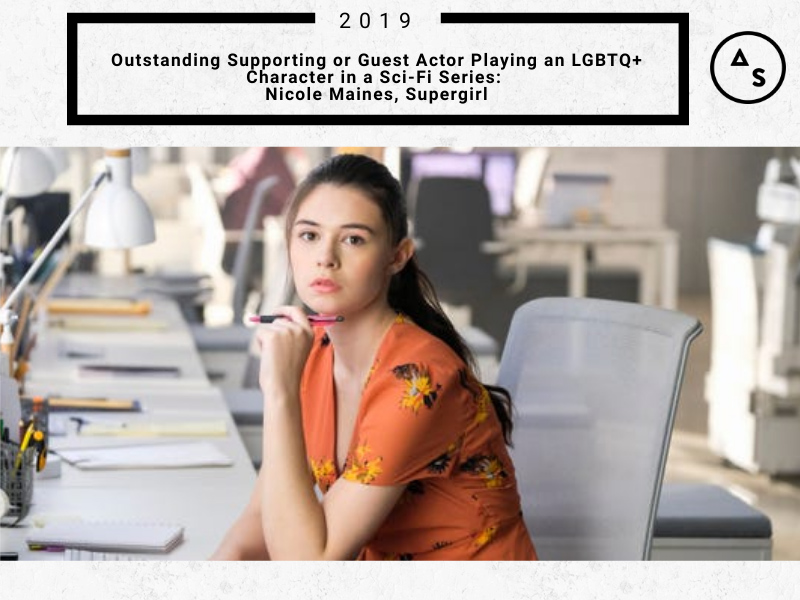
Runner Up: Kat Barrell, Wynonna Earp
Other Nominees: Chantal Thuy, Black Lightning // Lachlan Watson, The Chilling Adventures of Sabrina // Mayko Nguyen, Killjoys // Hannah John-Kamen, Killjoys
I never really knew what people meant when they said “breakout star” until I saw Nicole Maines playing Nia Nal in Supergirl and all I could think was: This isn’t the last we’ll see if this girl. She’s charming and cute and funny, and her social media presence is hilarious. She seems to be having fun, and that fun shows on screen. And having watched some of her talks on YouTube, she seems to be a strong, smart young woman who is a superhero in her own right; I can’t think of anyone better to play trans superhero Dreamer. – Valerie Anne
Outstanding Performance by a Straight Actress in a Straight Role
Justina Machado, One Day at a Time
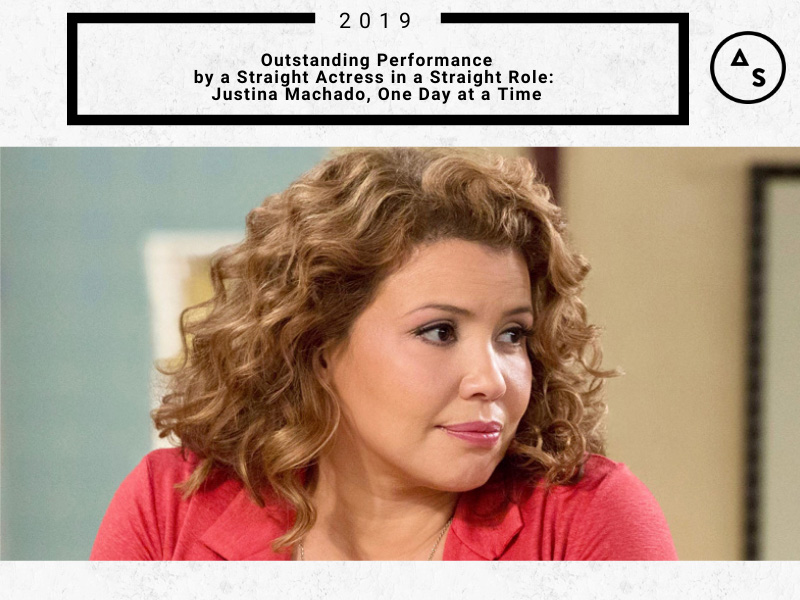
Runner Up: Melanie Scrofano, Wynonna Earp
Other Nominees: Rita Moreno, One Day at a Time // Sunetra Sarker, Ackley Bridge // Gina Rodriguez, Jane the Virgin // Logan Browning, Dear White People
I am so honored that we get to give this sort of silly titled award to such phenomenal actress. Justina Machado is one of the most gifted comedic actresses of our time, but the fact that “mainstream” Hollywood continues its stubborn refusal to recognize her work is no laughing matter. When you watch the “Straight” Emmys this Sunday, pay attention to the Lead Actress in a Comedy Category; there is not a single person nominated that Justina Machado couldn’t go toe-to-toe with and win.
What Justina Macahdo has accomplished with the role of Penelope Alvarez is nothing short of a marvel – scripts often require that her portrayal of the single mom and Army vet living with PTSD change emotional beats at the drop of a pin. Not only can she go from a laugh to a cry faster than you or I take breaths, she does it without ever losing track of Penelope’s core honesty. Even her broadest moments never feel forced. Hollywood racism may continue to keep Justina Machado from all the bigger and fancier awards that she rightly deserves, but I hope this acknowledgement and “Thank You” from the Autostraddle community helps just a little to let her know that she’s seen. She’s appreciated. – Carmen Phillips
Outstanding Individual Episode with LGBTQ+ Themes
“Love Is the Message,” Pose
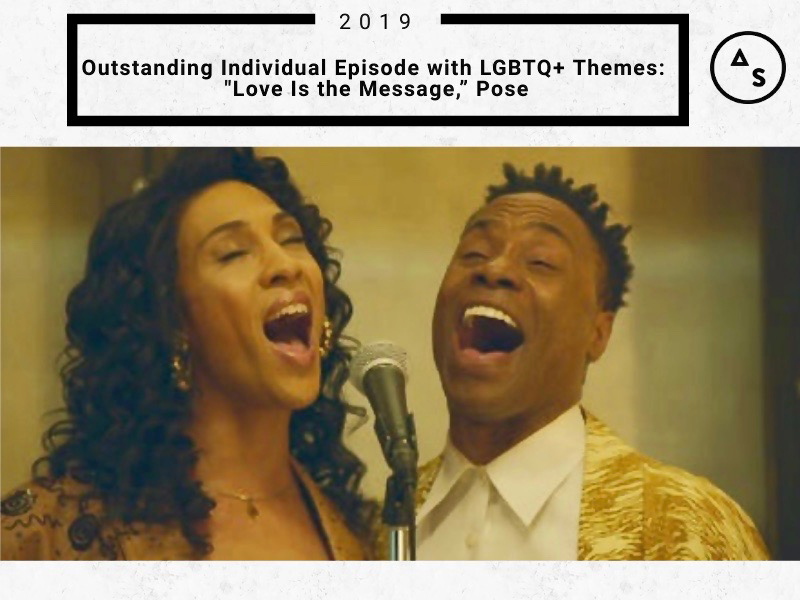
Runner Up: “Touch,” The Haunting of Hill House
Other Nominees: “Ghosts,” One Day at a Time // “Reunited,” Steven Universe // Episode 9, Vida // “Scream,” Claws
Pose’s first cabaret episode captures the true heart of the show, which is inherently joyful and celebratory of queer life, making it a rare gem on prestige television where queer and trans lives are far too often treat as tragic. Pose is a very special show, and this is a Very Special Episode without trying too hard to be one. But I’d also be remiss not to mention this category’s runner-up: the exceptional “Touch” from The Haunting Of Hill House, which captures queerness, trauma, grief, and otherness in such a beautiful, heartbreaking way. I’m thrilled that such a radiant and ultimately positive episode won this category, but I think these two episodes work beautifully in tandem and are exemplary of how diverse and nuanced this category overall ended up being this year. – Kayla Kumari Upadhyaya
Outstanding LGBTQ+ Coming Out Story
Tess Pearson, This Is Us
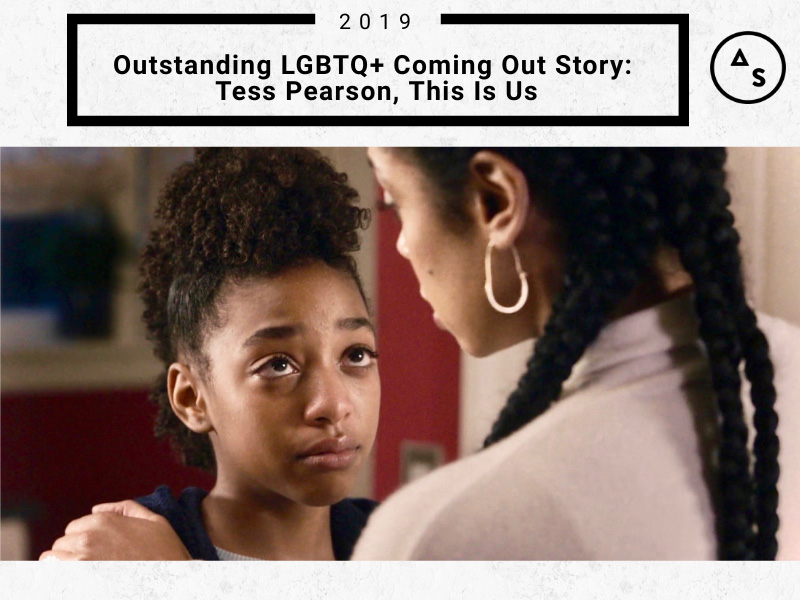
Runner Up: Clare Devlin, Derry Girls
Other Nominees: Eve Polastri, Killing Eve // Tamia “Coop” Cooper, All American // Alice Kwan, Good Trouble // Grace Hanson, Grace and Frankie
There is a great value in seeing our stories told on television. There is power in seeing our identities affirmed and comfort in seeing the oftentimes difficults journeys we have to take to fully live our truth showcased. And, in Tess Pearson’s coming out story, we get that: A young black girl coming out to her family on the most watched show on broadcast television? We have never seen it, and for girls who recognize their attraction to other girls at an early age, seeing Tess Pearson is confirmation that you’re never too young to embrace your own truth.
“People, um, at school have been having crushes and stuff and lots of girls have boyfriends, but I don’t want one,” Tess confesses to her parents one night. “It’s because I think I might like girls, not boys.”
But there’s something else about Tess Pearson’s coming out, particularly that scene with her parents, that makes me choke up everytime I watch it. In her, we have a possibility model. Tess’ story resonates, not because it is my story, but because it is the story I wish I had — it is the story I wish every queer person who was brave enough to share their truth had, it is the story I wish every queer person who hasn’t yet come out to their family has in the future.
With every step Tess takes outside the closet — a closet that had already become suffocating to her, as a 10 year old child — she’s met with love and grace: first from her Aunt Kate, then from her grandmother and, finally, from her parents. They will love her no matter what, they assure her, and both Tess and the audience walk away believing them. Tess’ coming out and the reaction to it should be be a model for every family in 2019. – Natalie
Outstanding Performance by an LGBTQ+ Actor in a Comedy
Stephanie Beatriz, Brooklyn 99
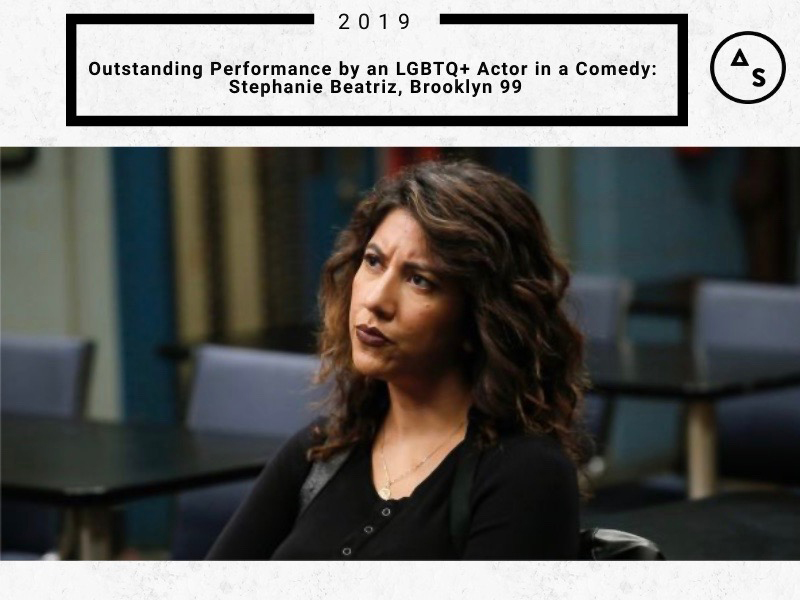
Runner Up: Lily Tomlin, Grace and Frankie
Other Nominees: Desiree Akhavan, The Bisexual // Roberta Colindrez, Vida // Gillian Anderson, Sex Education // Natalie Morales, Abby’s
Last year, Stephanie Beatriz was nominated in and subsequently won so many categories in these here awards that I’m surprised we didn’t rename them as the Autostraddle Stephanie Beatriz Emmys. Once again, she has deservedly won in the LGBTQ+ actor in a comedy category. Beatriz is funny, inspiring, and compelling. She has done incredible work on and off screen for bi visibility, and it has been delightful to watch Rosa come into her own on Brooklyn 99. – Kayla Kumari Upadhyaya
Outstanding Performance by an LGBTQ+ Actor in a Drama
Mj Rodriguez, Pose
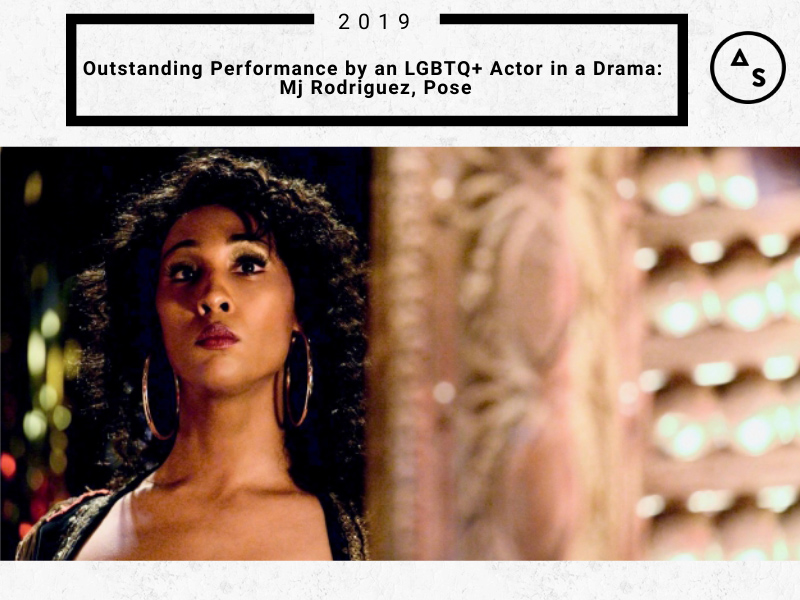
Runner Up: Indya Moore, Pose
Other Nominees: Angelica Ross, Pose // Laverne Cox, Orange is the New Black // Rutina Wesley, Queen Sugar // Dominique Jackson, Pose
As the kids say, “GIVE Mj HER THINGS!!” 💫💫
No, but seriously, if there is one thing that LGBT+ critics have agreed on across print and the internet, it is this: Mj Rodriguez is the most overlooked performer of the last year. The Television Academy’s biggest mistake this year was its complete shut out for the actresses Pose. In particular, Mj’s work as Blanca Evangelista is the pounding heartbeat that allows Pose to come alive in the first place.
It’s so easy to talk about all the ways that Pose breaks records – and we should! The largest trans woman of color cast in television history, the first trans woman of color TV writer in history, first trans woman of color director and producer! – but I sometimes worry that doing so allows straight critics to miss the real headline: LGBT+ creators’ work isn’t just important because it’s representational, it’s important because having honest representation makes for damn good television. (On that note, I’d like to recognize all of this category’s nominees – all six are black LGBT+ people who represent a full fabric of black queerness in a way we’ve never had the opportunity to experience before.)
I’m a black Puerto Rican with a chosen queer family of my own and New York roots, and I have never ever seen myself on television the way I have in Blanca Evangelista. That’s not something I am saying for “diversity points,” I’m saying it because it means there is a lot of Blanca’s story that I intimately relate to, and I can tell when there is a false note. With Mj there is not one.
At least once a day I have to stop myself from tweeting “I HOPE Mj RODRIGUEZ KNOWS HOW MUCH I LOVE HER!” but I think today might be the day to shout it from the rooftops – go ‘head mamí, come here and collect all your things. You deserve it. – Carmen Phillips
Outstanding Performance by an LGBTQ+ Actor in a Sci-Fi Series
Nicole Maines, Supergirl
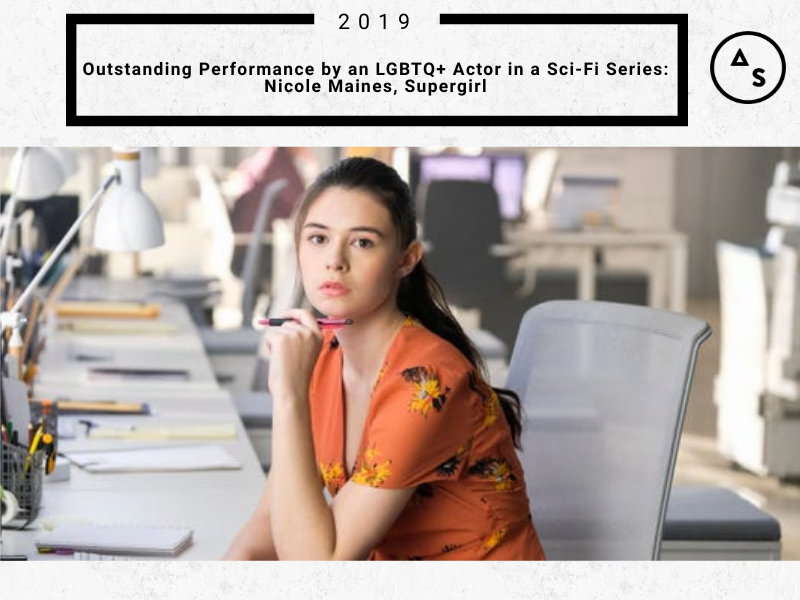
Runner Up: Jamie Clayton, Sense8
Other Nominees: Tig Notaro, Star Trek: Discovery // Kate Siegel, The Haunting of Hill House // Kat Barrell, Wynonna Earp // Ariela Barer, Marvel’s Runaways
Gosh it feels so good to give a trans actress playing a trans superhero TWO awards in these here Gay Emmys! Because I think it’s true that she deserves both; I think she deserves an award for her stellar portrayal of Nia Nal, for channeling that Season One Kara energy and making the New Superhero track her own. But she’s also, just in general, an outstanding LGBTQ+ actress. She lives her life out loud, and has since she was a kid fighting for the right to use the girls’ bathroom at her school. She’s an outstanding person, an outstanding actress, and well deserving of this and any awards thrown her way. – Valerie Anne
Outstanding LGBTQ+ Director / Producer / Showrunner
Janet Mock, Pose
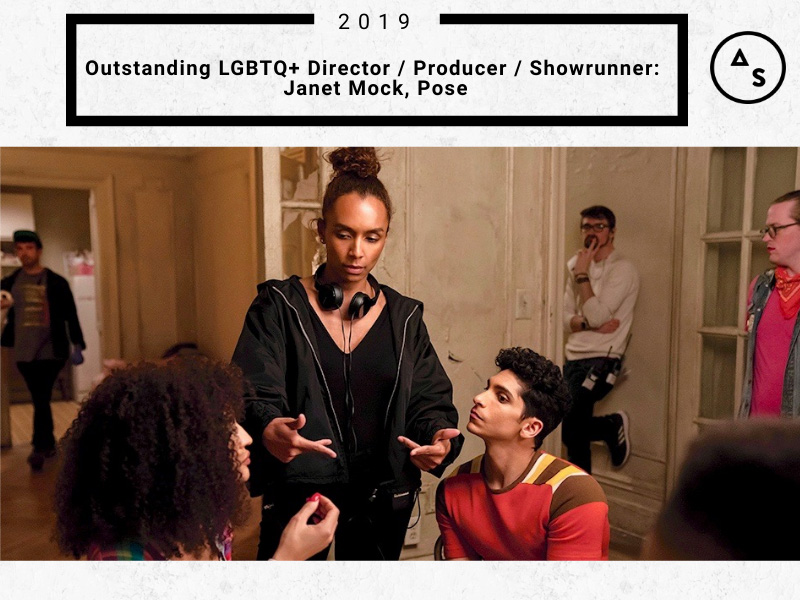
Runner Up: Rebecca Sugar, Steven Universe
Other Nominees: Desiree Akhavan, The Bisexual // Lena Waithe, Boomerang // Tanya Saracho, Vida // Leslye Headland, Russian Doll
Janet Mock showed the fuck up for her directorial debut (Pose’s “Love is the Message,” which already won this year’s Gay Emmy for Outstanding Episode), and I’m so excited that she ended up winning this category. As a director, Mock captures romance, trauma, growth, and complicated interpersonal relationships with equal strength. She brings an authenticity to her telling of queer and trans stories that feels meaningful. And she understands her actors’ individual strengths as well as how to make them work well together. In short, she’s a powerful director who pulls the best out of her cast and tells a visually immersive story. We should all feel thrilled about her future work as a director. Did I mention that she’s also a writer and producer on Pose? A triple threat. – Kayla Kumari Upadhyaya
Most Groundbreaking Representation (Show)
Pose
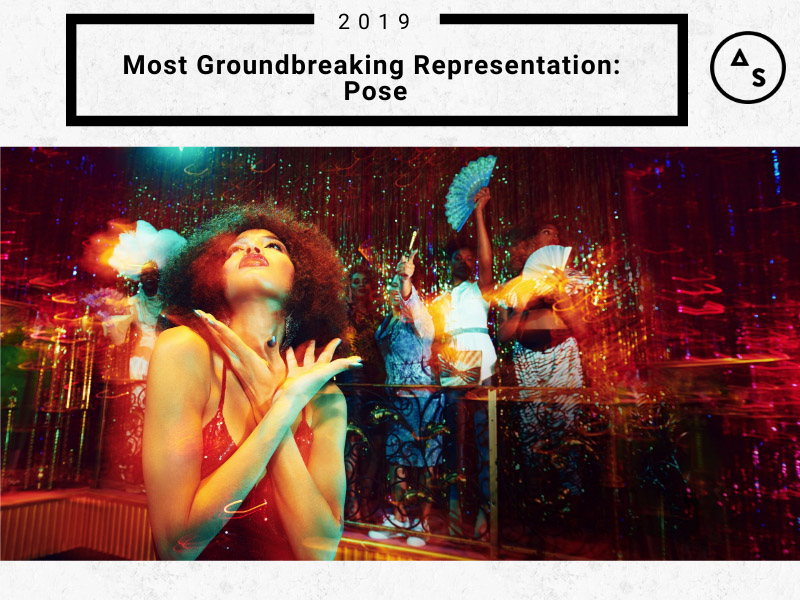
Runner Up: One Day at a Time
Other Nominees: Vida // Boomerang // She-Ra // The Bisexual
Pose dominates in so many of these categories, because it really is a singular show. No other show celebrates queer and trans—and specifically QTPOC—lives like this one. While it is real and sometimes devastating in its portrayal of QTPOC lives in late 80s-early 90s nyc, it’s also a strikingly joyful show. It doesn’t resort to tragedy porn and instead rather shows the full range of these characters’ lives, which include romances, evolving friendship and familial dynamics, and self-discovery. It’s as fun and spectacular as ball culture itself. – Kayla Kumari Upadhyaya
Outstanding Male Character
Rogelio de la Vega, Jane the Virgin
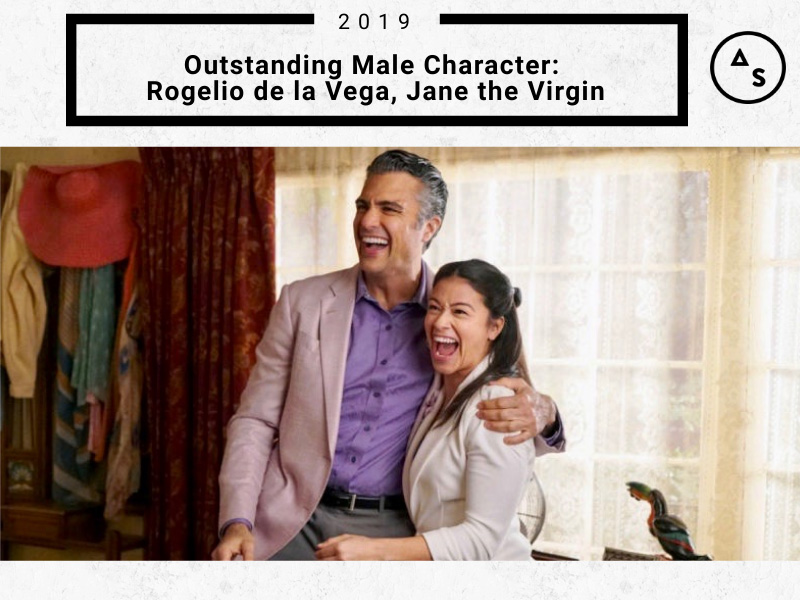
Runner Up: Pray Tell, Pose
Other Nominees: Captain Holt, Brooklyn 99 // Evan Huang, Fresh Off the Boat // Ari Thomas, Boomerang // Lincoln Rice, Broad City
“We consume culture through television now,” Vida‘s creator, Tanya Saracho once said. “If you live in a place that doesn’t have a lot of access to Latinx people, then television becomes a great equalizer, like a normalizer, that lets you into these worlds.”
I think Saracho’s right about television’s ability to serve as an equalizing force but, particularly when it comes to the representation of Latinx men, Hollywood is increasingly normalizing a stereotype of those men as criminals. We see this trend in shows like Narcos, Queen of the South, Mayans M.C, Better Call Saul and Ozark. Without personal interactions or varied portrayals of Latinx men on television, ideas about Latinx people — like those espoused by the president — having an easier time taking root.
That’s why I’ll miss Jaime Camil’s portrayal of Rogelio de la Vega, the two-time winner of our Outstanding Male Character category, so much. Though we barely noticed it through our laughter, every time he embraced fatherhood with Jane and Baby, cheered on Xiomara, forged friendships with Michael and Rafael and chased his own dreams of American superstardom — Rogelio was undoing the damage of those harsh tropes. I regret we won’t have more years of him and his lavender shirts to serve as the normalizer we need. – Natalie
Outstanding Animated Series
She-Ra and the Princesses of Power
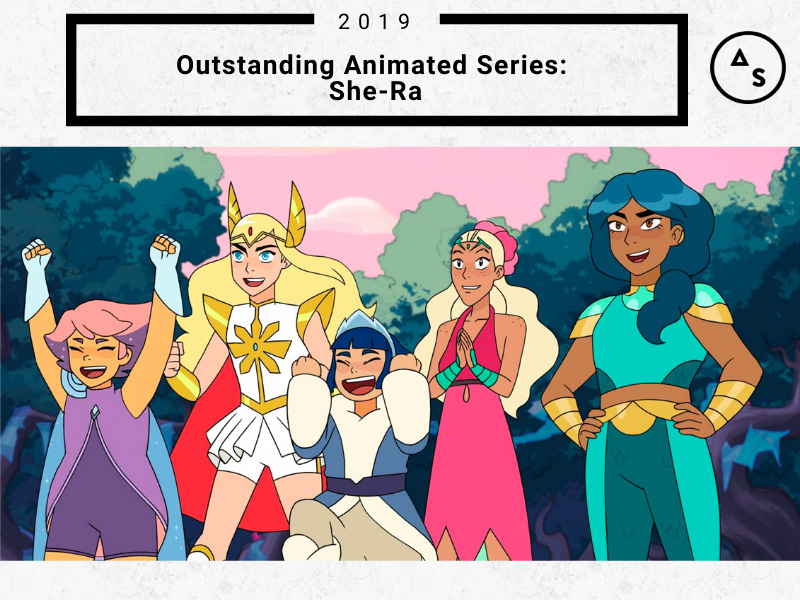
Runner Up: Steven Universe
Other Nominees: Love, Death & Robots // Bojack Horseman // Adventure Time // Tuca & Bertie
The greatest compliment that I can give She-Ra is that I had not watched an original animated series in probably over a decade, and She-Ra is the one that changed all of that.
What can I say, there’s something addictive about watching queer princesses kick so much ass. She-Ra is healing and delightful for the childhood Disney Princess stan in me (seriously – once, in Kindergarten, I wore my Cinderella costume for a month straight), but it’s also supremely written and animated television. It takes its villains seriously; I’d argue that Catra and Shadow Weaver have some of the greatest anti-hero storylines written this year. It’s not afraid to teach children about darkness that looms, but also that friendship and sparkles and a willingness to just try your best and do good in this world will always be worth the fight. We joke a lot that She-Ra is the “gay agenda,” but honestly? Teaching kids to forgive, love each other, and always fight for the good is not a terrible agenda to have. – Carmen Phillips
Outstanding Hairstyling for an LGBTQ+ Character
Alex Danvers, Supergirl
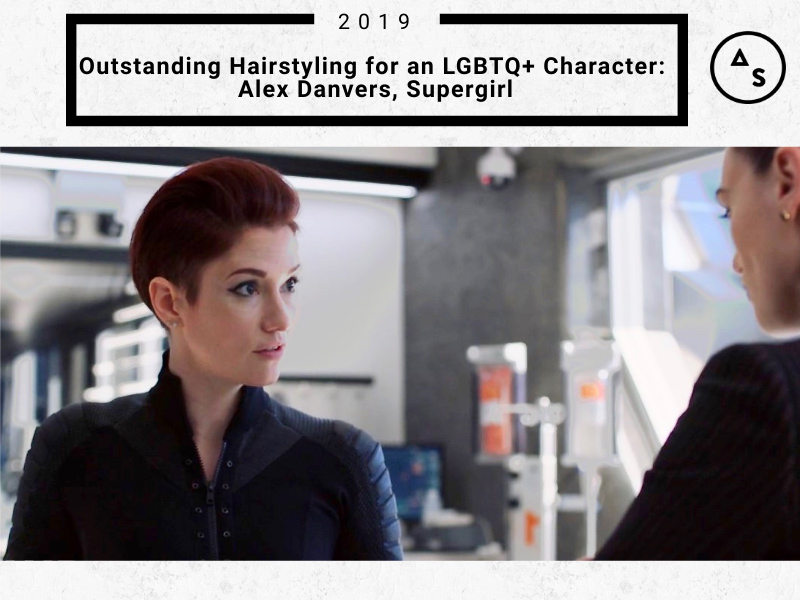
Runner Up: Angel Evangelista, Pose
Other Nominees: Lena Adams-Foster, The Fosters/Good Trouble // Eve Polastri, Killing Eve // Nova Bordelon, Queen Sugar // Kat Sandoval, Madam Secretary
I have to give it to Chyler Leigh – this haircut is commitment. Not every actor is willing to change their hair for the part, but this hair is so pitch perfectly Alex Danvers that, from where we currently sit, it’s hard to even remember what she looked like in Supergirl’s earlier seasons. There’s the “before” and the “after.” Alex’s haircut signaled a bright, shining new day for Supergirl, accompanied by not only a new queer love interest for Director Danvers – but the first trans superhero on television with Nicole Maines’ Dreamer! And sure, maaaaybe it’s an overreach to say that a single gay haircut helped make an already gay show just that much gayer, but you know what? I’m willing to put my foot down about this. Most Import Haircut Of The YEAR. – Carmen Phillips
Fan Favorite Categories
Fan Favorite Couple
Juliana and Valentina, Amar a Muerte
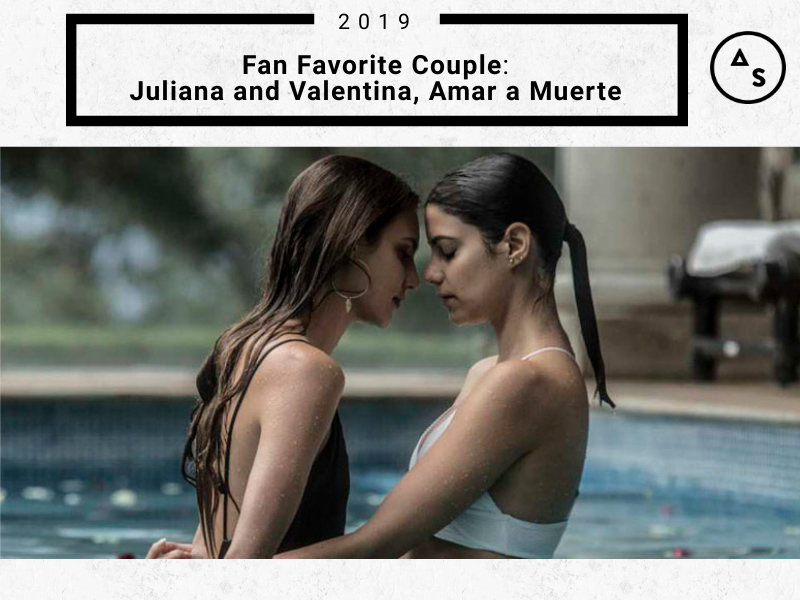
Fan Favorite Runner Up: Waverly and Nicole, Wynonna Earp
Fan Favorite Out LGBTQ+ Actor
Kat Barrell, Wynonna Earp
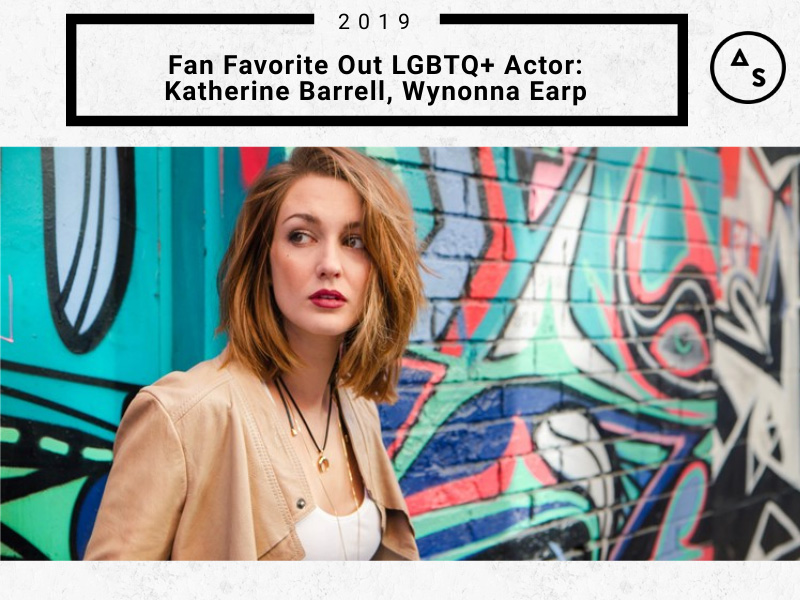
Fan Favorite Runner Up: Stephanie Beatriz, Brooklyn 99
Most Devastating Cancellation
Jane the Virgin
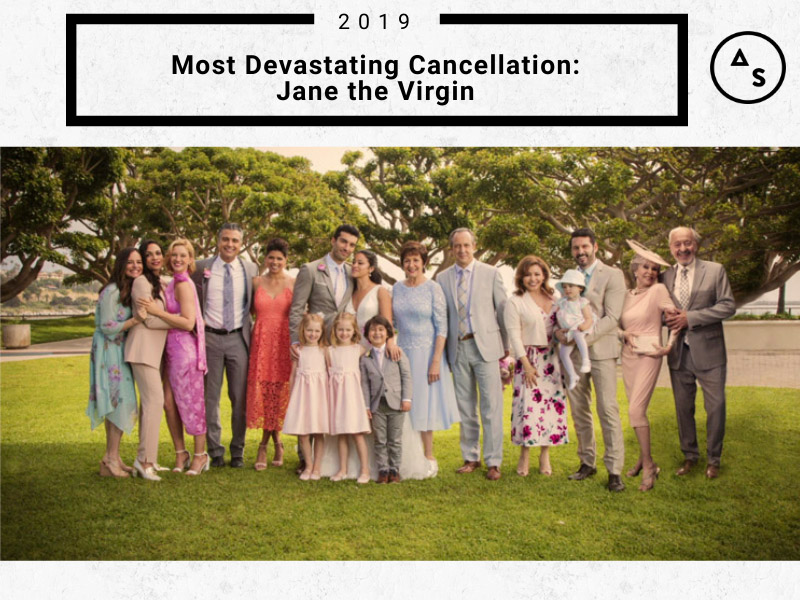
Fan Favorite Runner Up: Fleabag
Fan Favorite New Show
Amar a Muerte

Fan Favorite Runner Up: Gentleman Jack
Fan Favorite Character
Valentina Carvajal, Amar a Muerte
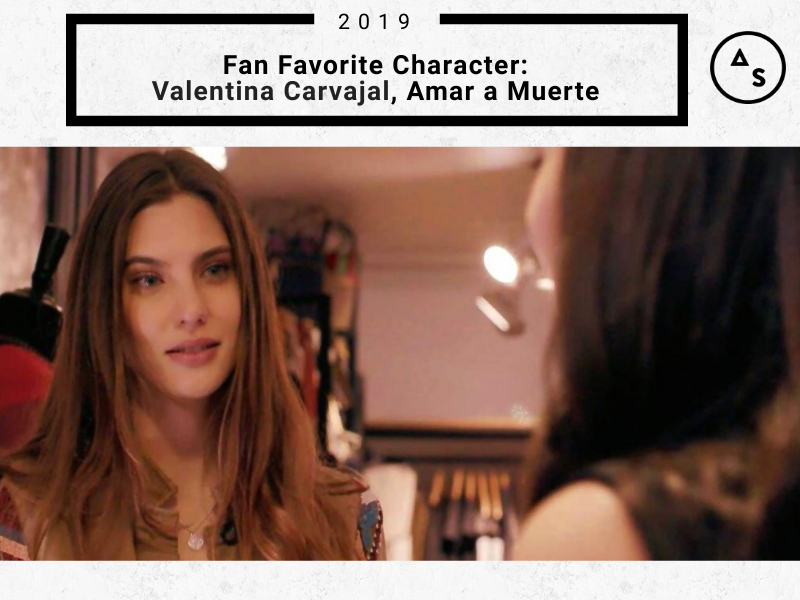
Fan Favorite Runner Up: Juliana Valdés, Amar a Muerte
❤️ ❤️ ❤️
The “Straight” Emmys are this Sunday, September 22nd on FOX. Sadly they won’t have the depth of queer roles and queer talent recognized that we already know deserve it, but hey – maybe pop a bowl of popcorn and check it out anyway?
Watch: The Trailer For “Pose” Is Here and It’s Already the Gayest Thing in TV History
FX just dropped the trailer for its new Ryan Murphy show, Pose, and holy whoa! We first heard about Pose back in December, when it was reported that Murphy was developing a show around the ’80s ball culture scene that would feature 50+ LGBTQ characters and the largest number of trans series regulars in American TV history. Well, the proof is here now and it’s honestly glorious. Take a look:
https://www.youtube.com/watch?v=2Jg6fiC1VpY&feature=youtu.be
The first press release for Pose promised “a look at the juxtaposition of several segments of life and society in 1980s New York: the rise of the luxury Trump-era universe, the downtown social and literary scene and the ball culture world.” I’m not exactly sure what I thought it would look like — there’s no arguing that Ryan Murphy makes visually stunning television — but I did not expect a Paris Is Burning-style documentary intro. I’m even more hyped now, and I’m not the only one!
https://twitter.com/angelicaross/status/976655851875430405
I get so emotional seeing all this amazing trans talent and beauty on screen. I know @PoseOnFX will show once and for all that the pool of trans talent is deep. There's no reason we shouldn't be cast to play both trans and nontrans characters. #TransIsBeautiful #PoseFX https://t.co/rUWXgnpACg
— Laverne Cox (@Lavernecox) April 12, 2018
I am so damn hype to be writing for these people, MY community. Y’all ain’t ready. #PoseFX https://t.co/Cguig9qLTl
— Janet Mock (@janetmock) April 12, 2018
MJ Rodriguez, Indya Moore, Dominique Jackson, Hailie Sahar and Angelica Ross are all playing series regular trans characters, and Janet Mock and Our Lady J are in the writers’ room. Pose is being executive produced by Nina Jacobson, who did The People vs. O.J. Simpson with Murphy (and lots of other non-Murphy A-list things like The Hunger Games and Pirates of the Caribbean). She’s also a lesbian who came up with Murphy in the ’90s; they ran a ten-person groupf called Out There that met and talked about the rare and wondrous life of not being closeted in Hollywood. Evan Peters, Kate Mara, and James Van Der Beek will play the straights.
Pose lands on FX on Sunday, June 3 at 9 p.m. I’m sure we’ll be hearing more about the other LGBTQ characters before then!
Laverne Cox’s “Doubt” Love Story Imagines a Better World for Trans Women
Prior to Doubt‘s premiere back in February, Laverne Cox was tasked with making the rounds to promote the show. She went to the Grammys, the morning shows and late night to talk about her role as Cameron Wirth on the new CBS legal drama. At every stop, she was asked about her moment at the Grammys, where she broke from the script and encouraged the audience to Google Gavin Grimm, the 17-year old Virginia kid who took his battle to use the bathroom corresponding with his gender identity all the way to the Supreme Court.
Cox took the opportunity to comment on the broader effort to undermine public accommodations for trans folk. She said, “What people should know about these bathroom bills that criminalize trans people — criminalize me going to the women’s room — is that these bills are not about bathrooms. They’re about whether trans people have the right to exist in public space.”
And that is where our public conversation about trans folk seems to begin and end: the right to exist.
Doubt, which CBS cancelled after two episodes but is airing throughout the summer, allows us to imagine a world where a different conversation is possible.
Cox plays Cameron Wirth, an Ivy League-educated lawyer who works at a boutique New York City law firm called Isaiah Roth & Associates. Roth’s reputation is the stuff of legends — Cameron’s father’s admiration of Roth’s defense of the Black Panther is what drew her to his firm. She joined at 26, the same year she came out and began transitioning, and while she strives to be every bit the social justice warrior Roth was, she’s determined to do it while being her authentic self.
The strength of Cameron, as a lawyer, is her ability to sympathize with her clients. It’s easier in some cases (like her defense of the Hudson University student fighting back against her unpunished rapist) than others (like the mentally disturbed man who pushes a woman off a subway platform or the meek librarian who imagines eating her co-workers for dinner). You suspect that her sympathy for others is rooted in her own experiences, but the show never fully examines it. Within the firm, her trans identity barely warrants a mention.
But Doubt allows Cameron Wirth to navigate more than just her work. Cameron goes out with her colleagues — to Hamilton and for happy hour celebrations — and has friends she can call on when she needs advice. And, best of all, Cameron gets to find love.
She runs into Peter Garrett (Ben Lawson), a former study partner of hers from law school. It doesn’t strike me until much later that Peter knew Cameron, pre-coming out, at Yale, and that she caught his eye, post-coming out, at a professor’s funeral. To its great credit, the show never mentions it.
Peter is relentless in his pursuit of Cameron, asking her out multiple times before she says yes. He charms her (and me, TBH) with his boyish good looks and his humor. He never shows a stitch of nervousness about dating a trans woman and the fact that he doesn’t makes Cameron even more nervous about dating him. And so Cameron does what every other woman who’s ever been nervous about dating someone new does: she calls her girlfriends.
This scene gave me my entire LIFE!!! I remember filming this with @Lavernecox & @SmartAssJen thinking how REAL this scene felt! #DoubtCBS pic.twitter.com/FqkKkDIrHc
— Angelica Ross (@angelicaross) July 9, 2017
Those girlfriends are two other trans women played by actual trans women (Angelica Ross and Jen Richards) and, suddenly, a normal conversation between three friends feels monumental.
Beyond the tremendous step forward this scene represented for trans women, there was also part of me that wanted to pull up a chair to that table and share high-fives with Jen Richards and Angelica Ross, because the moment felt so familiar. It was the conversation I had with my friends when I considered getting into my first interracial relationship or the first time I thought about dating a woman who had previously identified as straight. It’s a conversation that Aziz Ansari’s character, Dev, has on his first date with Sona (Pallavi Sastry) on Master of None — when does dating one too many of one type of person cross the line into fetishizing? Anyone who’s ever been othered has had some version of that conversation and it’s a reminder of our shared humanity.
Cameron’s dating someone when she meets Peter — a famous professional athlete nicknamed MVP — who, within the confines of his apartment or hers or a room at the Four Seasons, if its a special occasion, is the perfect boyfriend. Outside that, though, he won’t be seen with her. It’s that treacherous mix of the shame that society heaps on men for loving trans women that keeps the relationship closeted and the bigotry that convinces trans women they don’t deserve better that makes Cameron reluctant to chase the possibility of something better with Peter.
Eventually, though, worn down by his dogged pursuit, Cameron relents and kisses Peter for real. They go out on six dates…and then, finally, when Cameron’s able to trust that her relationship with Peter has enough of a foundation beneath them, they have sex.
It’s totally normal, but, on television, it’s totally not.
The first time I watched, Cameron and Peter started kissing with the hotel room’s door open and I was already preparing myself for the door slam, the one that inevitably shuts us out of the intimacy. No cishetero couple makes me feel that fear — when Sadie (Katherine Heigl) and Billy (Steven Pasquale) have sex for the first time on the show, it’s in the kitchen and we watch them slowly kiss and undress, as a song builds to an emotional crescendo in the background. After years of watching LGBT storylines, I’ve been conditioned to expect the door to close, the show to cut to commercial and then return with a shot of Cameron and Peter, basking in the afterglow. That’s what happens to our storylines and, as they kiss, I’m preparing myself to be happy with those romantic crumbs.
But then Peter slams the door and we’re still inside the room. The scene’s too short — far shorter than Sadie and Billy’s sex scene — but we’re in the room. Doubt lets us see a trans woman and the man who loves her and it’s glorious. I may have cheered the scene…and replayed it about a dozen times…mostly for the history, but also for how damn good Laverne Cox looked in her bra and underwear.
Our trans editor, Mey Rude, loved this scene too:
These scenes where Peter is kissing and sleeping with and pursuing Cameron, especially when they’re in public are some of the most important pieces of trans media I’ve seen. Most trans women are murdered by partners because society teaches men that they should be ashamed that they’re attracted to trans women. Yet here’s a story on network TV that’s in-your-face confronting and challenging that narrative. It’s putting out a call for men who love trans women that they gave nothing to be ashamed about and that they have no reason to keep it a secret.
Whenever I’m asked about how we can lessen the amount of murders of trans women of color, the main thing I say is that we need to tell men over and over again that loving a trans woman doesn’t make you gay, it doesn’t make you wrong and it’s absolutely nothing to hide or be ashamed of. Doubt is doing an amazing public service by bringing this conversation to the public eye.
When we see Peter and Cameron again, they’re in family court — her, defending Heyward, a young black man who ran from the cops after being caught tagging a pillar; him, the rising star in the DA’s office sent to make sure the excessive charges stick. The tension between them is thick but it’s more about the case than their relationship.
Later, they’re relaxing together on the couch — Cameron getting her Olivia Pope on, sipping wine and watching TV, while Peter works on his arguments for court the next day. The tension from the courtroom carries over into their personal relationship and Cameron decides it’s time to disclose. Peter’s agreement happens so fast that Cameron doesn’t even think to question it (meanwhile, I’m at home, yelling “Don’t trust him, Cam!” at my TV). She’s shocked the next day when Peter calls in sick and another Assistant District Attorney shows up in court.
After notching another win, Cameron waits outside Peter’s apartment, carrying some chicken noodle soup, when a definitely not sick Peter strolls up. He tries to explain, but Cameron’s heard this song before and she lays it out for him.
“You’re okay with dating me, but this morning it hit you, you could actually be in a room full of people staring at you, judging you, because of me,” she explains. “Suddenly things got real, you panicked, so you called in sick.”
Peter cops to what he did and says he only needed a day but Cameron is unmoved. She took a chance on Peter because she thought he was different, that he offered her an opportunity at love out in the open, but he’s not and Cameron refuses to be anyone’s secret again.
So good. And painfully familiar. Dating a trans woman may be new to each man we meet, but men who lack the strength we deserve is old to us. https://t.co/ujAlOEmgf3
— Jen Richards (@SmartAssJen) August 6, 2017
What happens next is, again, standard fare in any romantic storyline — guy screws up, guy attempts to apologize by sending lots and lots of flowers — but it feels different when it’s centered on a black trans woman. The next day, Peter shows up at the firm and, despite initial attempts to avoid him, Cameron agrees to talk to him in her office.
The conversation that follows is stunning in its plainness. It is expertly crafted by transgender novelist Imogen Binnie, beautifully shot by Rob Greenlea and skillfully delivered by Ben Lawson. Your heart breaks for Cameron as she listens to Peter recite all the ways in which society promotes hypermasculinity, at the expense of trans women, while celebrating Peter for interrogating that toxicity so plainly.
Thank u@imbenlawson for your incredible performance in this scene. Thank u @imogenbinnie for writing it. Thank you @JoanRater &@TonyTphelan pic.twitter.com/aTKtbgGrI0
— Laverne Cox (@Lavernecox) August 6, 2017
“I realized that I was gonna have to either learn to live without those rules, or learn to live without you. Turns out, none of this is actually complicated. At all,” Peter proclaims. “If you’ll have me, I want to side with you. No matter what. No matter where, and no matter who.”
He invites her to meet his friends and colleagues at a fundraiser that night. I cheered so loudly after Peter finished his rom-com-worthy speech I didn’t hear Cameron’s response — I only wondered why they’re weren’t making out yet.
I rewound to discover that Cameron’s responded to Peter’s invitation with a firm no. Completely unmoved by his monologue, Cameron reminded him that aside from making her feel bad, he’s responsible for the loss of trust in their relationship. How can she believe that he won’t disappear again?
Sadie convinces Cameron not to judge Peter by his worst act and she tracks him down at work. She apologizes for holding onto her anger and agrees to be his date to the benefit. On the car ride to the event, Peter reveals that he’s being vetted to become acting District Attorney. Cameron’s happy for him but realizes that the fundraiser just became a much bigger deal. She offers him an out but he doesn’t take it — he meant what he said.
And Cameron Wirth, a black transgender woman, gets to step out of a town car, dressed to the nines, into the arms of a man who loves her, like a princess at a ball.
As I mentioned, CBS cancelled Doubt after just two episodes. I wish the explanation for running the show’s backlog was as simple as, “Well, the network already paid for it, so they might as well,” but that seems unlikely. In the past, CBS has yanked shows like We Are Men, a comedy starring Tony Shaloub, and Viva Laughlin, a musical dramedy, and they were never heard from again.
For all those @DoubtCBS fans you can catch the rest of the series starting July 1.If you missed the first 2 episodes watch on CBS all access pic.twitter.com/9hwlZPoK6l
— Laverne Cox (@Lavernecox) June 20, 2017
It seems likely that CBS is trying to shield itself from some of the bad publicity it’s received recently related to its lack of diversity. Earlier this summer, queer actresses Kristen Vangsness and A.J. Cook nearly left their longtime jobs at Criminal Minds over the lack of salary parity between them and their male co-star, Matthew Gray Gubler. Soon after CBS settled that dispute, Daniel Dae Kim and Grace Park took a similar stand but couldn’t come to an agreement and the pair walked away from their roles on Hawaii Five-0.
Last week at the Television Critics Association summer press tour, CBS Entertainment President Kelly Kahl proclaimed, “Every single drama on our air has at least one diverse character.” One. Diverse. Character. As if that were something to celebrate.
It’s proof that CBS (and its all-white casting departments) doesn’t understand and is not prioritizing real diversity or representation. So for Doubt to have gotten through the doors at CBS to air for even one season feels momentous, like the forces of good managed to sneak this one past the CBS gatekeepers. After all, with a cast lead by a woman (Heigl), with two black men (Dule Hill and Kobi Libii), a trans woman of color (Cox) and another woman (Dreama Walker) in supporting roles, Doubt is probably CBS’ most diverse show in years.
And while I should be mad that CBS is probably using this show as a shield, I’m not.
This has been one of the most demoralizing years for trans news in recent memory. We see it across the political landscape. In North Carolina, transgender activists, represented by Lambda Legal and the ACLU, announced legal action in response to the state’s latest anti-transgender policy, a supposed repeal of anti-trans HB2, HB142. In Montana, after being rebuffed by the legislature, the right-wing is taking their anti-trans bigotry to the people, hoping to secure 25,800 signatures to gain access to the November 2018 ballot. Meanwhile, in Texas, Gov. Greg Abbott and Lt. Dan Patrick continue to push their version of a bathroom bill through a legislative special session. Last week, the Texas Senate voted, 21-10, to advance SB3 to the House, where past efforts have stalled due to a more pro-business conservative leadership. Then, of course, there’s Donald Trump, who is moving quickly to ban trans people from military service. And the pandemic of murders that continues to plague trans women, most especially black trans women
But these challenges to trans existence aren’t purely political. They also infest our media and pervade popular culture.
A few weeks ago, Janet Mock visited The Breakfast Club, a New York-based syndicated morning radio show on Power 105, to talk about her new book, Surpassing Certainty. The reputation of the self-proclaimed “World’s Most Dangerous Morning Show” preceded it, Mock writes in her recounting of the incident for Allure. “I had watched previous interviews over the years and was familiar with their provocative and oftentimes problematic brand of talk.”
You can watch the interview in its entirety here, but we know how it plays out, in part because we’ve seen it play out in interviews with trans women before. It’s Mock with Piers Morgan back in 2014. It’s Cox and Carmen Carrera with Katie Couric. It’s the popular invasive obsession with trans women and their bodies, without any actual concern for trans women. The fact that Mock’s appearance — and the level of disrespect she was subjected to — isn’t the story here, tells you all you need to know about the burden that society puts on the oppressed.
Soon thereafter, a clip from a separate Breakfast Club interview emerged: this one featuring comedian Lil’ Duval.
why are [black] men so obsessed with being ignorant? idegaf about political correctness, but it’s this fixation on this narrative. pic.twitter.com/U94iUB2o4k
— T$BIGGIESMALLS (@fatfemme) July 29, 2017
The same people who interrogated Mock just days earlier, used her image as a prop for some low-budget comedian’s justification for violence against trans women and laughed along as they misgendered her. A movement quickly built online to #BoycottBreakfastClub, including a petition from the Marsha P. Johnson Institute, and Raquel Willis’ call for everyone to stand up and proclaim #TransFolksAreNotJokes. Offline, Patrisse Cullors, Ashlee Marie Preston and Blossom C. Brown confronted Breakfast Club host, Charlamagne Tha God, at Politicon.
Eventually, Charlamagne responded to the criticism, never apologizing for show’s role in egging Duval on, but reinforcing that they “don’t condone those kind of hate crimes at all, not even a little bit.” He promised that the Breakfast Club would continue to provide “a platform for the voiceless.”
Charlamagne reiterated that message in a statement to the New York Times over the weekend, but added that there needed to be more discussion about transgender people disclosing their gender identity to sexual partners. “To me, anytime you take away someone’s power of choice, it’s criminal,” he said, still trying to justify his actions.
In the time since the Breakfast Club boycott began, we’ve seen legendary comedian Dave Chapelle devote 20 minutes of his set at Radio City Music Hall to making jokes at the expense of trans people, and reality show D-lister Derick Dillard launch a transphobic attack at Jazz Jennings and their shared TV network. Hardly one day passes without an instance of trans people’s right to exist being questioned.
Doubt posits there’s a way for cis people to just stop. To stop challenging trans people. To accept that trans people exist and let them live their lives. To stop asking every trans person, and trans women, in particular, to teach us Trans 101 every time they step into a room. To agree that unless you’re romantically involved with a trans person, you don’t get to ask them about their genitals. Doubt proclaims this truth loudly and clearly: Trans people are not responsible for transphobia, misogyny and toxic masculinity. It is on cis society to fix that by ourselves.
Representation is powerful, but representation rarely comes without personal exposure. Norman Lear penned the first transgender character on television in 1977 — a veteran on The Jeffersons — as a reflection of the trans women at the helm of the gay rights movement during that time. Tony Phalen and Joan Rater are successful with Doubt in part because they don’t have to imagine a world where trans people are fully accepted: they live it. Their son is Tom Phelan, a young trans actor whom you might recall from his stint as Cole on The Fosters.
Doubt gets its trans representation very, very right. It’s not a perfect show. Still, I’ll treasure it for it’s revolutionary representation of trans women in pop culture, for how it made Laverne Cox a better actress for whatever ground she chooses to break next, and for how it allowed me, in the midst of so much transphobia, to imagine a world that is better.
58 Trans Women Actresses You Should Know and Also Love
Y’all are probably familiar with the dearth of positive trans representation out there in the world, and also the oft-problematic situation in which the few trans women characters that do exist are rarely portrayed by actual trans actresses. Those roles usually go to cis men, and often go to cis women. This issue has gotten increasing attention over the last few years as high-profile trans female roles have been snagged by cis male actors like Eddie Redmayne, Jared Leto and Matt Bomer. There’s no need for this to happen when there are so many trans actresses out there who are ready and willing to do the work, as explained in a video released last month in which trans actors demand Hollywood cast trans actors in trans roles. “We’re not saying that cis people can’t ever play trans parts,” the video declares, “Just that right now, in this culture, there are consequences: bad ones.”
I recently witnessed a trivia game in which a group of queer people were unable to name more than three trans actresses (which sadly is two more than most Americans can name). Nothing makes me more bananas than seeing human beings incorrectly answer questions I know the answer to, which’s why I was VERY popular in elementary school. BUT SERIOUSLY that situation is what inspired me to make this list, a process through which I learned about so many women I’d never heard of before. Probably neither have you!
So, here we are: 55 trans actresses y’all should know and love and that we’ll hopefully see on some screens or stages more often than we do currently.
Alexandra Billings

Alexandra Billings in “How To Get Away With Murder”
Alexandra Billings is brilliant barrier-busting actress, cabaret performer, director, activist and playwright. She’s one of the first trans women to ever play a trans woman on television, and she’s since popped up on shows like How to Get Away with Murder, Grey’s Anatomy, ER and Eli Stone; as well as playing Davina, Moira’s HIV-Positive best friend, on Transparent.
Alexandra Grey
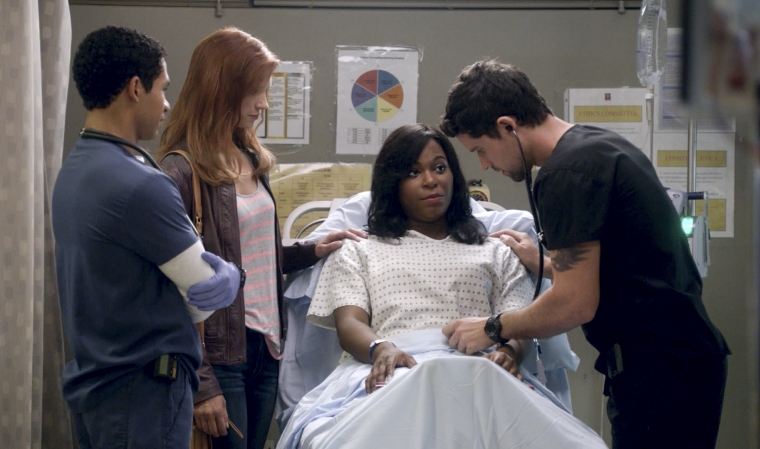
Alexandra Grey in “Code Black”
Grey’s first role was as a Dancer on the TV series Braxton Family Values in 2011, and she went on to snag a featured role as Lisa Knight in the TV series Jess Like Me as well as parts in a bunch of other TV shows and movies, including Chasing Life, DTLA, All About Lizzie, Glee, Transparent, Code Black, Chicago Med and Doubt. She played the legendary Marsha P. Johnson in Drunk History: Bar Fights and Seville in When We Rise.
Alexis Del Lago
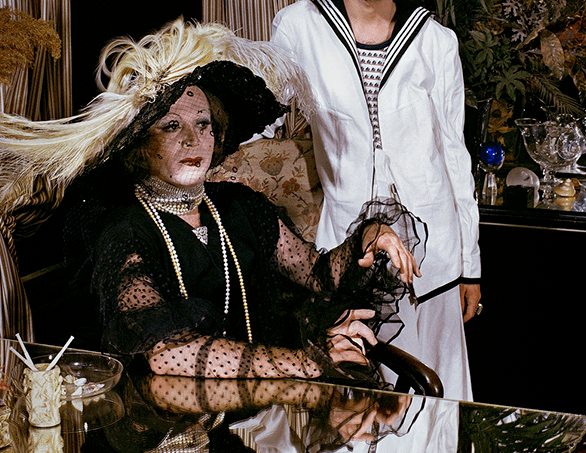
Prior to her appearance on Transparent in 2014, Del Lago’s last big acting job was in the TV show Wings in 1997. She’s also a costume designer, makeup artist and filmmaker.
Amanda Lepore
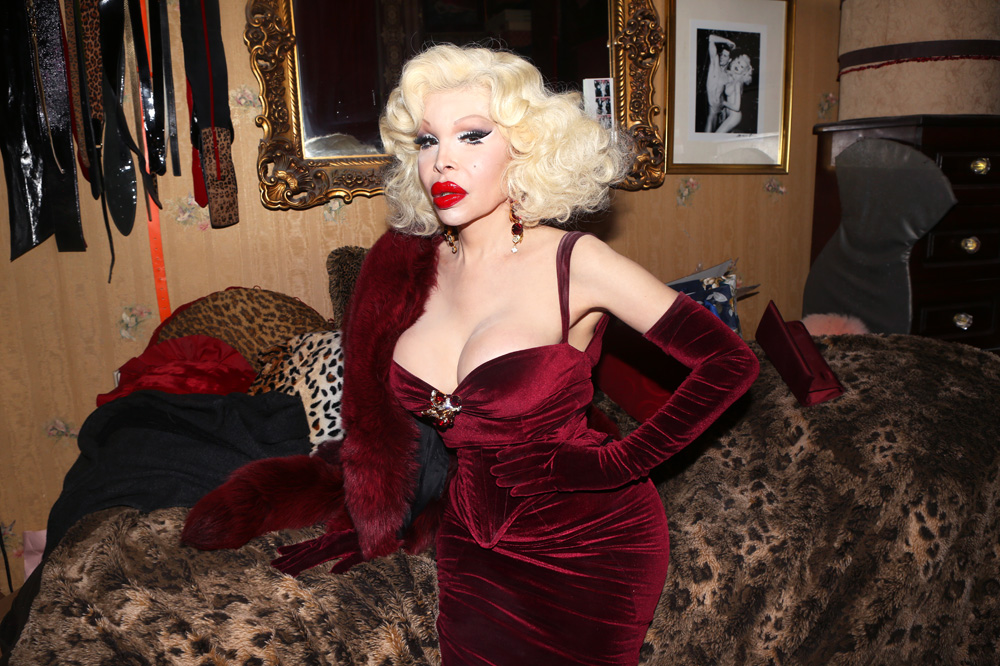
Amanda Lepore is a legend. She’s perhaps best known as a former Club Kid and the muse of photographer David LaChapelle. She’s also a singer, a performance artist, a model and an actress who appeared in movies like Another Gay Sequel: Gays Gone Wild!, Party Monster, Zoolander and Sex and the City.
Aneesh Sheth
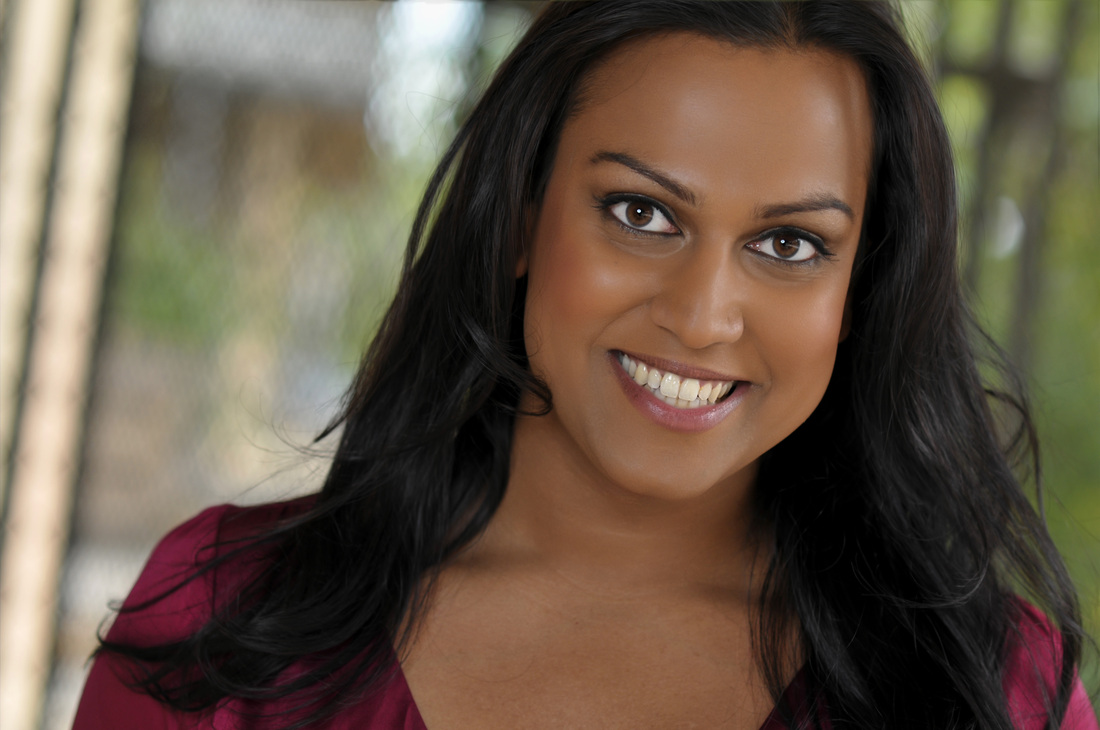
Sheth played Kami Sutra on the TV series Outsourced as well as appearing in several shorts, the TV series Crave, and the documentaries Blow Out, In the Life and Mores for Gays. She’s a singer with a BFA in Musical Theater who toured in many theaterical productions prior to coming out as trans. After coming out, she worked as a volunteer at The Trevor Project and has been active in theater, including a recent turn in the Public Theater’s production of Southern Comfort.
Angel Qinan
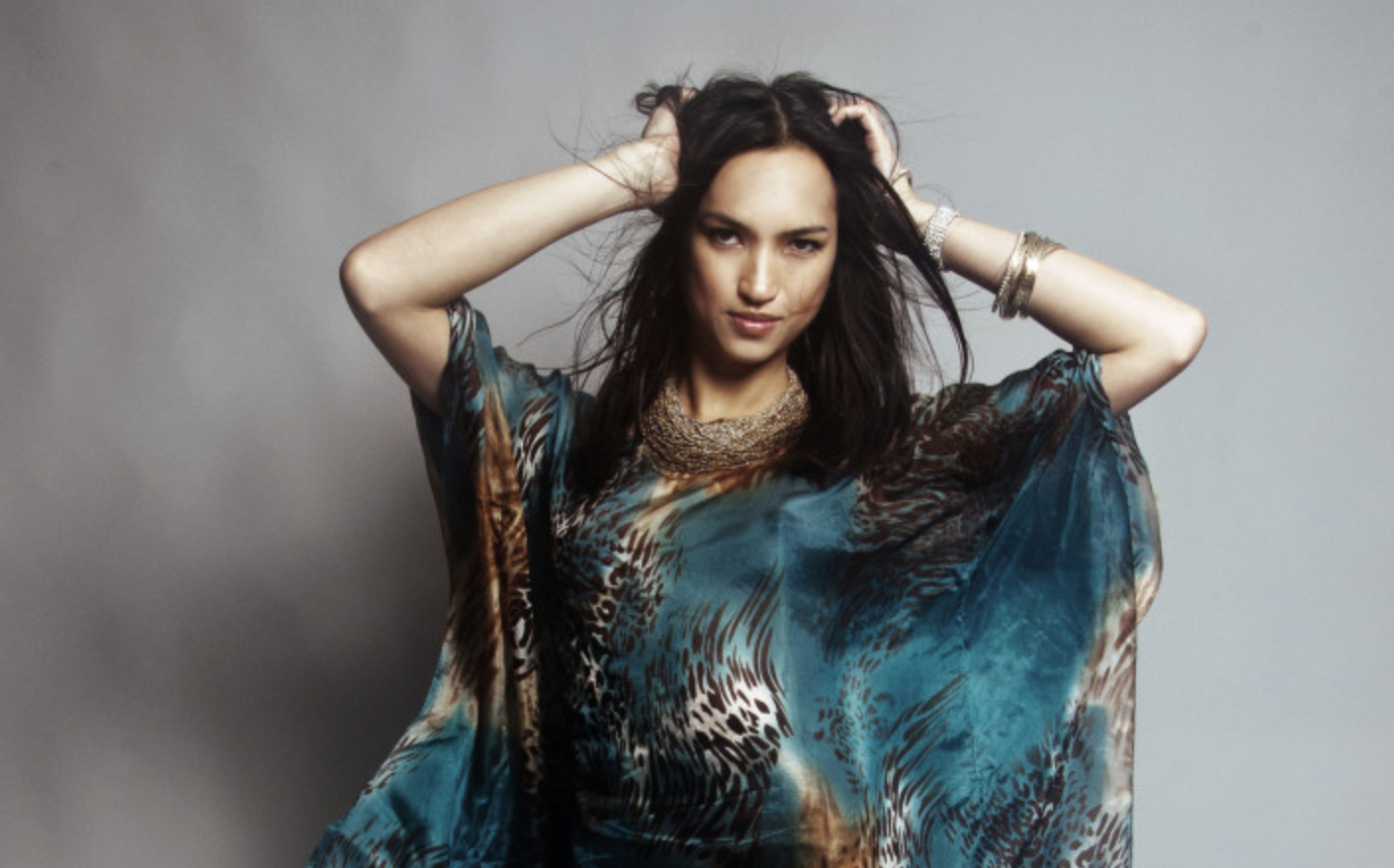
Photo Credit: © Jennifer Maria
Angel Qinan is a Filipina model and actress known for The Fosters,The Real O’Neals, Transparent, NCIS: Los Angeles, Crossing Fingers and Strut. She made her runway debut as the first transgender model in Sacramento Fashion Week and has since walked for New York Fashion Week and performs with the Trans Chorus Los Angeles.
Angelica Ross
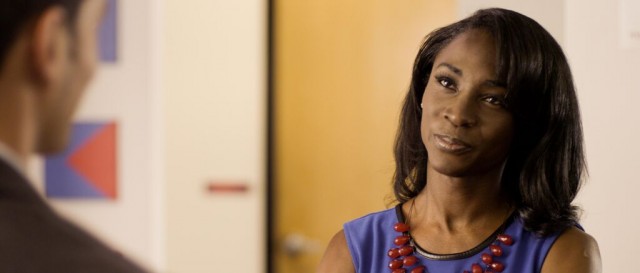
Angelica Ross in “Her Story”
Ross, an activist and the founder and CEO of anti-poverty program TransTech Social Enterprises, starred in Her Story and also has a recurring role on the upcoming female-fronted TNT comedy Claws, and did guest spots on Doubt and Danger & Eggs. She won a GLAAD Award in 2017 for an episode of The Daily Show with Trevor Noah and a 2016 Human Rights Campaign Visibility Award.
Annie Wallace
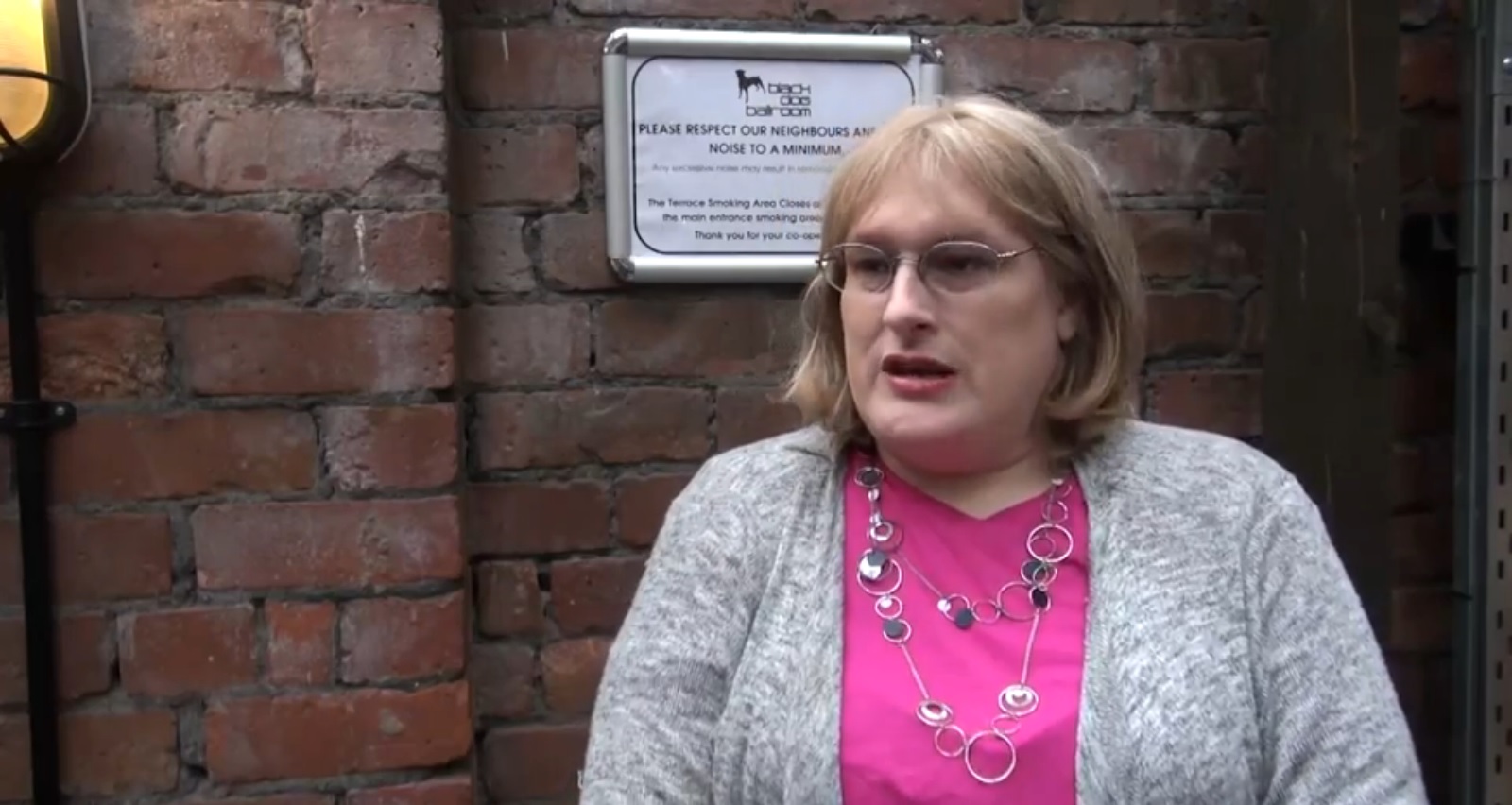
Wallace, a Scottish actress, made history in 2015 when she became the first transgender person to play a regular transgender character in a British Soap opera when she earned the role of Sally St. Claire in Hollyoaks. She’s also appeared in Shameless and Dream On, and is a composer.
Arisce Wanzer
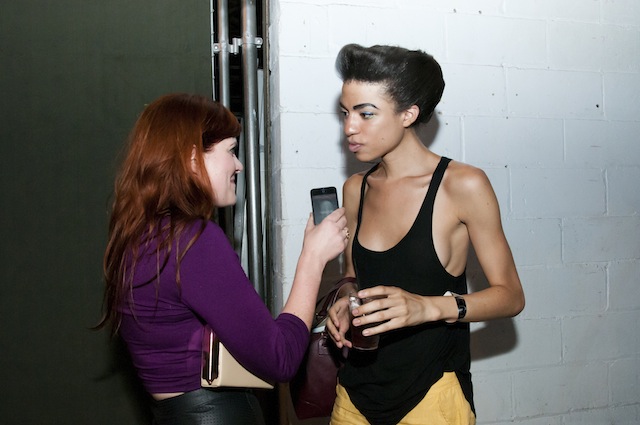
Autostraddle’s Lizz interviewing Wanzer at New York Fashion Week
A model best known for being featured on the Oxygen Reality TV show Strut, she also played Kristal in the TV series Cheetah in August as well as roles in several other Film/TV projects.
Bethany Black
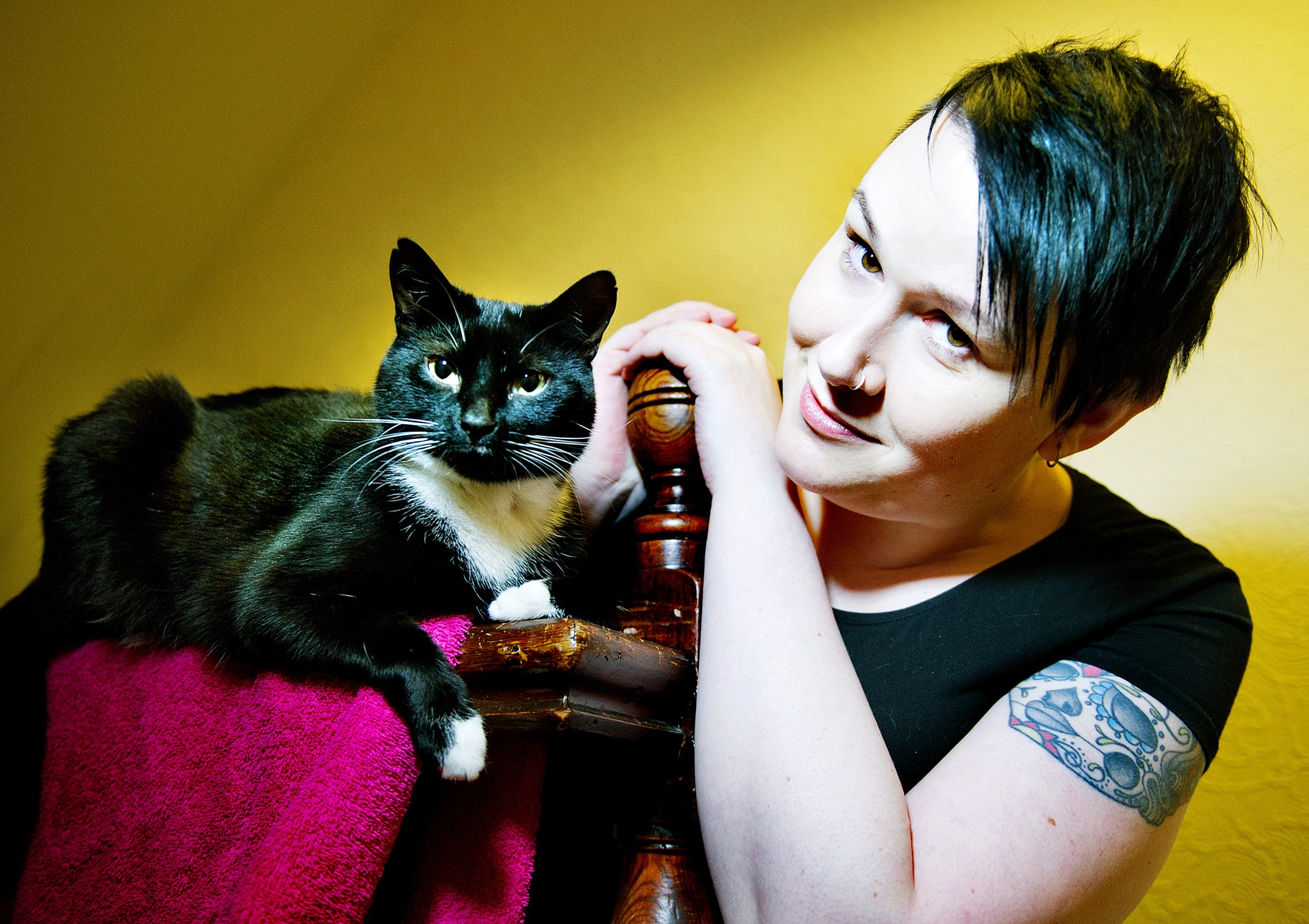
This British stand-up comedian played Helen in the TV series Cucumber/Banana and appeared in a 2015 episode of Doctor Who. She also played herself in the TV series documentary short Tofu. She describes herself as “Britain’s only goth, lesbian, transsexual comedian.”
Bianca Leigh
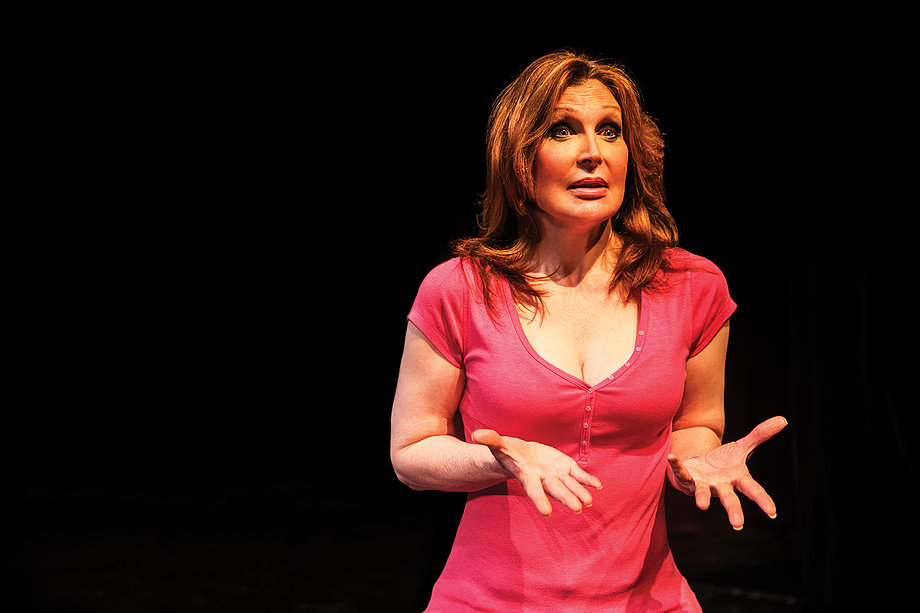
Bianca Leigh in “Trans Scripts”
Leigh made her film debut in 2015’s Transamerica, played Karma Johnstone in Hurricane Bianca, and had a guest spot on Law & Order: Special Victims Unit. She appeared onstage in the U.S. premiere of “Trans Scripts” this past January.
Bianca Von Krieg
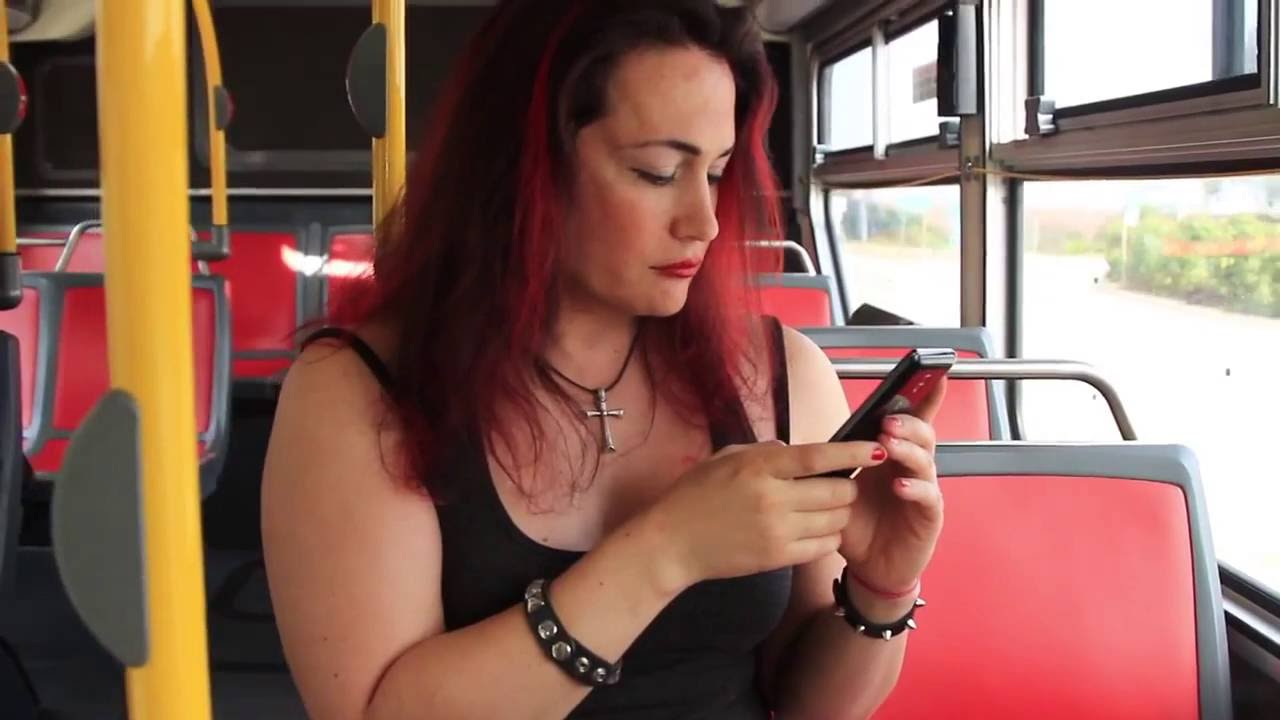
Bianca Von Krieg in the “Faces of Muni” Campaign
Bianca Von Krieg is an actual baroness with degrees from Stanford and MIT who has appeared in 2 Broke Girls, Murder in the First, Looking, Glee and several independent films.
Calpernia Adams
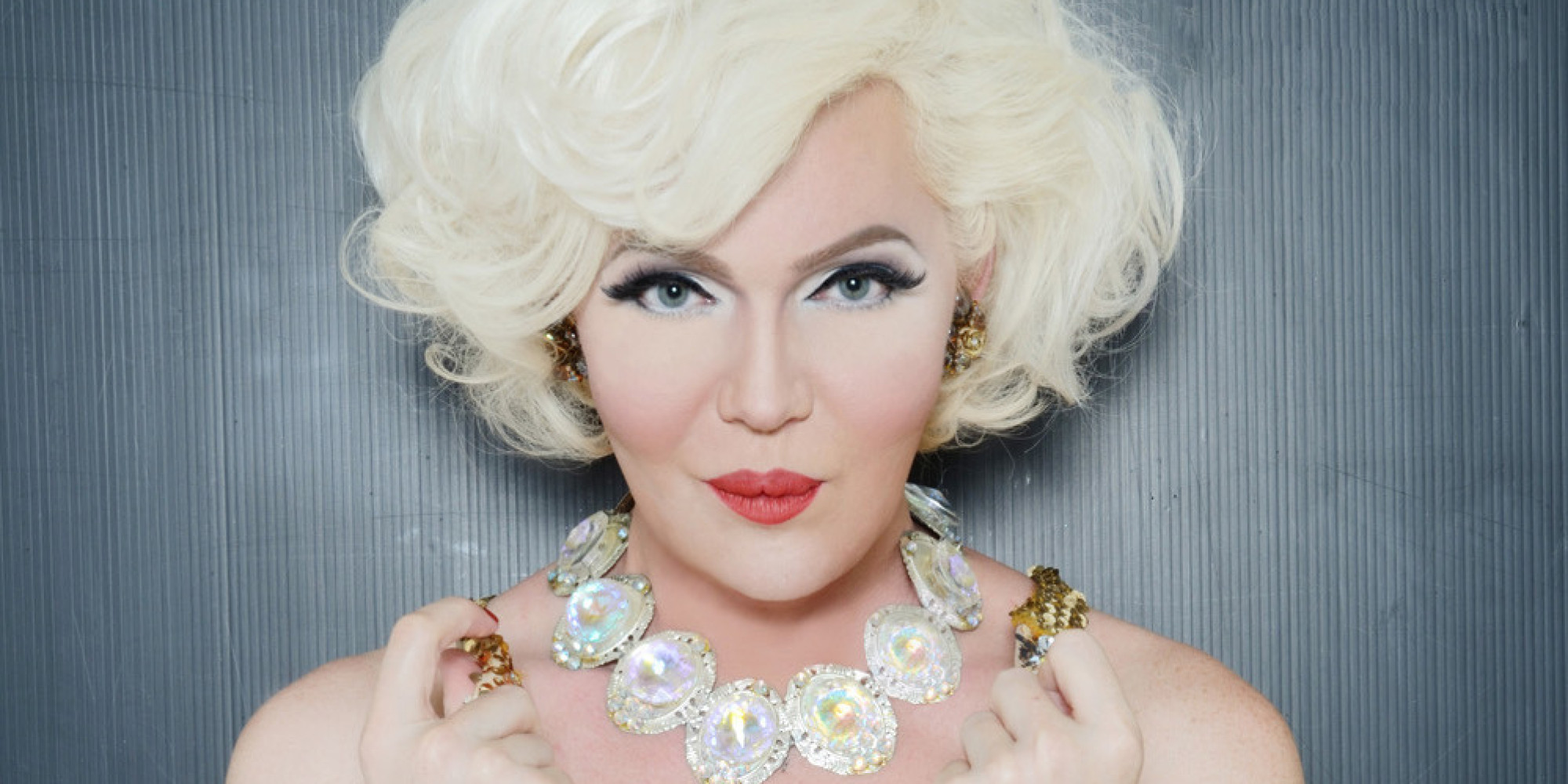
Actress, producer, editor, writer, director and activist Calpernia Adams has been in a lot of shorts and TV shows, like Hey Qween, In the Moment, Transproofed and Transamerica. Her production company, Deep Stealth, creates educational and entertainment material around gender-identification issues. She has also performed in all-transgender and mixed-status productions of The Vagina Monologues and was the lady-looking-for-love in the 2008 Logo TV series Transamerican Love Story.
Candis Cayne
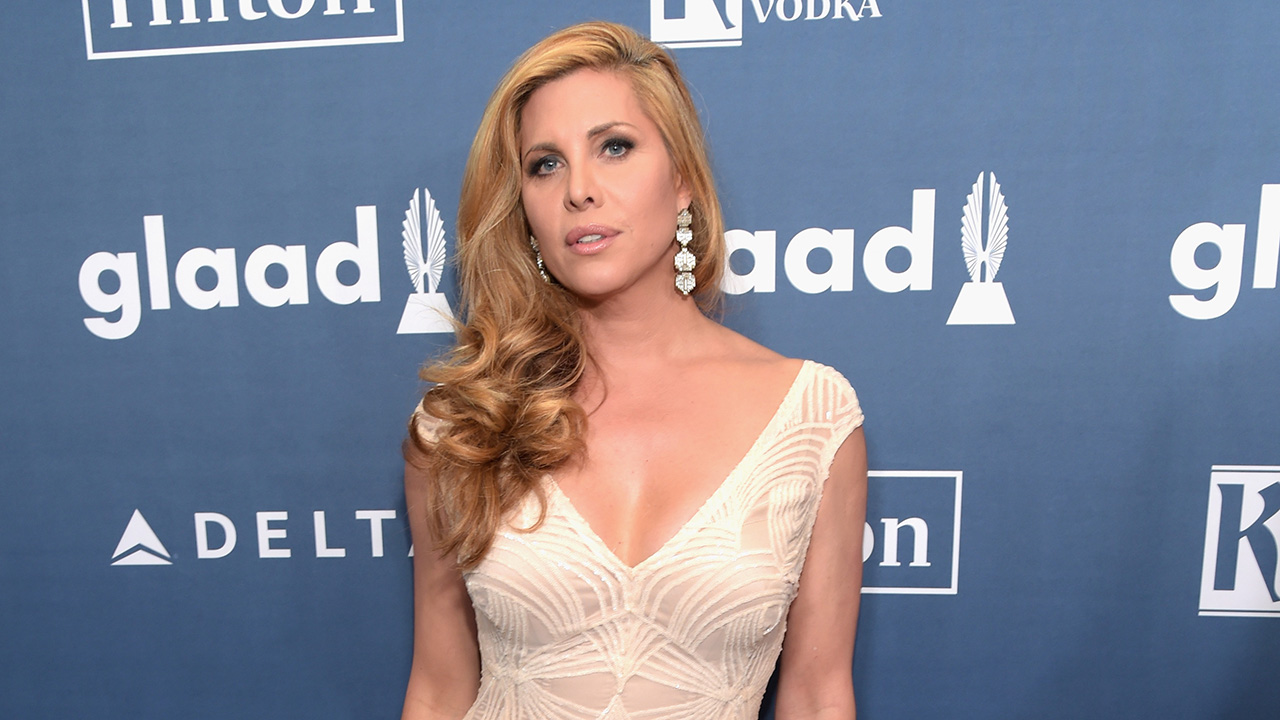
Actress Candis Cayne attends the 27th Annual GLAAD Media Awards
Cayne is one of the first actresses I ever interviewed on a red carpet and she was so incredible and nice and I will always love her for that. Also! In addition to being cool, she played Carmelita Rainer on the great but short-lived TV series Dirty Sexy Money, Alexis Stone on Nip/Tuck, Ms.Hudson on Elementary, and has shown up in a dozen or so other TV shows and various films AND also some reality TV shows, like I Am Cait, RuPaul’s Drag Race and Hey Qween.
Carlie Guevara
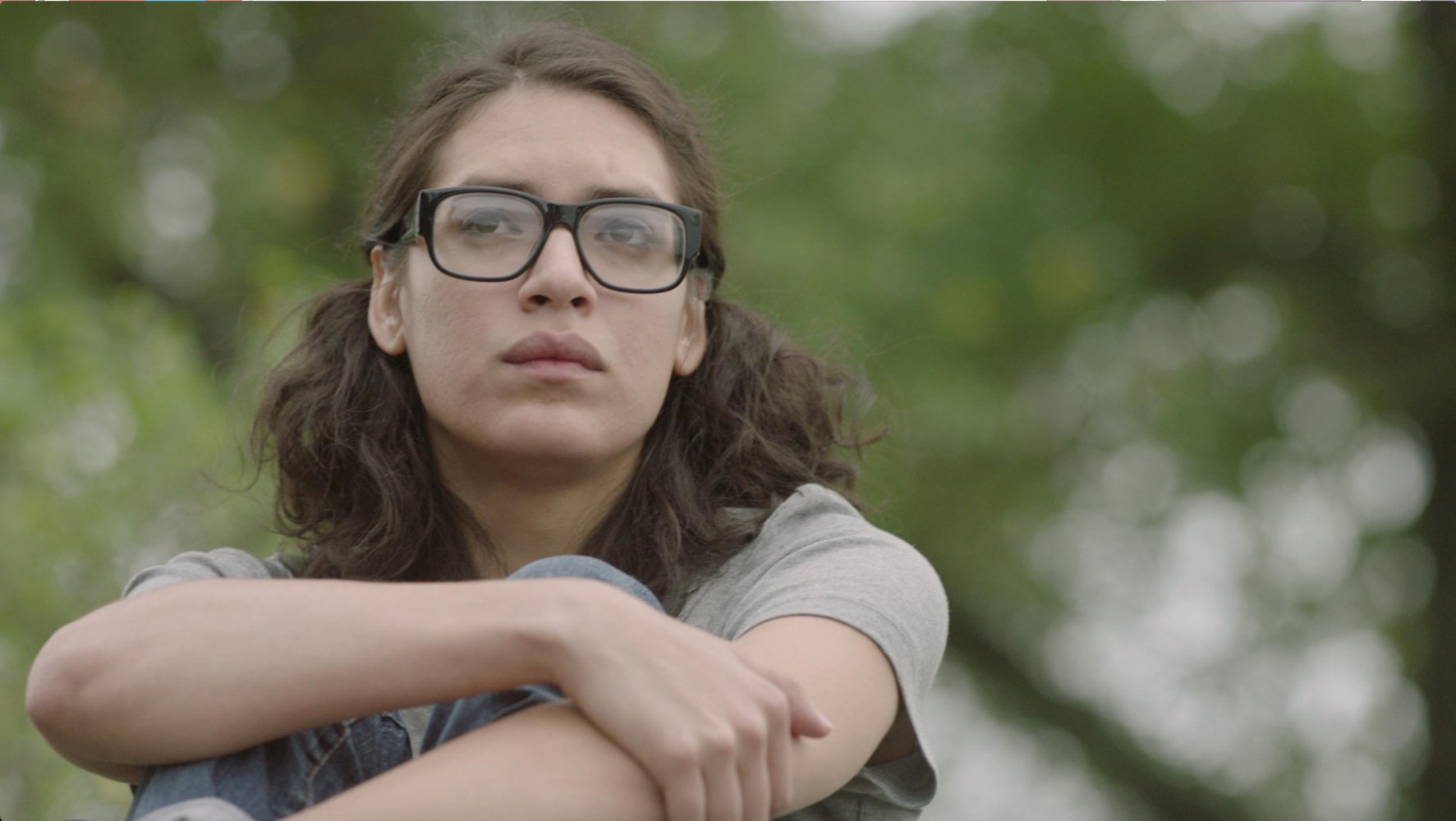
Carlie is making her film debut in the 2018 movie “The Garden Left Behind,” in which she plays Tina, an undocumented woman who emigrated from Mexico with her grandmother as a child and now want to stay and transition, while her grandmother longs to return. Carlie is also an artist/photographer.
Carmen Carrera
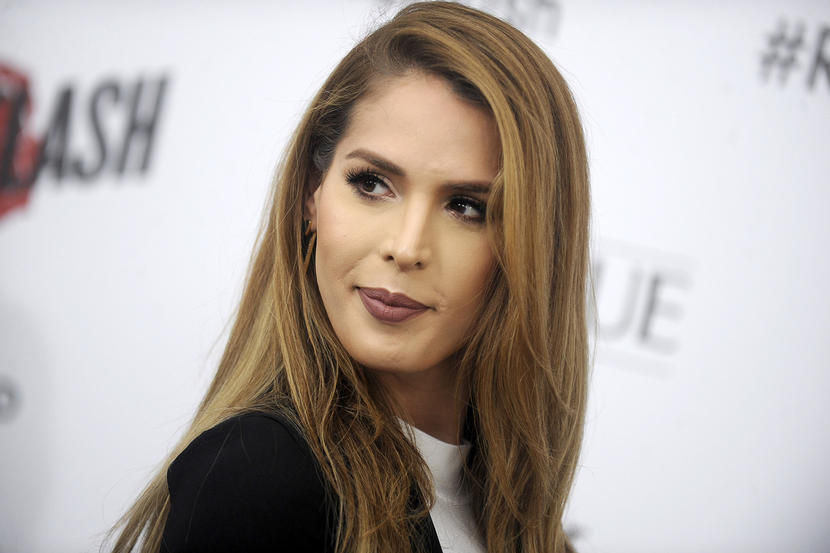
(Photo by: Dennis Van Tine/Geisler-Fotopres/picture-alliance/dpa/AP Images)
Model Carmen Carrera had a three-episode turn on The Bold and the Beautiful and appeared in the show Jane the Virgin as well as playing herself in RuPaul’s Drag Race, Cake Boss and Couples Therapy.
Caroline Cossey
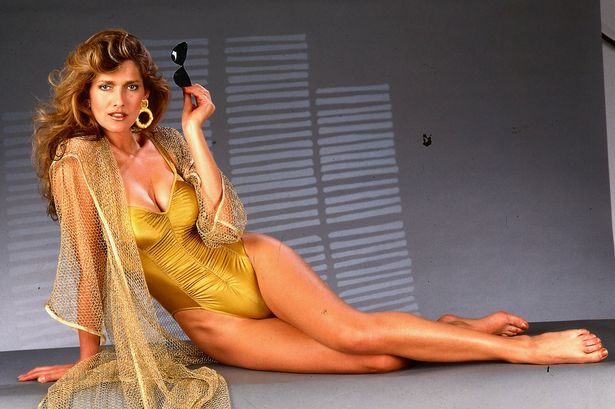
Cossey would’ve had a very different career if she’d been born in a different era — but, alas, her on-screen debut in the 1981 James Bond film For Your Eyes Only led Caroline, a very popular model who appeared on the cover of Vogue, to be outed as transgender. The ensuing press hounding thrust her into a deep depression. She appeared in the Duran Duran music video “Rio” in 1992, and in Power Station’s “Some Like it Hot” in 1986, and also was the first transgender woman to appear in Playboy. In the early ’90s she appeared on Donahue, The Joan Rivers Show, The Howard Stern Show and The Geraldo Rivera Show, and was in 2016’s The Trans List.
CeCe Suazo

CeCe appeared plays including the Off-Broadway production of “Incongruence” at the New York Theater Workshop and “Street Children” at the Vertigo Theater Company. She directed “A Month of Sundays” Off-Broadway and played the Senator’s Mistress on Adult Swim’s “Your Pretty Face Is Going To Hell.” She got her start as Cinna in the Los Angeles Shakespeare Company’s production of Julius Caesar.
Clair Farley
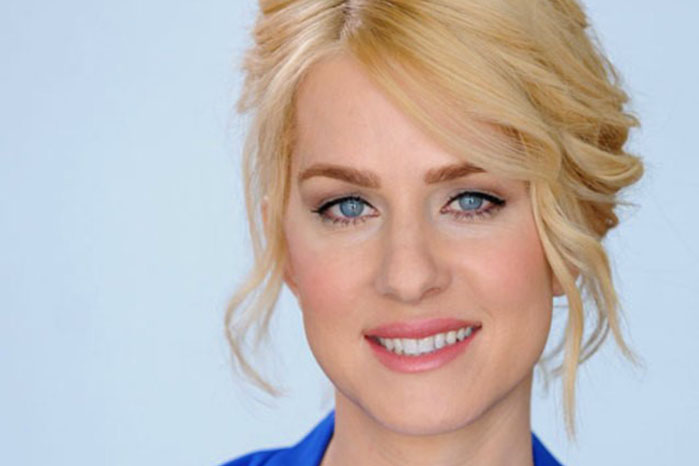
Farley is a community activist who has told her story in the documentaries Red Without Blue and American Transgender, as well as popping up in scripted shows Sense8 and When We Rise. Her husband, Jim, is also transgender.
Dina Nina Martinez
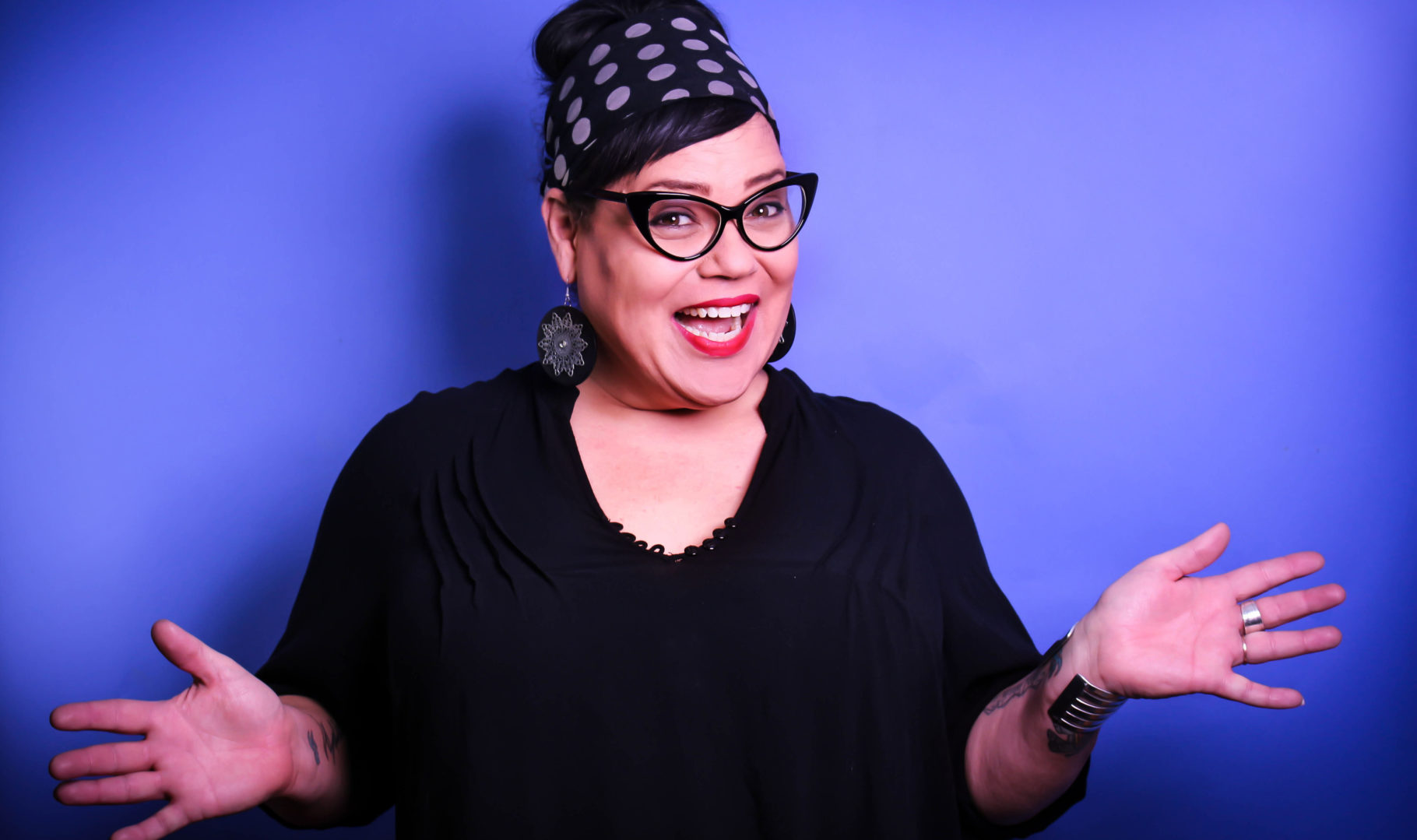
Dina Nina Martinez is a comedian who plated Delilah James in The Misadventures of Delilah James and a character named Dina Martinez in The Cavanaughs. She’s done stand-up at venues including LA’s The Comedy Store, the Madison queer comedy show Alphabet Soup, LA Pride, and The Chicago Women’s Funny Festival.
Eden Lane

As America’s first out transgender television reporter, Lane has hosted/produced/reported segments and shows for outlets including PBS affiliates, CNN Tonight, ET and Huffington Post. Lane got her start in the theater, and returned to the stage this year for a production of “Trans Scripts.”
Eve Lindley
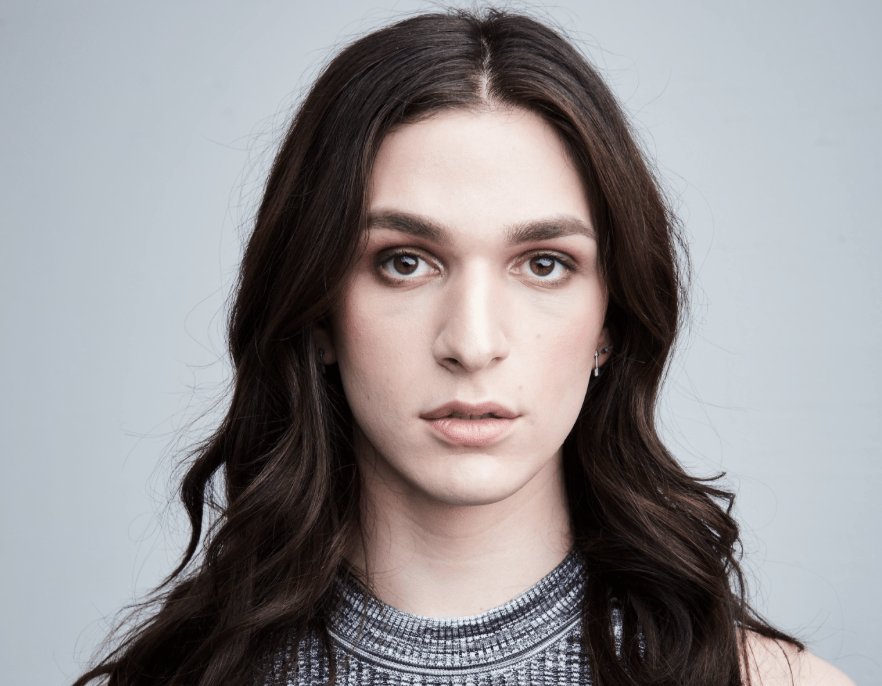
Eve Lindley at The Tribeca Film Festival via Teen Vogue
Eve Lindley plays Sylvia Rivera in the short film Happy Birthday, Marsha! and had recurring roles as Frida in the TV series Outsiders, Hot Carla in Mr. Robot and trans female character Peter Pam in the film “All We Had” with Katie Holmes.
Erika Ervin
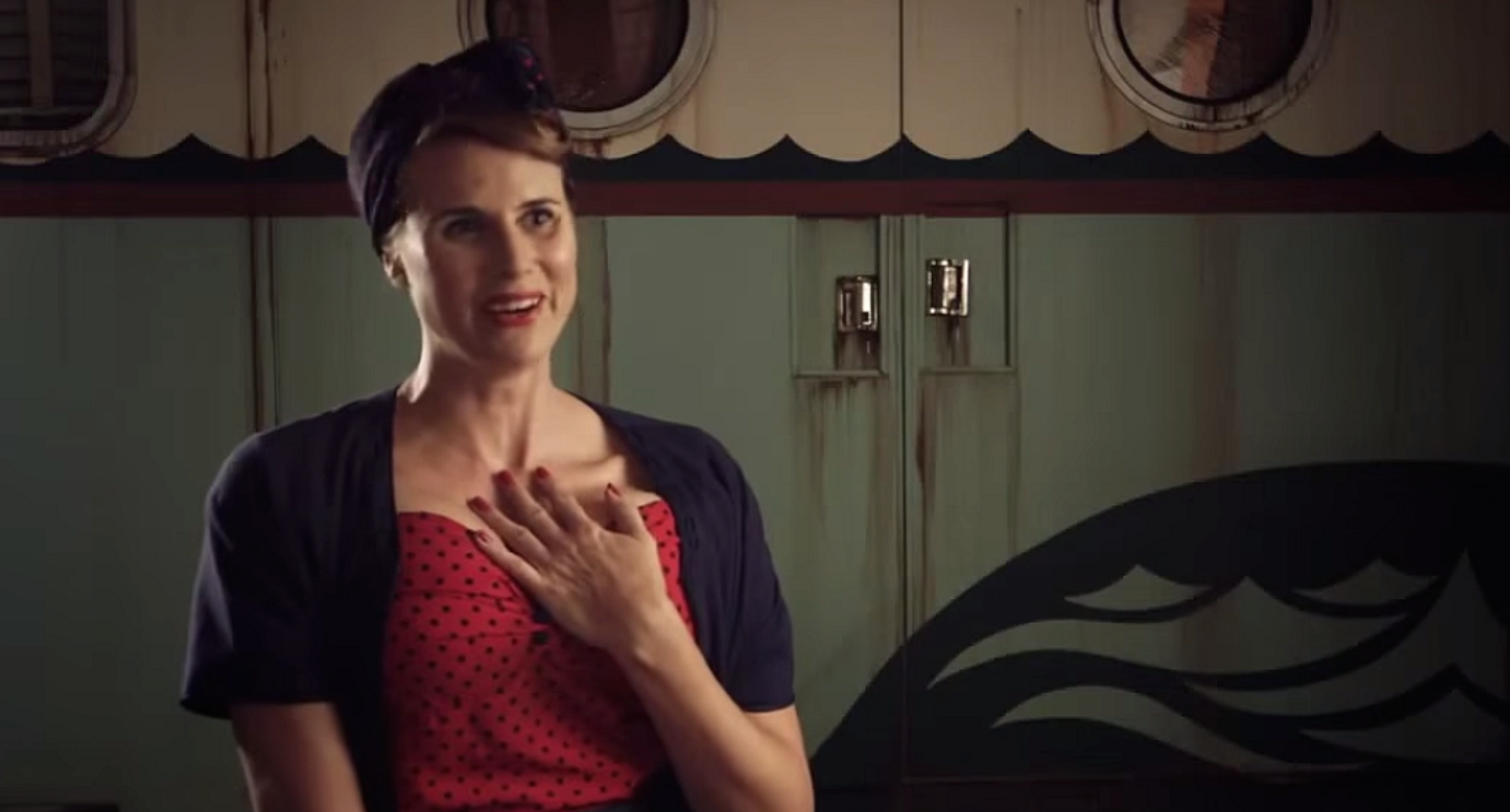
Erika Ervin in “American Horror Story”
Ervin, who often goes by the name “Amazon Eve,” earned a spot in the Guinness Book of World Records in 2011 for being the world’s tallest model (she’s 6’8!). She’s appeared in the television shows Hemlock Grove and American Horror Story: Freak Show.
Gigi Gorgeous
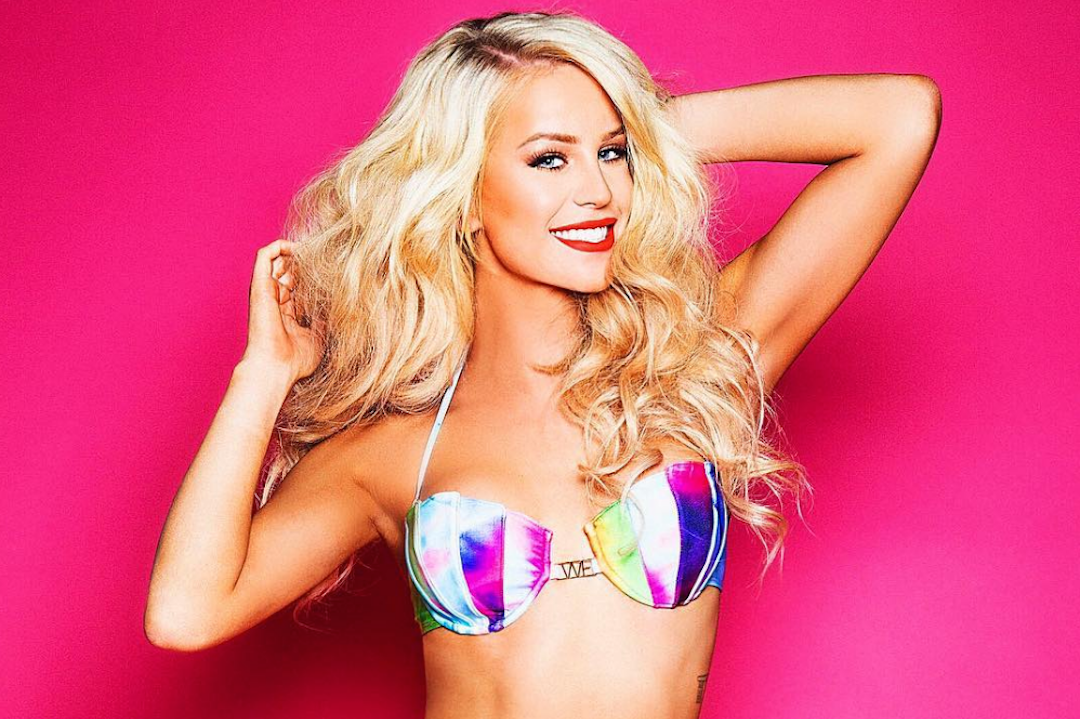
Gigi Lazzarato tends to play herself when she’s onscreen, which is a lot — like in her feature length documentary, This is Everything: Gigi Gorgeous. But she’s also appeared on the YouTube TV series Me and My Grandma and Nightcap.
Hari Nef
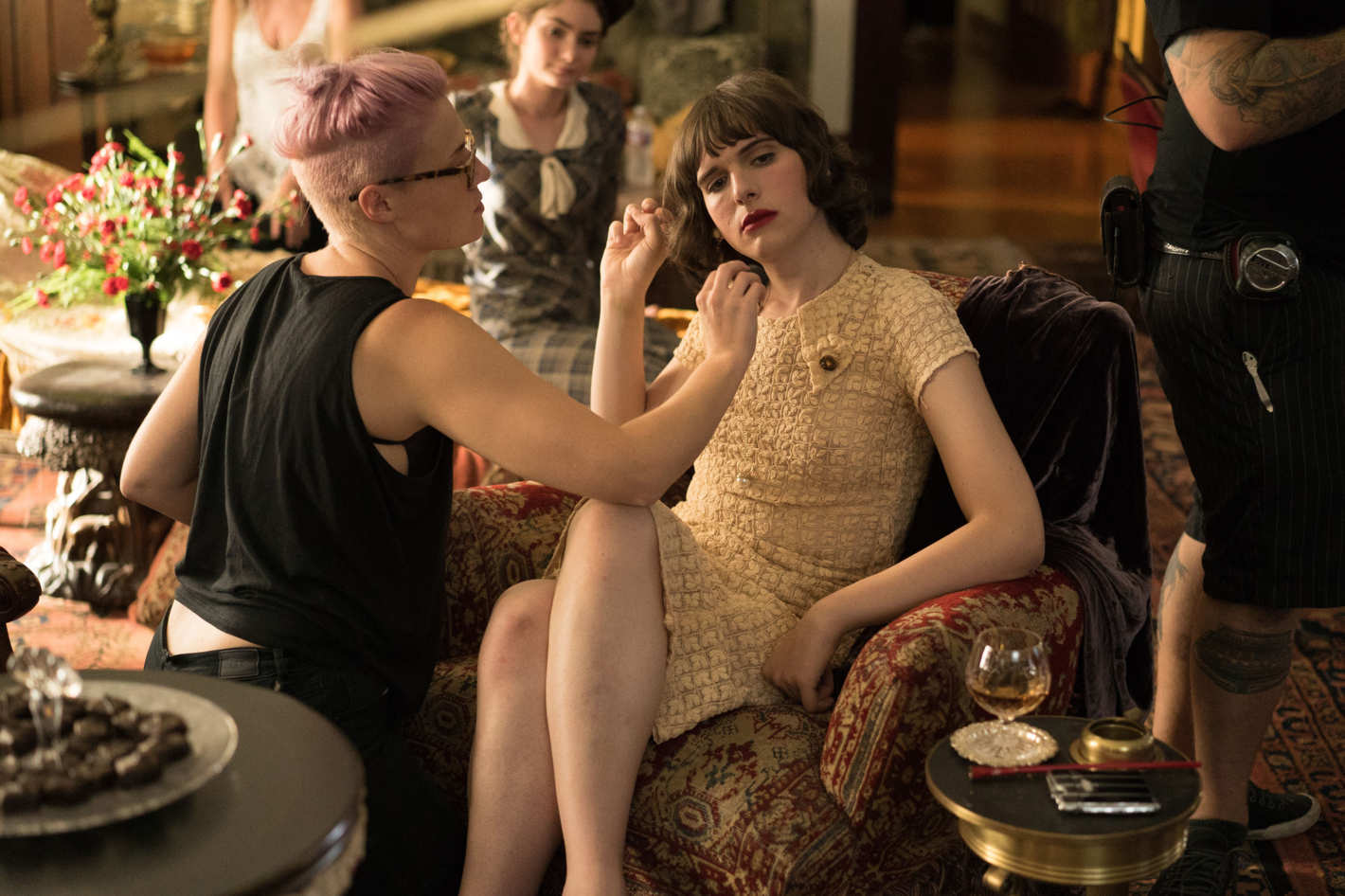
Hari Nef in “Transparent”
Nef’s career as an actress and model has really taken off the past few years. She played Gittel in Transparent and Bex in Assassination Nation, was the first openly transgender model signed to IMG Models, walked the New York Fashion Week runway, appeared on the cover of Elle Magazine, in commercials for L’Oreal Paris True Match and is a spokesmodel for Everlane’s 100% Human Campaign.
Harmony Santana
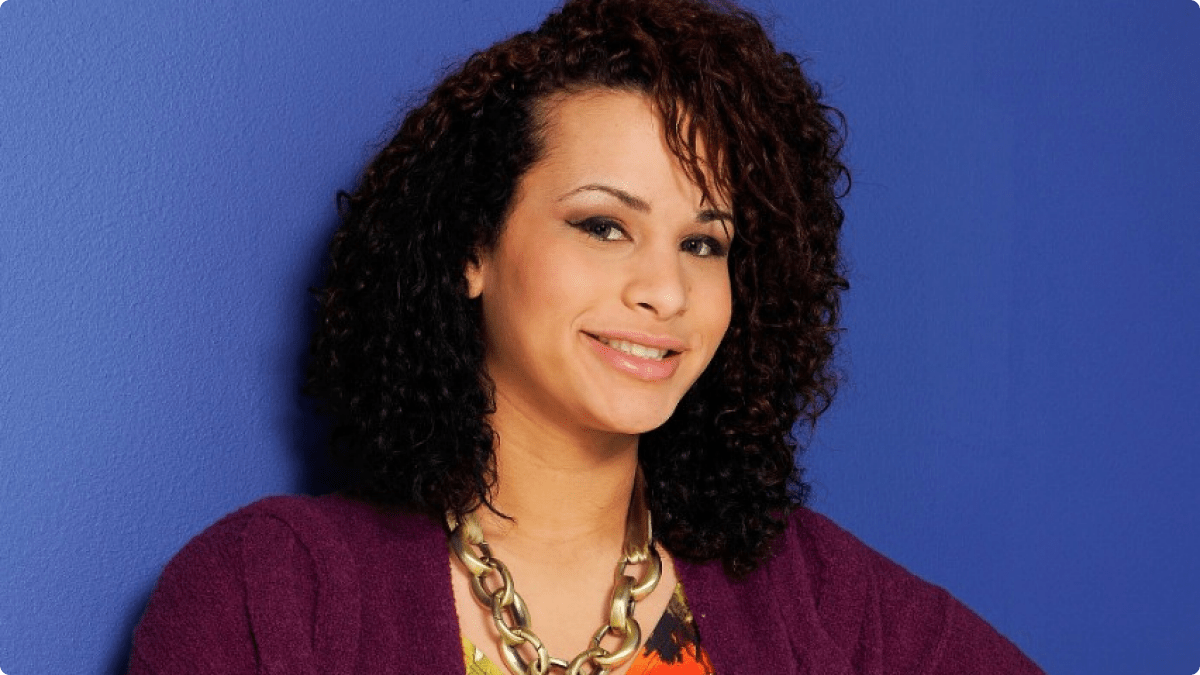
In 2011, Santana became the first openly transgender actress to be nominated for a major film acting award in the United States when she appeared in Gun Hill Road. She’s also appeared in two Eating Out films and the TV series Futurestates as well as Transparent.
Isley Reust
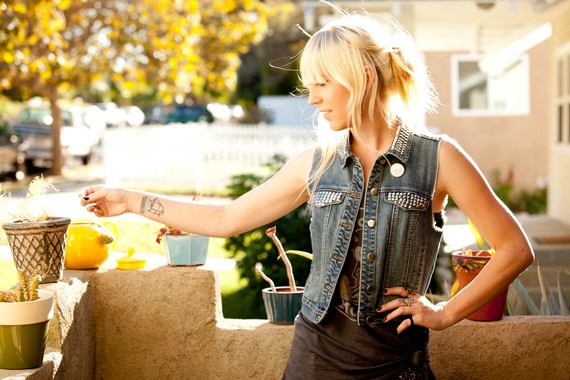
photo by Joseph Viles for The Huffington Post
Reust, a musician, actress & producer, appeared in Glee‘s transgender choir, and also in the TV shows Chasing Life and Faking It and movies like And Then There Was Eve and Mothers and Daughters. She was a composer for two episodes of Her Story and her band is called Spectacular Spectacular!
Ivory Aquino
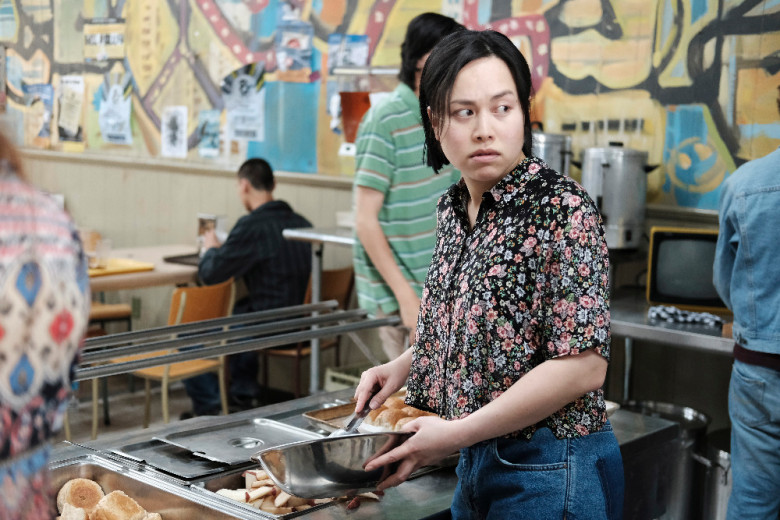
Ivory Aquino in “When We Rise”
Prior to her role as legendary transgender activist Cecelia Chung in the ABC miniseries When We Rise, Aquino spent ten years in theater. She came out as trans before her network television debut on the Dustin Lance Black miniseries.
Jamie Clayton
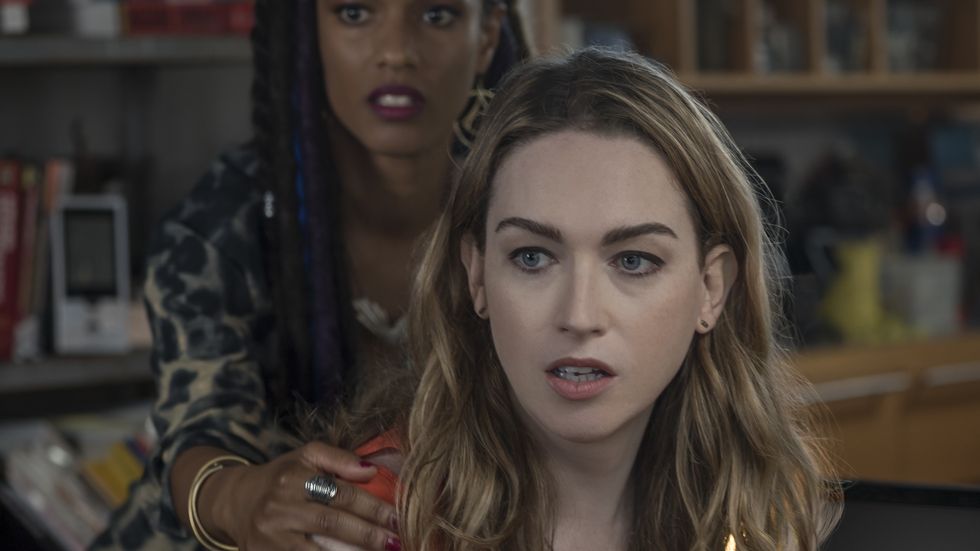
Jamie Clayton in “Sense8”
Before playing lead ensemble character on the 2-season Netflix show Sense8, model/actress Clayton appeared in The Neon Demon, Hung and Dirty Work. She got her start on a 2010 Vh1 Reality Show, Transform Me, which was co-hosted by Laverne Cox and Nina Poon.
Jazzmun Nichcala Crayton
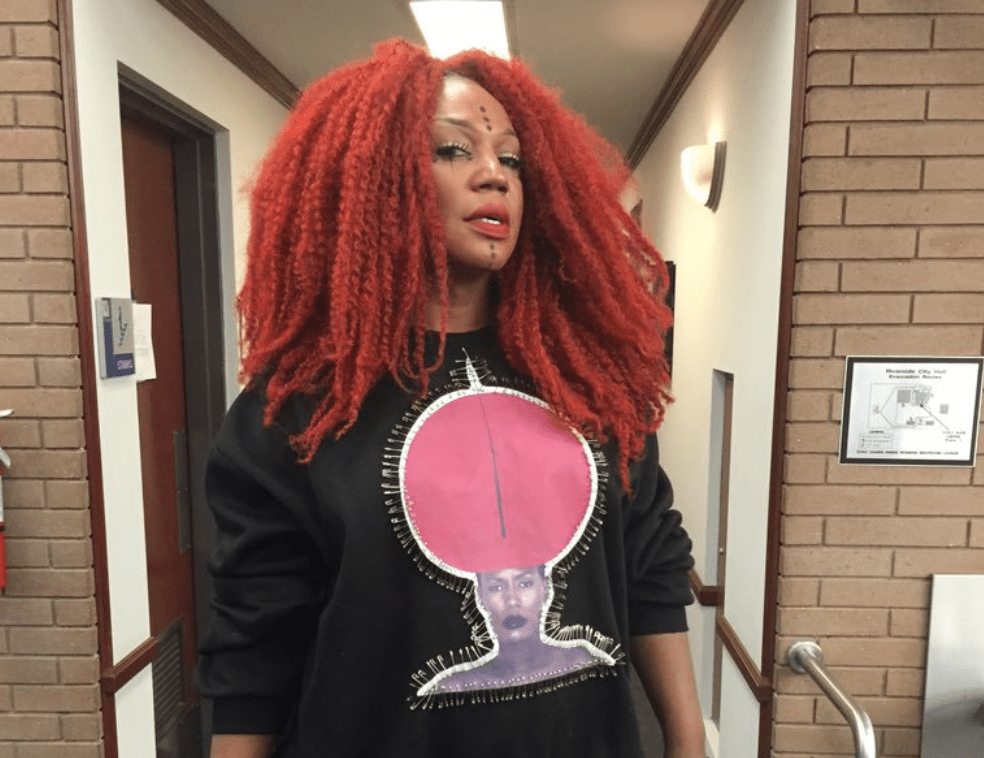
Jazzmun’s career began with her appearance on the 1984 variety show Putitn’ on the Hits. From there, she performed onstage all over Los Angeles, playing her stage character Jazzmun, Whitney Houston and Diana Ross, eventually catching the eye of Gloria Estefan, who cast her in the “Everlasting Love” music video. RuPaul did the same. Her television resume includes Desperate Houswives, CSI: NY, Nip/Tuck, The Shield, ER, The Closer, NYPD Blue, Sons of Anarchy and Gilmore Girls. She played Bobbi Jean Baker in When We Rise.
Jen Richards

Jen Richards in “Her Story”
Richards is the writer and star of the trans mini-series Her Story, and has also appeared on Nashville and Doubt. The advocate and consultant also appeared as herself on shows like I Am Cait and AOL’s True Trans with Laura Jane Grace, and writes for NewNowNext. She is the writer and creator of We Happy Trans.
Jessica Crockett
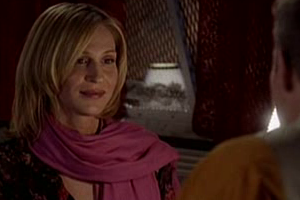
Crockett was the first-ever trans actress to play a trans woman on American television when she played a lesbian who went on one date with Original Cindy on an episode of Dark Angel.
Kitana Kiki Rodriguez
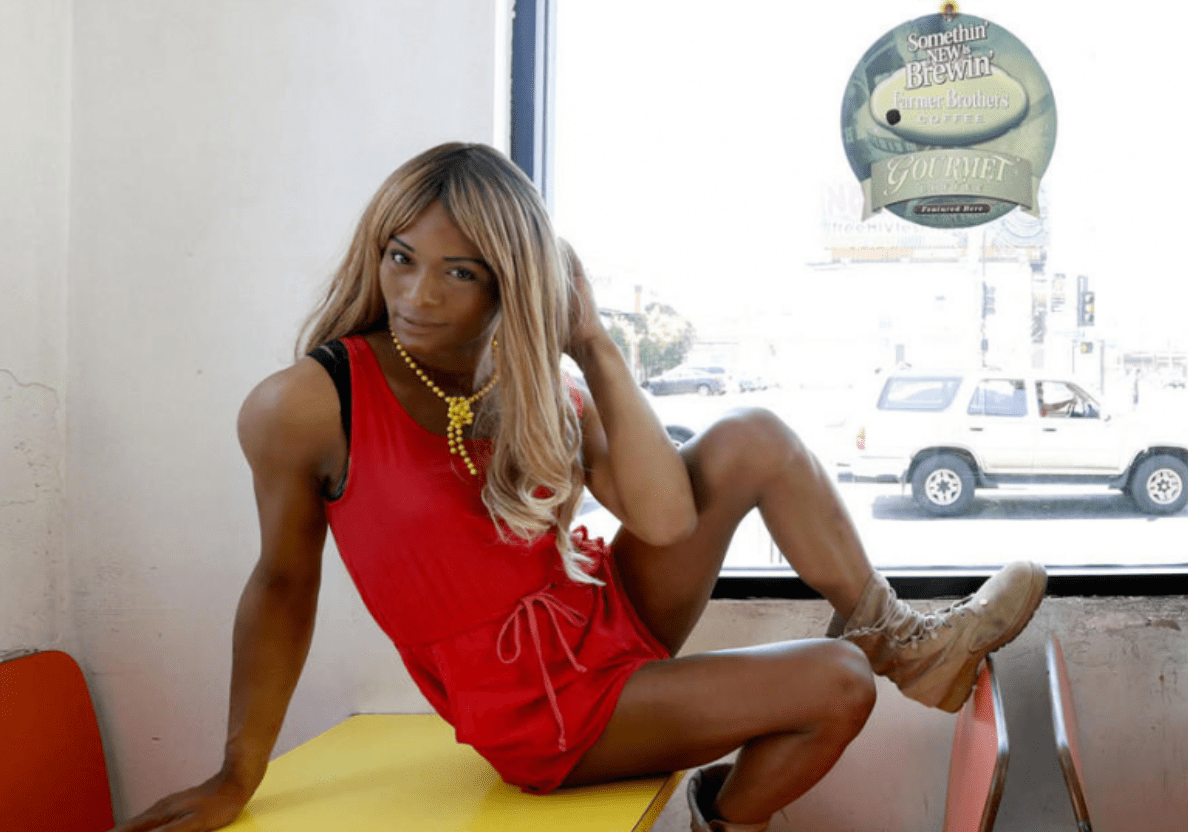
Rodriguez played Cin-dee in the acclaimed independent film Tangerine.
Kita Updike
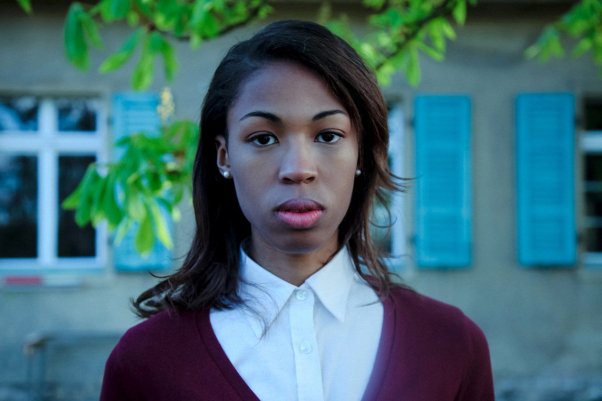
Updike, an accomplished model, will make her film debut this year in the Bruce LaBruce indie The Misandrists, and has appeared onstage in Ireland as well as in her home state of Indiana.
Kristen Parker Lovell
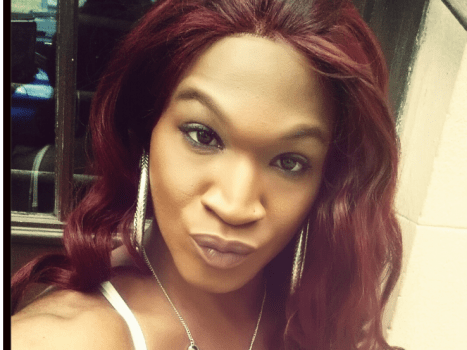
Lovell is an activist, artist, producer and actress known for her roles in the upcoming film The Garden Left Behind and her appearance in Happy Birthday Marsha! She was honored in the 2015 Trans List for her vigorous work carrying on Sylvia Rivera’s legacy by supporting transient young people. In 2011, she produced a documentary about trans representation in the media.
Lady Dane Figueroa Edidi
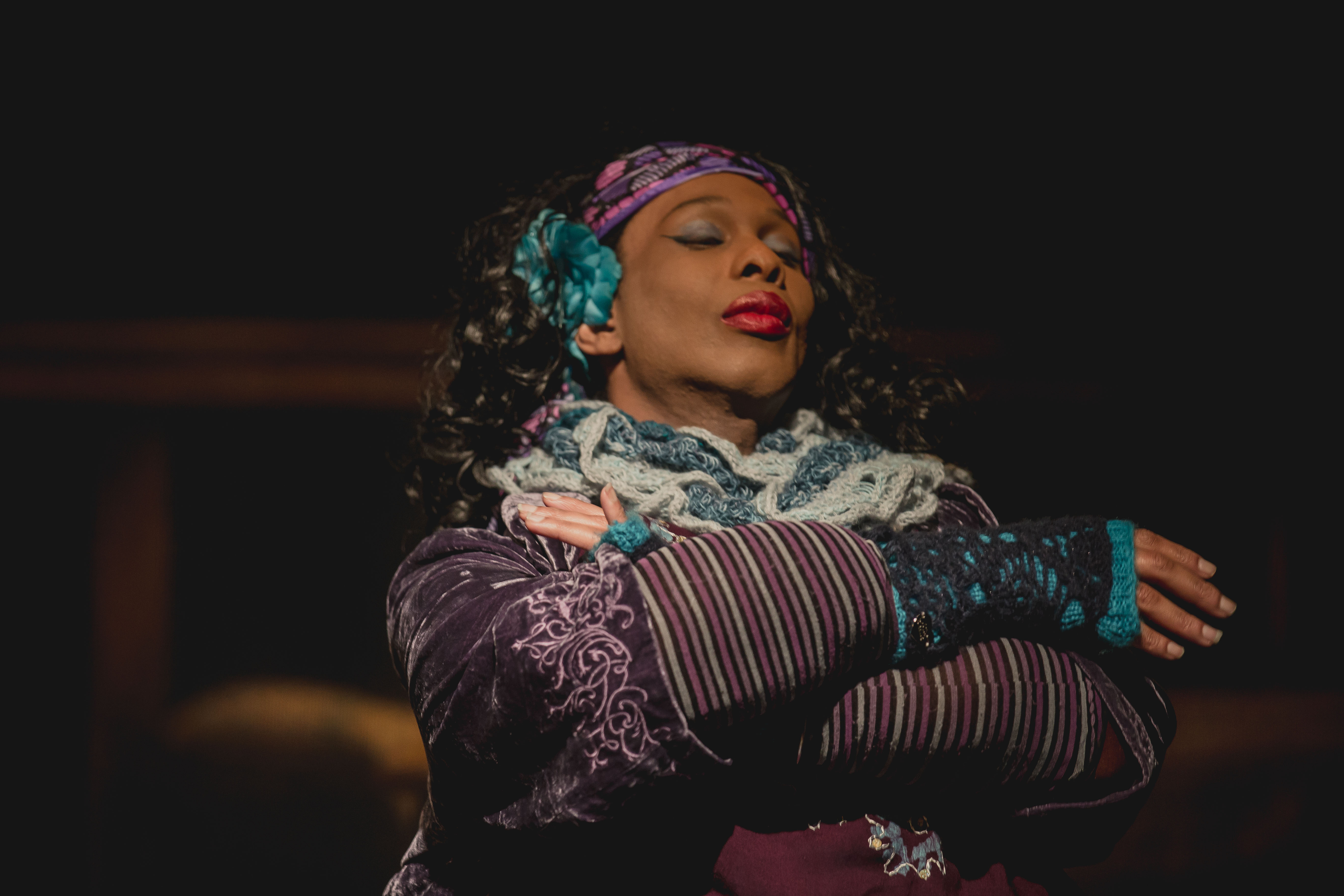
Lady Dane Figueroa Edidi in ‘Last of Wyos.’ Photo by K-Town Studio via DC Metro Arts
Lady Dane is an actor, singer, performance artist, dancer and writer who has been putting together her own cabaret shows since she was a teenager and debuted at Don’t Tell Mamas in 2011. She’s worked for a number of theater troupes and starred in her one-woman show “Klytmnestra” at the SpookyAction Theater. In 2015, she became the first Trans playwright to have her work showcased in the Theater Alliance’s Hot House New Play Reading Series.
Laverne Cox
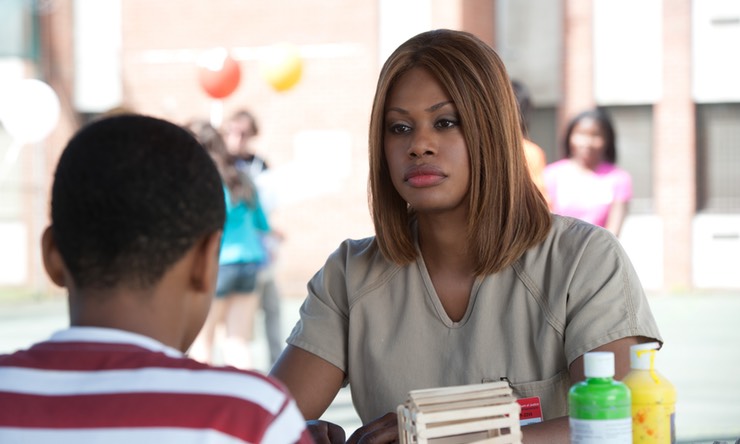
Laverne Cox plays Sophia Bursett on the Netflix series Orange is the New Black and was a series regular on Doubt, a short-lived legal drama. She’s also guested on numerous TV programs, including Bored to Death, Law & Order, Law & Order:Special Victims Unit, Faking It and The Girlfriend’s Guide to Divorce. She starred as Dr. Frank-n-Further on The Rocky Horror Picture Show Live! and had prominent roles in independent films like Grandma (starring Lily Tomlin) and Musical Chairs.
Michelle Hendley
Hendly was a cosmetology student with her own YouTube channel when she was recruited to star as a bisexual trans woman in the 2014 romantic comedy Boy Meets Girl. In 2016, she appeared in an episode of Crazy Ex-Girlfriend.
Mizz June / Julienne Brown

Mizz June is a musician and actress who has appeared in All My Children and the new pilot Vin & June. She recently starred in the The Movement Theater Company’s production of “And She Would Stand Like This.”
Mya Taylor
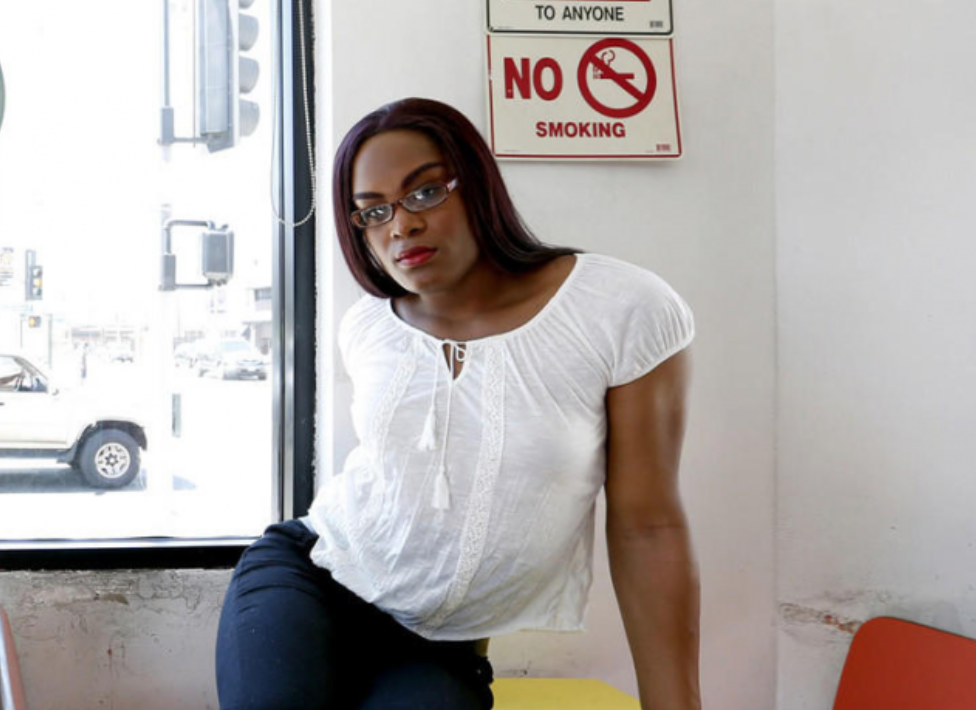
Mya Taylor’s only film credit prior to co-starring in Tangerine was a spot on the TV series Hollywood Wasteland, but now she’s racking ’em up! She has since appeared as Diane in Diane from the Moon and Marsha P Johnson in Happy Birthday, Marsha! She also stars in Myra, a film about a transgender sex worker in an unwanted love triangle, set to debut in 2018.
Nicole Amber Maines
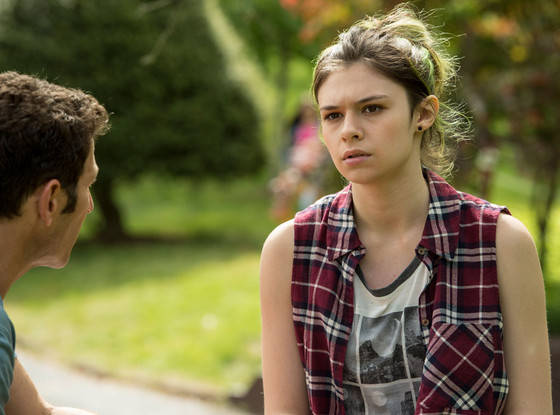
Nicole in “Royal Pains”
Mains did a guest spot on Royal Pains in one of the least problematic transgender television episodes of all time. She also was “Susan Doe” in Doe v. Clenchy, a landmark case in which her parents sued her school district for her right to use a female restroom. She’s currently in art school in Maine.
Marlo Bernier
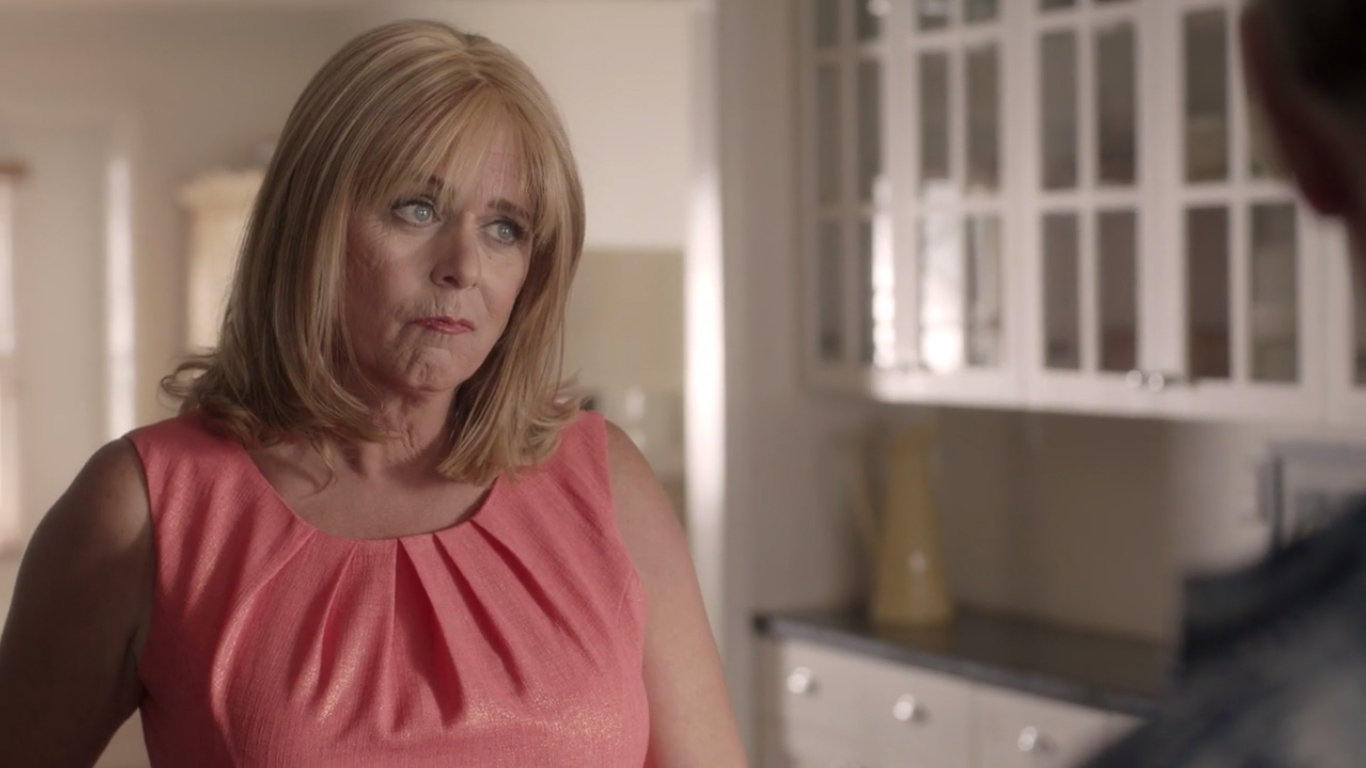
Marlo Bernier in “Myrna”
Bernier began her acting career before coming out as trans, with roles including Roy Cohn in a Baltimore production of Angels in America and John/James in Love! Valour! Compassion! She’s also guested on shows like Cold Case, Alias, Homicide and Las Vegas. She wrote, produced and starred as Myrna Michaels in the TV Movie Myrna in 2014, and in the America Repertory Theater’s production of “Trans Scripts.”
MJ Rodriguez
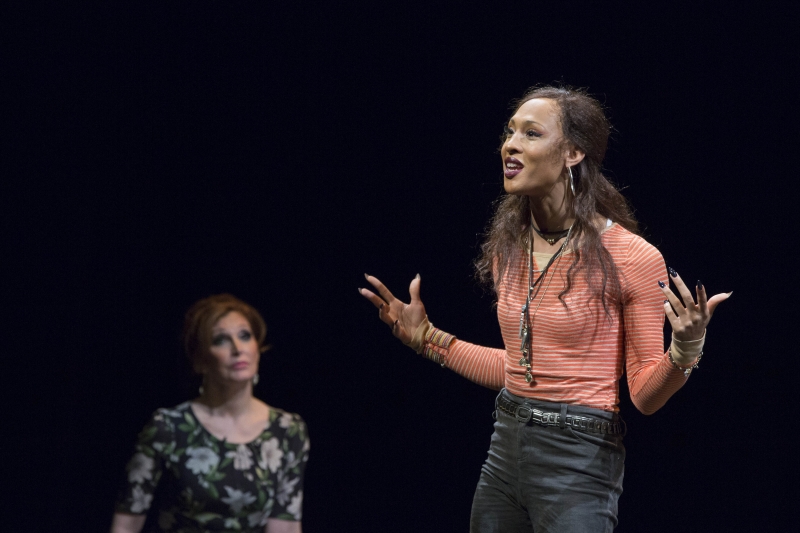
MJ Rodriguez in “Trans Scripts”
Rodriguez played Angel in the 2011 Off-Broadway revival of Rent, of which she told Playbill, “It wasn’t like being a character. I was in character, of course, but I was also living me and telling my story through Angel.” She made her television debut in Nurse Jackie, went on to guest in The Carrie Diaries, [Blank] My Life and Luke Cage and appear onstage in “Trans Scripts.” She was nominated for an acting award at the Tribeca Film Festival for her role as Ebony in “Saturday Church.”
Our Lady J
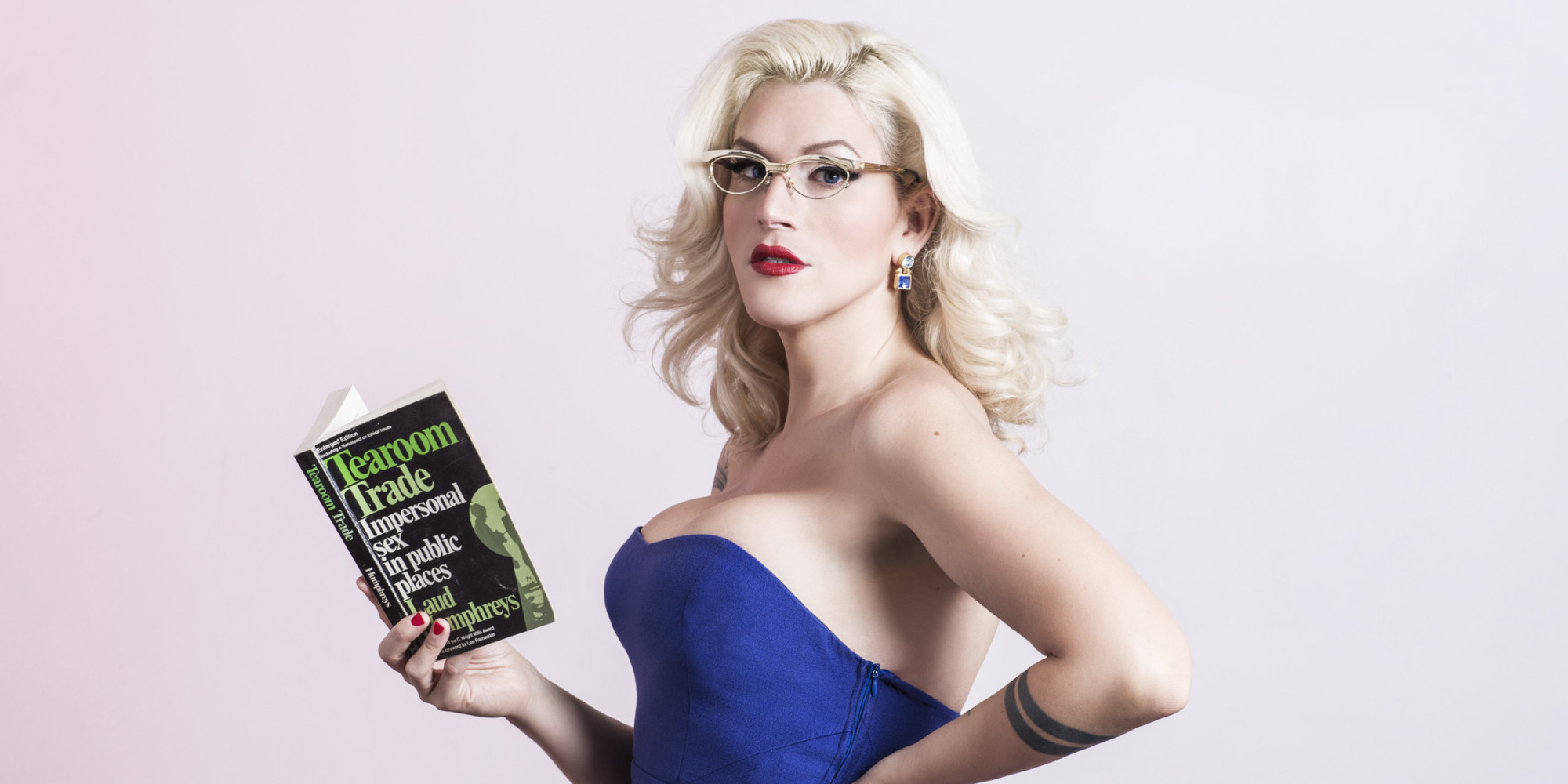
Our Lady J became the first trans woman writing for Transparent, and also appeared in a few episodes in 2015 as “Yorna.” She’s a singer/songwriter who has collaborated with Sia and Lady Gaga and was the first openly trans woman to perform at Carnegie Hall.
Patti Harrison
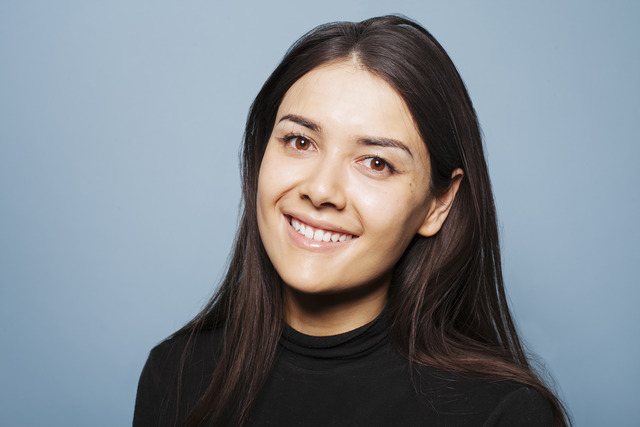
Harrison is a comedian who dropped out of Ohio University and moved to New York to live the dream, where she’s quickly made a name for herself doing live shows and appearing in videos for Seriously TV. She appeared with Patti Harrison on 5 Transgender Tropes That Need To Stop.
Pooya Mohseni

Pooya is an Iranian-American actress who has appeared in a whopping 22 short films, nine TV series and ten movies. The most recognizable credits on her resume were spots on USA’s Falling Water and the CBS series Madam Secretary.
Rachel Crowl
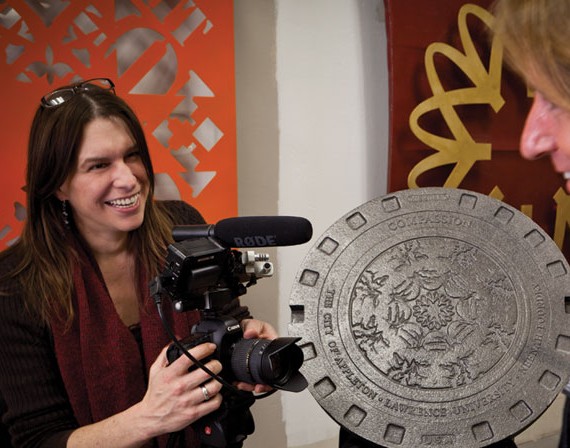
Rachel Crowl serving as Web Content and New Media Coordinator for Lawrence University
Crowl’s career began in the New York Theater scene, where she played Henry in an Off-Broadway production of Henry V. She’s making her screen debut this year in the indie film And Then There Was Eve.
Rain Valdez
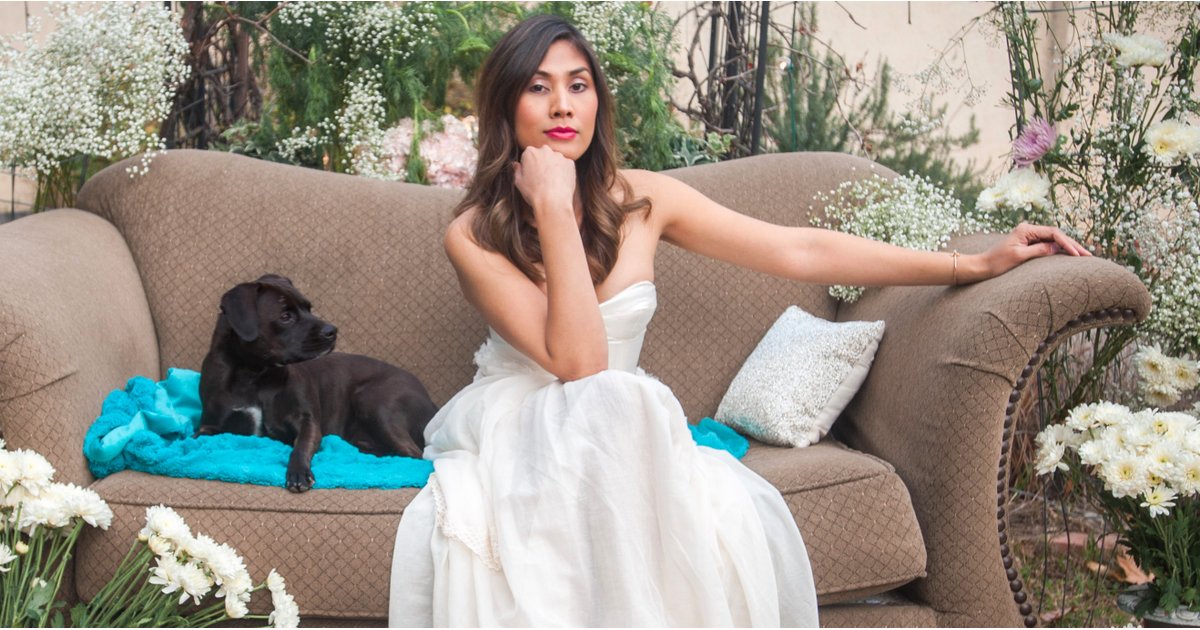
This year, model/editor/voiceover actress Rain Valdez was cast in the recurring role of Coco in Lopez, George Lopez’s TV Land sitcom. She’s also appeared in shorts like Trans-R, Ryans and Over the Counter. She has worked on the set of Transparent as the Director’s Assistant and Coordinating Producer since 2015.
Rebecca Root
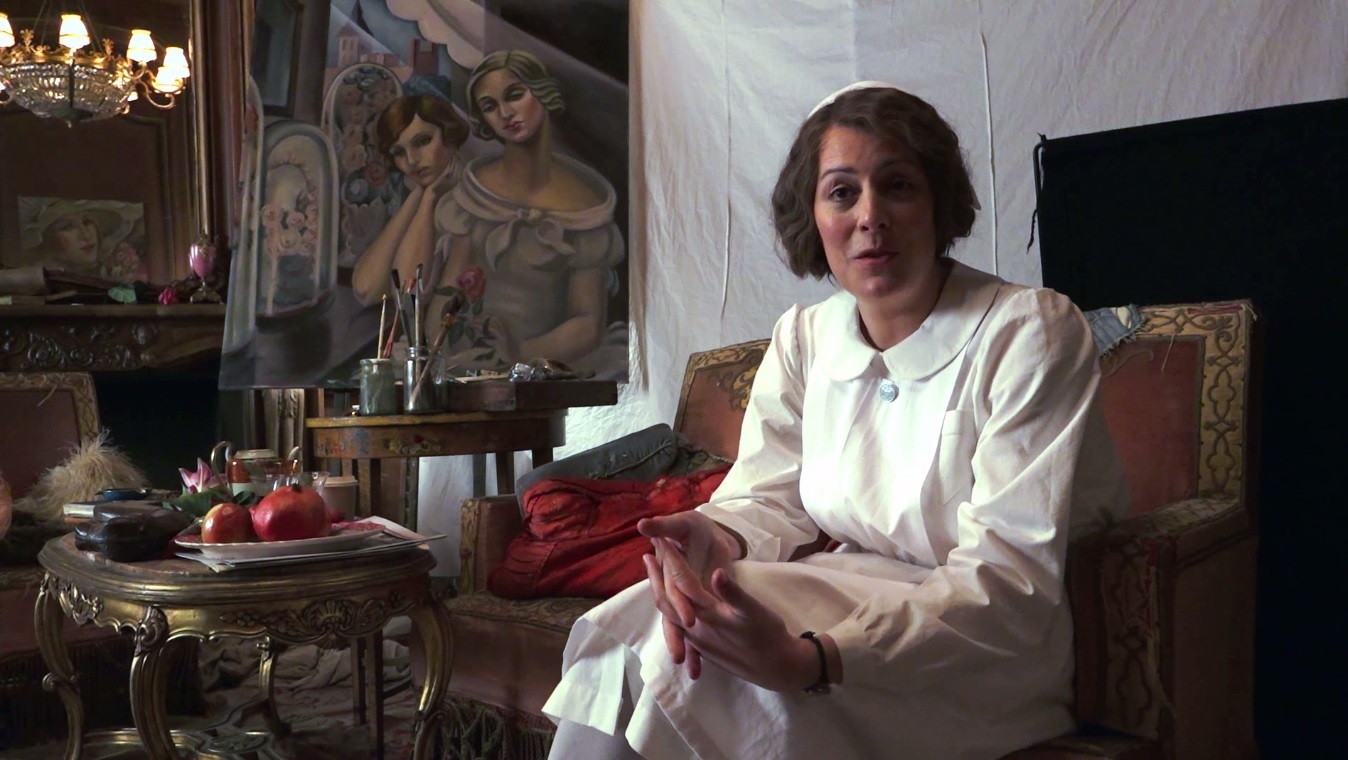
Root in “The Danish Girl”
Root, a British actress, starred in the UK TV Mini-Series Boy Meets Girl and also had parts in Hollyoaks, Casual and Doctors. She played a cisgender nurse in the film The Danish Girl.
Roxy Wood
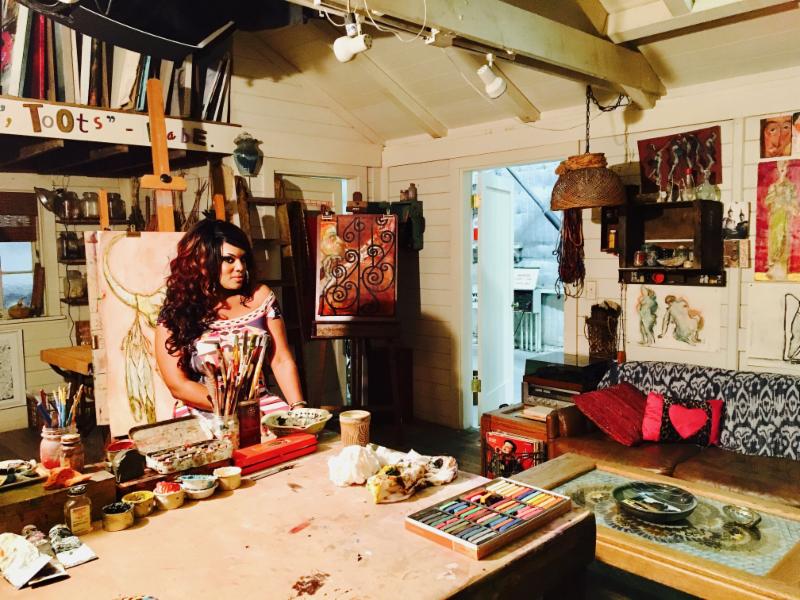
Roxy Wood on the set of “Grace and Frankie via Bingo Boy Inc
Wood is a performer and actress who has appeared on TV shows including Girlboss, 2 Broke Girls, Grace and Frankie, Wicked City, Transparent, CSI: Immortality and BoysTown.
Sadie O’Neil
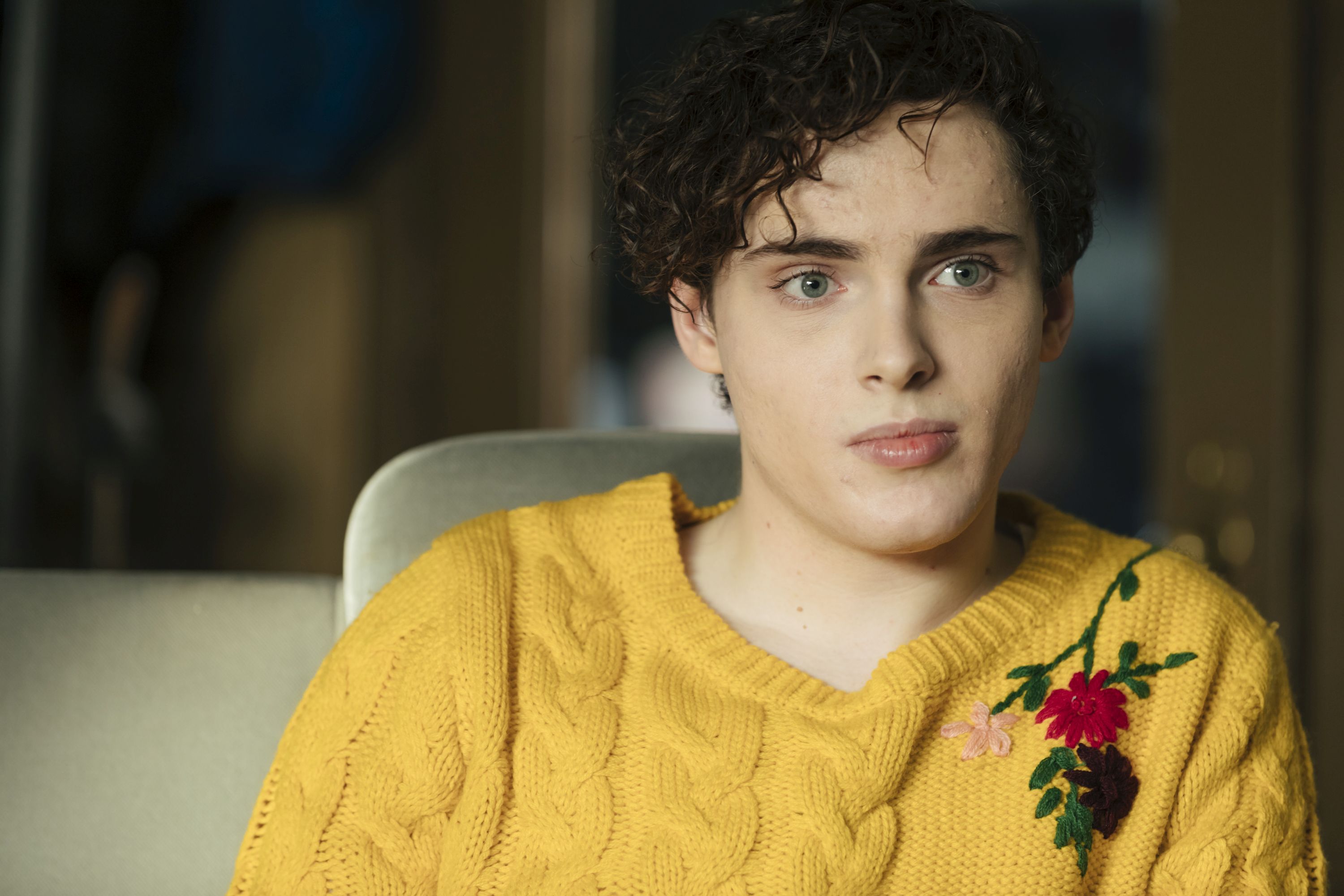
Sadie O’Neil as Jessie
O’Neil played Jesse Sweetland, a closeted trans girl hockey star, in the CBC mystery series “Bellevue.” Of her performance, show star Anna Paquin told the CBC, “I don’t think there’s probably anyone better to embody that than somebody for whom that experience reflects their own,”
Savannah Burton
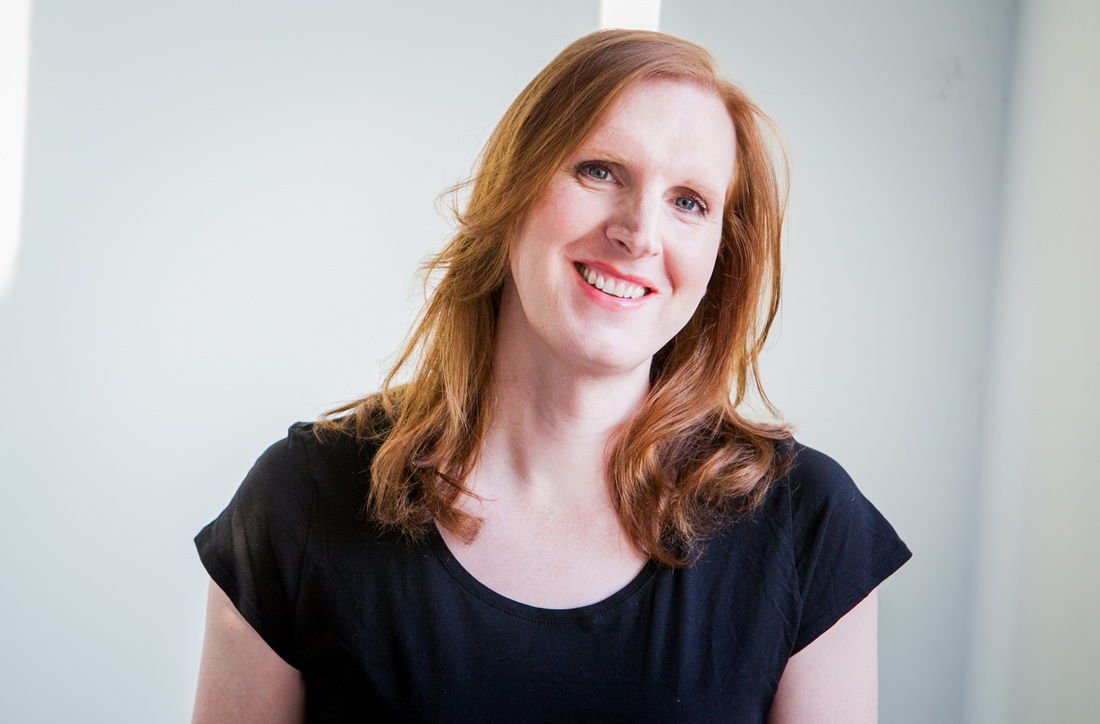
Savannah is a Canadian actress who has recently appeared in Beauty and the Beast on the CW and Killjoys on SyFy, as well as the mini-series The Secret Life of Marilyn Monroe and a number of shorts. She’s also the first out Trans athlete in Canadian history to compete in team sports internationally, as a member of the 2015 Canadian National Women’s Dodgeball Team.
Shakina Nayfack

Nayfack is a celebrated director and choreographer with dozens of plays and cabaret shows under her belt, but she’s an actress too: in her one-woman show Post-Op at Joe’s Pub, a recurring role on Hulu’s Difficult People as Lola, and a number of other indie films and theater productions. She’s the founding Artistic Director of the Musical Theater Factory, which has developed over 100 new musicals.
Sophia Grace Gianna
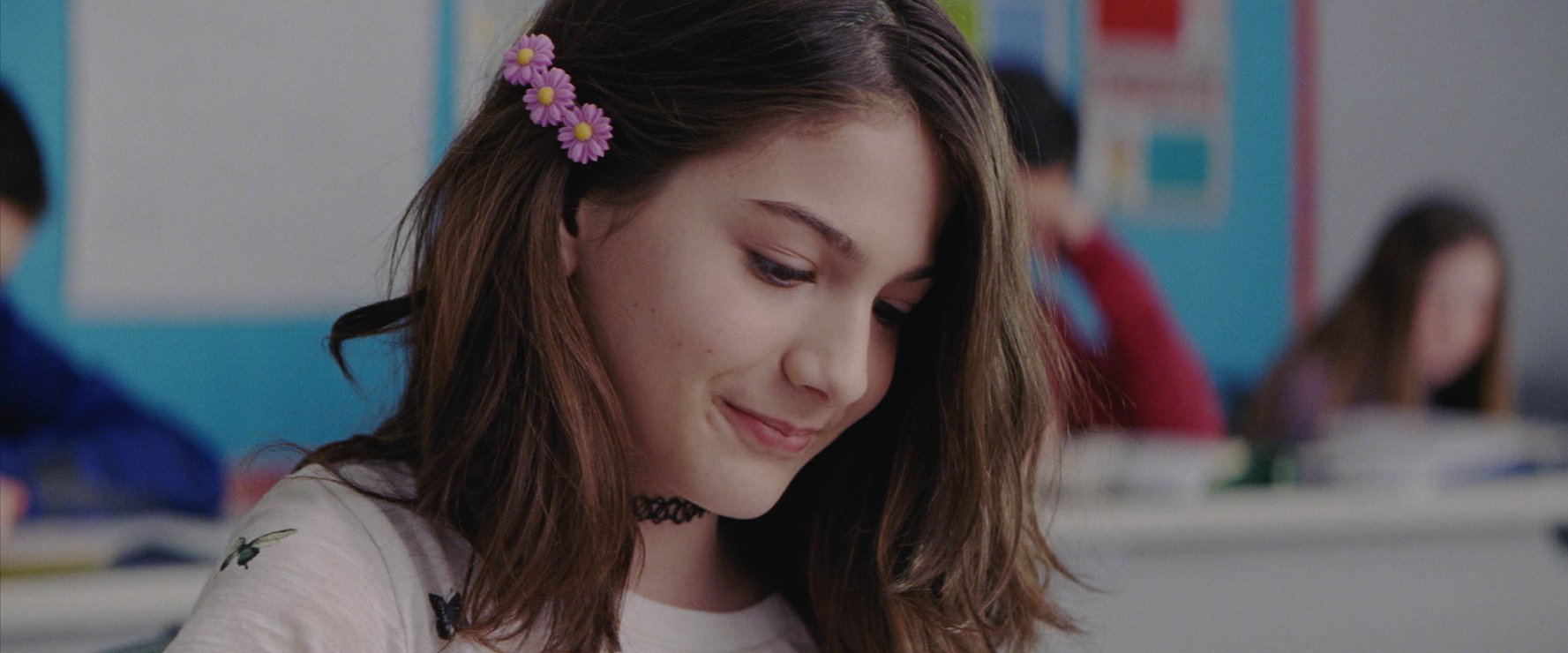
Sophia Grace Gianni in “The Real Thing”
12-year-old Sophia played Young Moira in flashbacks during Transparent‘s third season, and also stars in the 2017 short The Real Thing, in which a soldier returns home to meet his daughter, who transitioned while he was on tour.
Tamara M. Williams

Tamara Williams in “The Garden Left Behind”
Williams appeared in No Shade in 2013, and plays Carol in the upcoming 2018 film The Garden Left Behind.
Trace Lysette
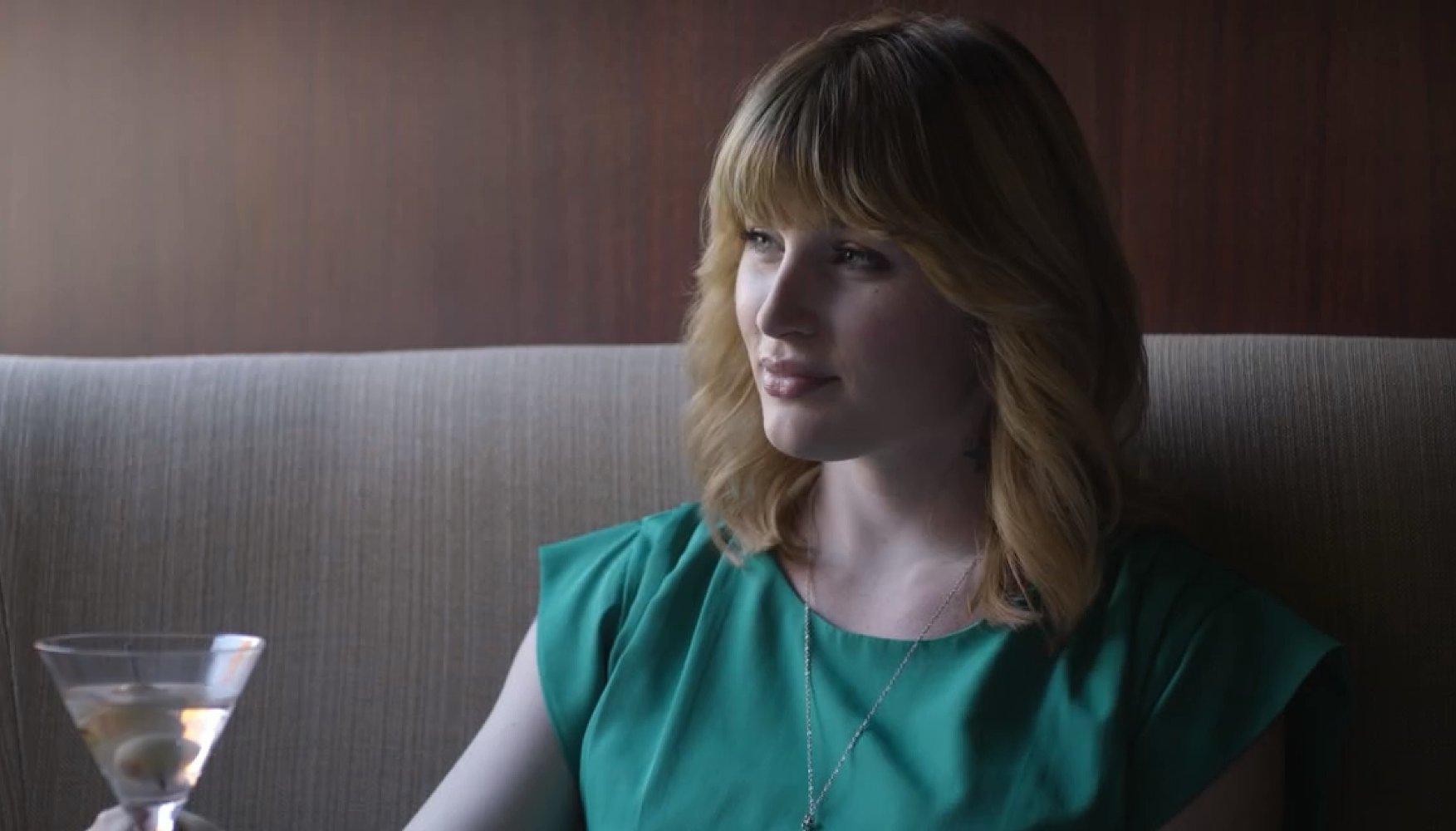
Lysette has played a few roles besides the one she’s best-known for, Shea on Transparent — she starred as Sylvia Rivera for an episode of Drunk History, Gisele in Blunt Talk and, of course, started her on-screen career with an episode of Law & Order: Special Victims Unit.
Zackary Drucker
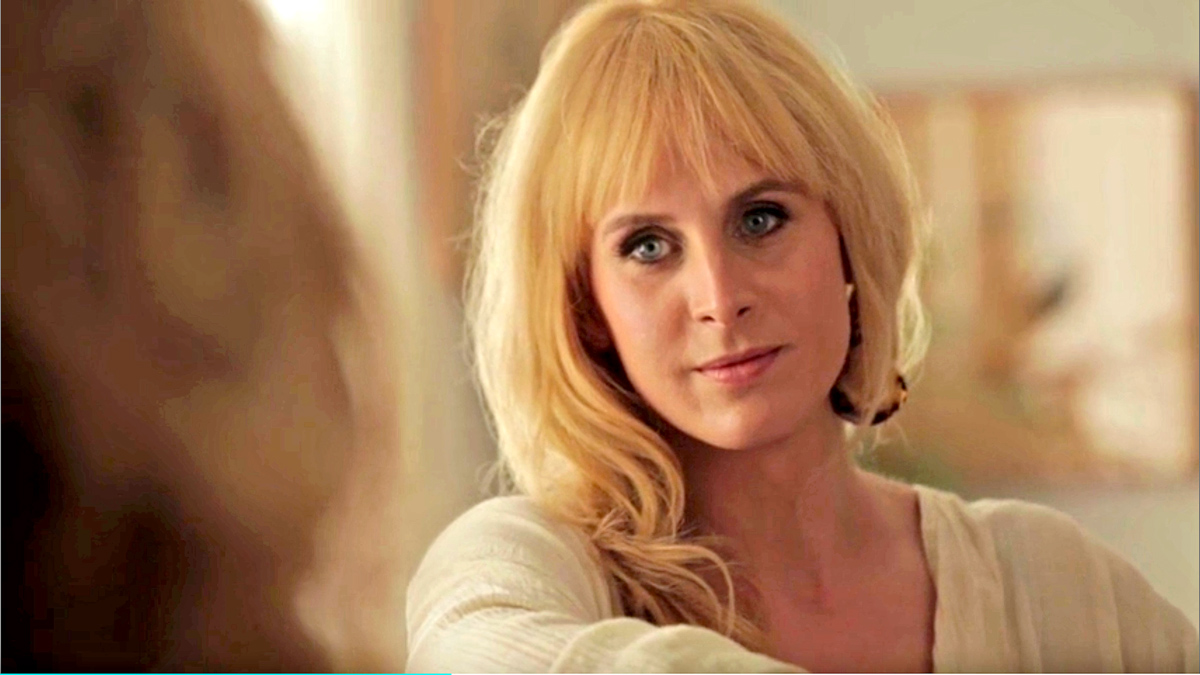
Drucker in “Transparent”
Drucker is primarily an artist and producer, but she’s also appeared onscreen in two of her production/co-prodiuction projects — She’s Gone Rogue and Transparent.
Pop Culture Fix: Laverne Cox, Angelica Ross, and Jen Richards Want To Be In The Room Where It Happens
The Room Where It Happens
I just want to say that my main celebrity crush is Jen Richards and I know it’s unprofessional to say you have a celebrity crush but every time I write about Jen Richards without revealing to you that she is my celebrity crush I feel like I am not being completely honest with you and so I’m just going to go ahead and get it out there. Jen Richards is my celebrity crush and has been ever since I moderated a panel she was on at A-Camp this spring and that doesn’t mean I can’t be even-handed when reviewing or critiquing every perfect thing she creates, okay?
For example, the best episodes in Nashville‘s history, which Jen will star in this coming season when the show moves to CMT. She’s CMT’s first out trans actress! She’ll play a “tough but understanding physical therapist” named Allyson who helps a main character “through one of their most difficult challenges.”
It’s very easy to see how Her Story led to her role on Nashville. While the web series didn’t win the Emmy on Sunday night, its success is going to literally open doors into casting offices and writers rooms for trans actresses and writers, especially Jen Richards and Angelica Ross.
#GirlsLikeUs repping at the #CreativeArtsEmmys. @HerStoryShow @angelicaross pic.twitter.com/sdcxnRMkoU
— Jen Richards (@SmartAssJen) September 11, 2016
(Mey always teases me for calling Jen Richards “Jen,” like I’m on a first-name basis with her, but now that my crush is out in the open, I feel okay about it.)
Also, while we’re talking about growing trans representation and opening doors, Fast Company interviewed Laverne Cox about her upcoming role in the Rocky Horror remake and led with this headline: Laverne Cox: “I Just Wanted To Get In The Room,” which, of course, echos what so many trans actors and trans writers have been saying for years. You’re not going to find trans women with A-list cred to play trans women in big budget movies if you don’t let trans women in the door to audition for small TV roles that lead to big TV roles, like everyone else. It’s a very good interview, I think, because it covers so many of Laverne’s upcoming projects, her career so far, and it’s not afraid to talk about her activism.
I remember having a conversation years ago with my brother about this. I’m political anyway, so the question was: Do I speak up, do I speak out? [There had never been] a conversation in the mainstream media that challenged the ways in which trans stories were told. I wanted to change that, to create space for myself as a full, multi-dimensional human being, and hopefully give other trans people space to do that as well. A lot of it is just about seeing a need and speaking out, ’cause somebody’s gotta do it. It’s a civic responsibility.
Also, this is the most brilliant answer to “What inspires you?” Laverne: “I love excellence.”
Being on the red carpet at the Emmys is a huge deal. Not only does having your name attached to “Emmy-nominated” make people pay attention, but when you’re there, in person, looking oh so gorgeous, people are forced to pay attention. If you want to find out how to do Angelica Ross’ glamorous ponytail, Fashion Bomb Daily’s got you covered, for example. Just these subtle acts of celebrating trans women in everyday life helps conquer the bullshit GOP scapegoating and horrific trans storylines on our TV.
Teevee
+ Sue and Mel are leaving Great British Bake Off when it goes to Channel 4. I can’t talk about it.
+ Some queer things won some Creative Arts Emmys: Moira Demos and Laura Ricciardi for Making a Murderer. Transparent for production design. Jessica Jones for theme music. ‘Til It Happens To You from The Hunting Ground for Best Song. The Wiz Live! for costumes. Also, Amy Poehler finally won an Emmy. And The People vs. O.J. Simpson cleaned up, which bodes well for Ms. Sarah Paulson.
+ Heather Matarazzo — who you probably remember most from The Princess Diaries, but who I will always remember as the person who led to the greatest Jenny Schecter meltdown of all time — has a new film in the works. It’s called Stuck.
+ While the New York Times is worried about the white men under siege on this fall’s new TV shows, WaPo is more concerned with the lack of visibility for disabled people.
+ Storm Reid is going to be the lead in Ava DuVernay’s adaptation of A Wrinkle In Time. It’s very exciting to see so many people of color associated with and cast in this project. In addition to Reid, Mindy Kaling and Oprah are two of the three heads of Madeleine L’Engle’s trinity-style endgame wizard.
Variety‘s Maureen Ryan, who has done outstanding work calling for diversity on TV in recent years, is really excited about 2017 TV.
These five programs all take on matters of race, sex, class, sexual orientation and other charged topics, but within the context of personal tales that have a hand-crafted, artisanal feel. Their tones, settings and worldviews vary, but we may have to officially retire our notions about comedy that “punches up” or “punches down.” These shows find a ton of fruitful dramatic and comedic potential in every direction. The artfully handled, unpredictable collisions are so often what make these shows outstanding.
Movies(?)
+ Here are some names associated with a short film about a fashion line? I think? Carrie Brownstein (director), Natasha Lyonne (model/actor), Rowan Blanchard (model/actor). AdWeek says it’s a “brilliantly creepy short film about internet fandom.” So, commercial?
https://youtu.be/VbfSRa5BRhk
Queer Folks, Out and About
+ El Sanchez made Yahoo!’s list of 4 Latinx comedians you should know, and if you’ve ever seen them at A-Camp, you’ll totally agree Yahoo!’s summary of their stand-up:
I recently saw Sanchez perform at The Bell House and it was the first time I didn’t want an opening act to leave the stage. (sorry, Hari) I’m pretty sure everyone else agreed with me because Kondabolu threatened to fire Sanchez when he noticed how much the audience loved them.
